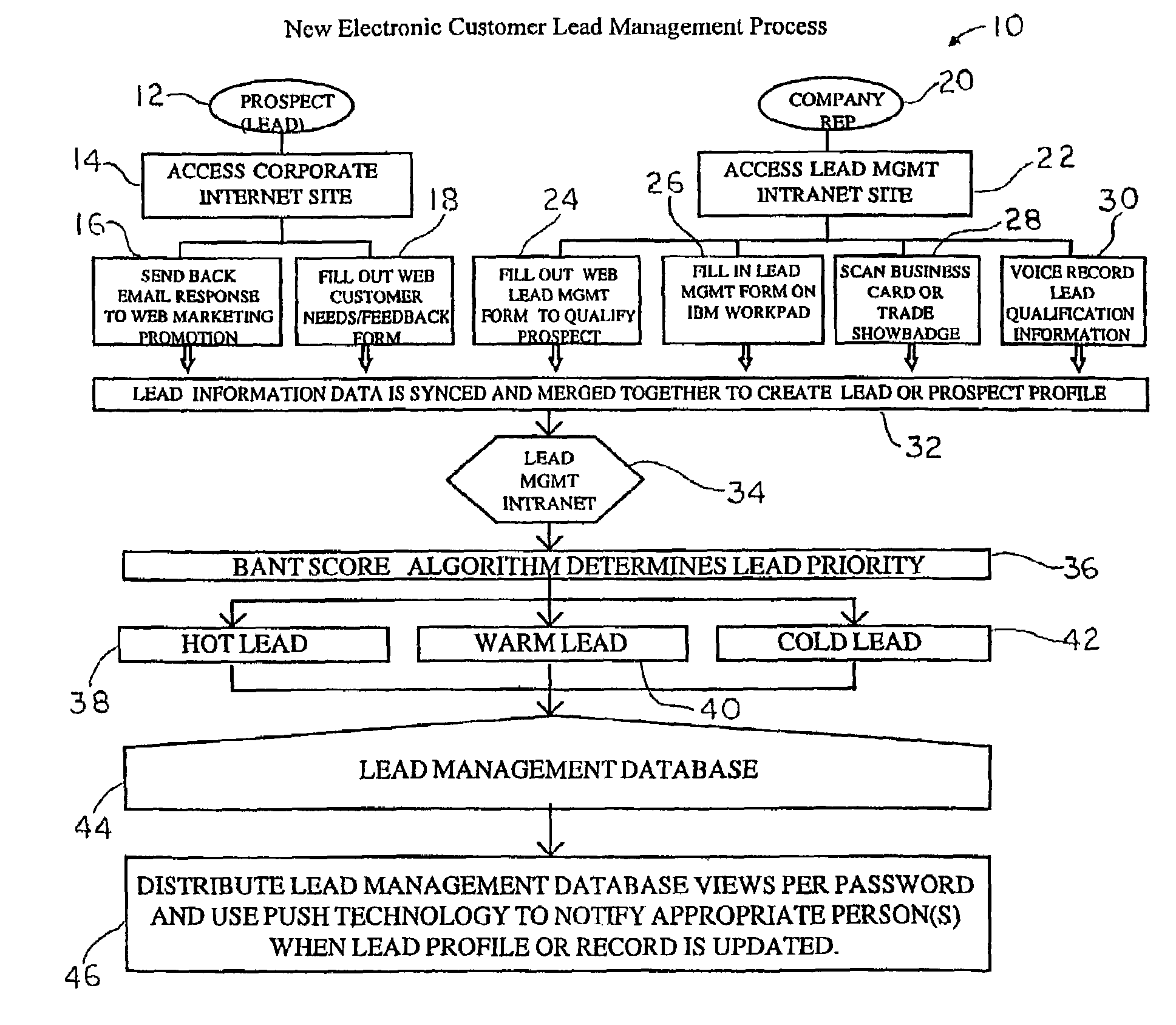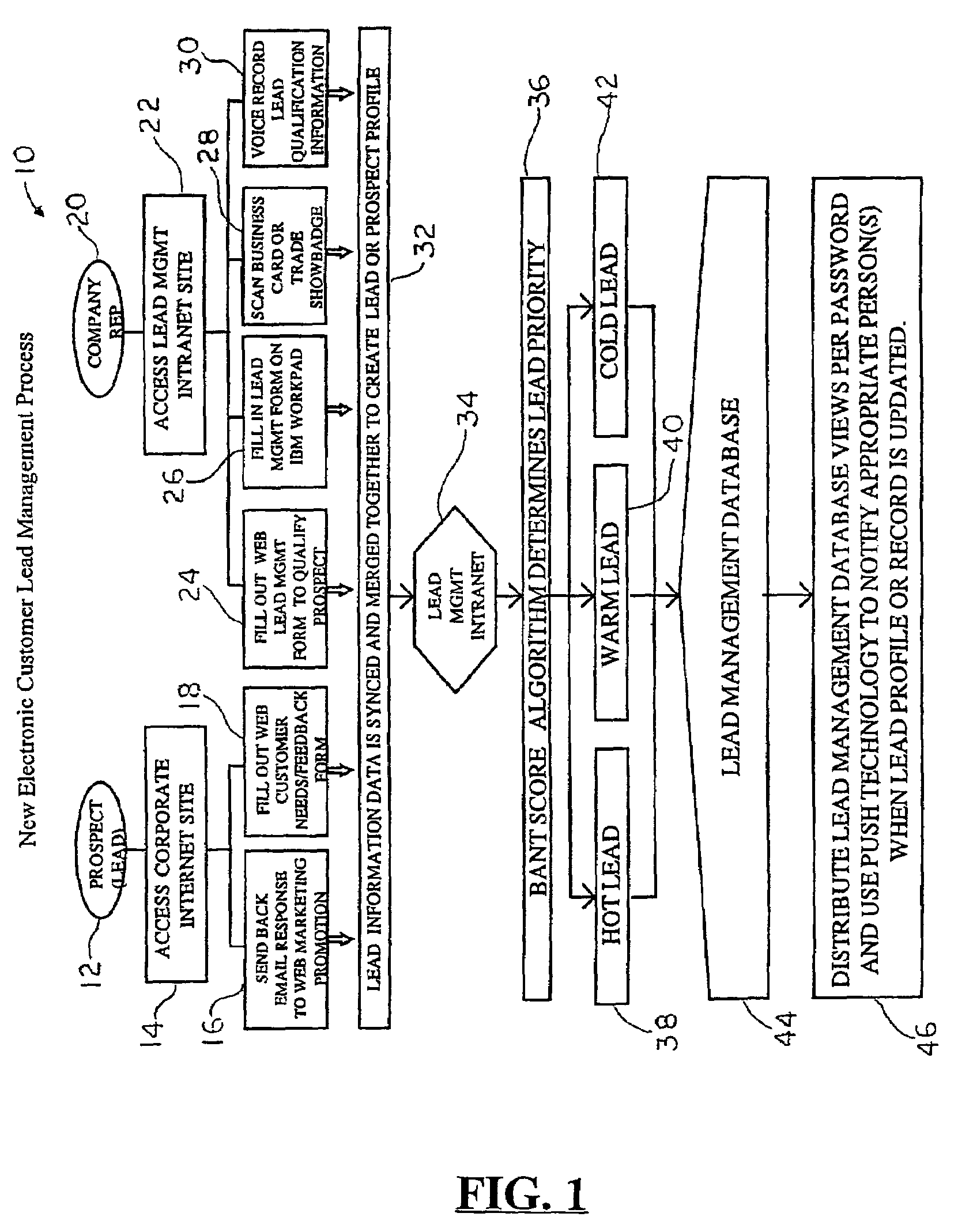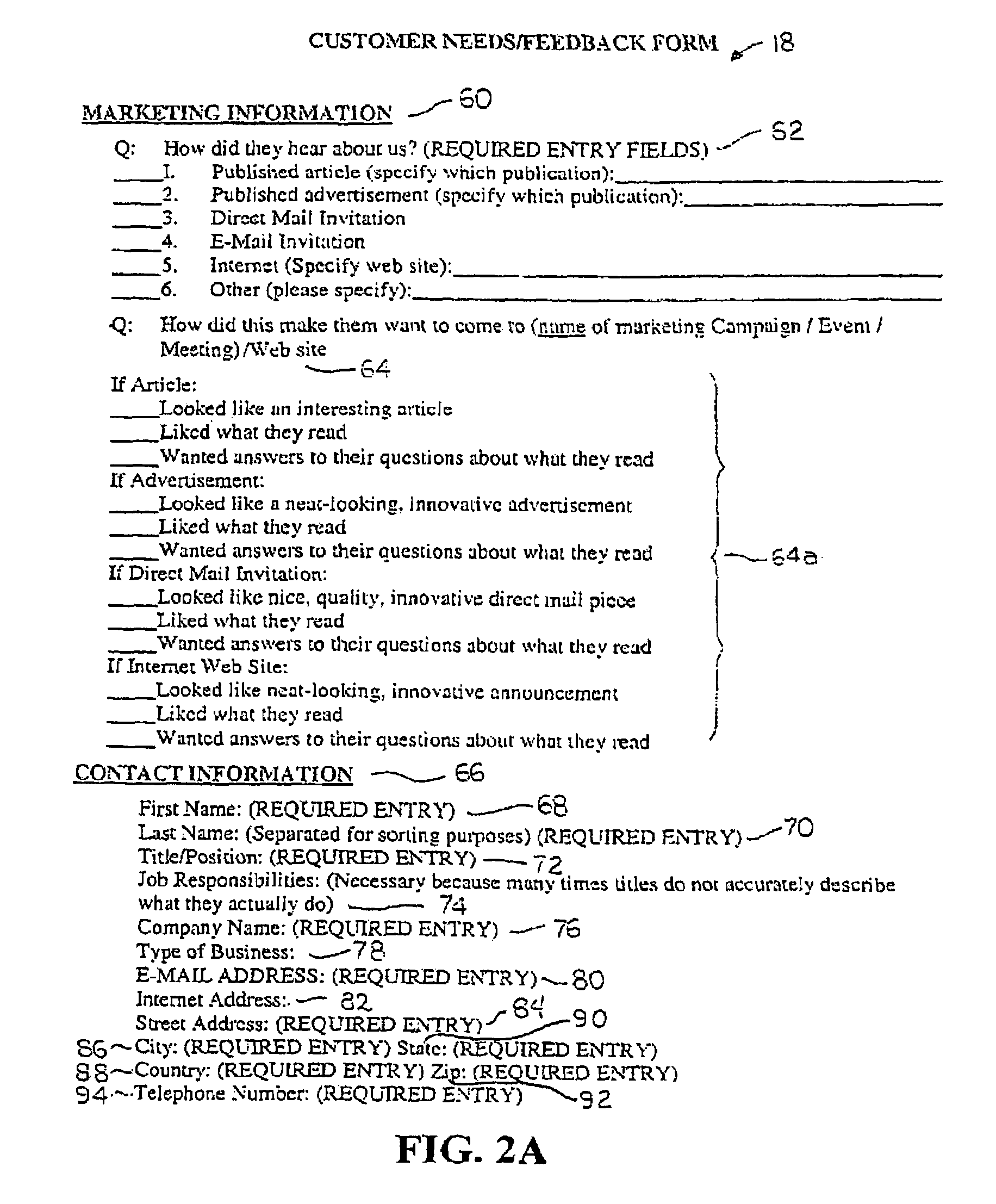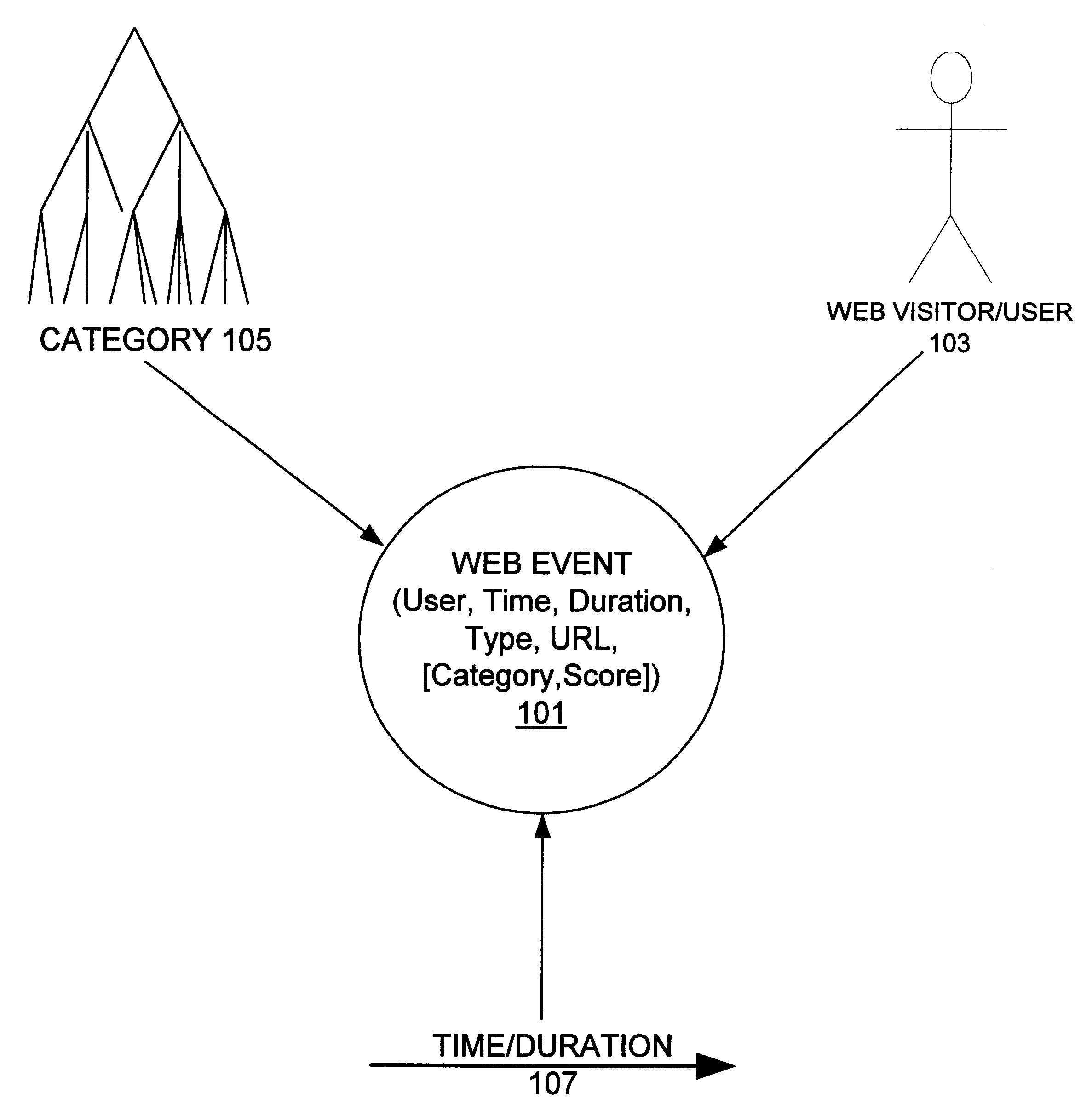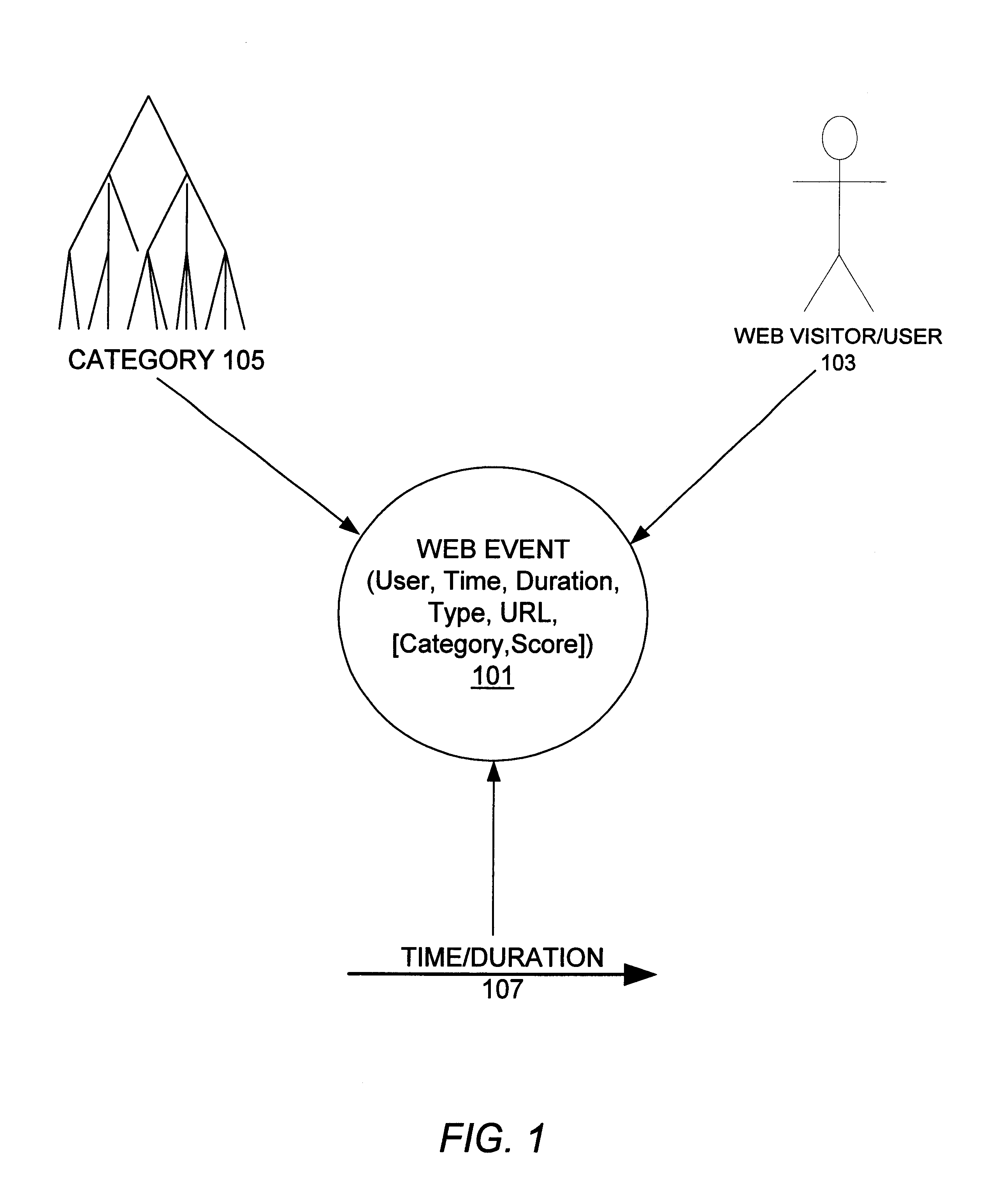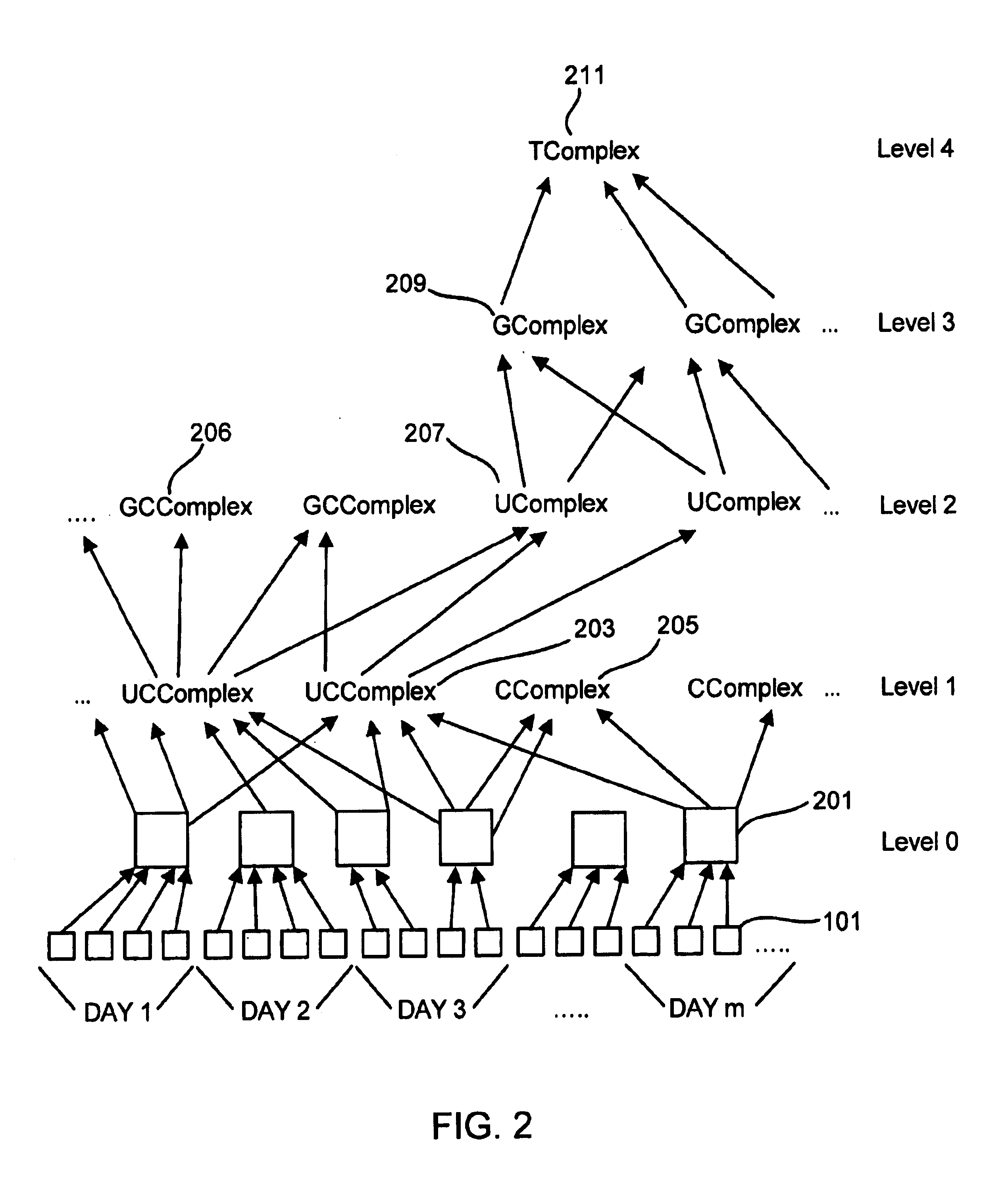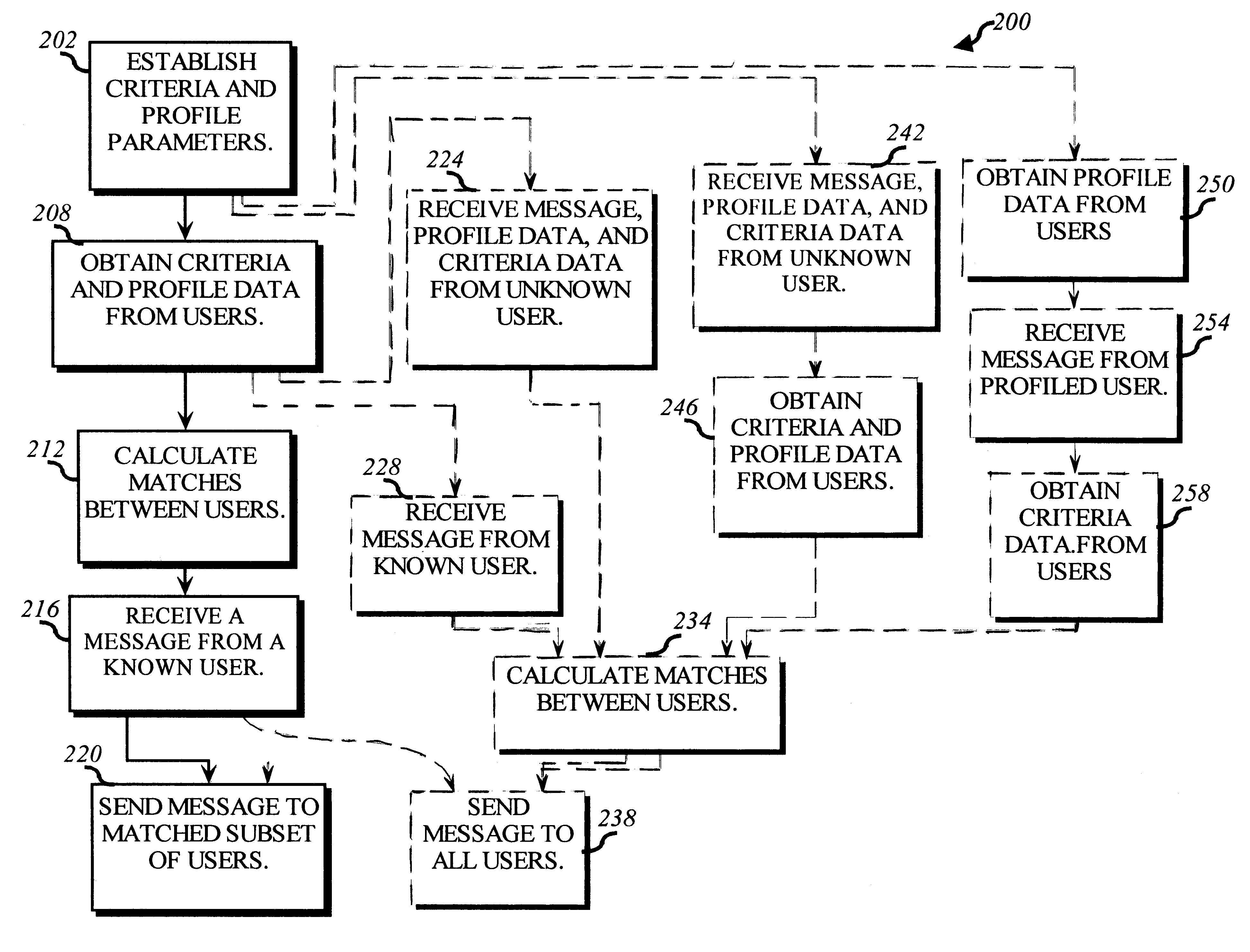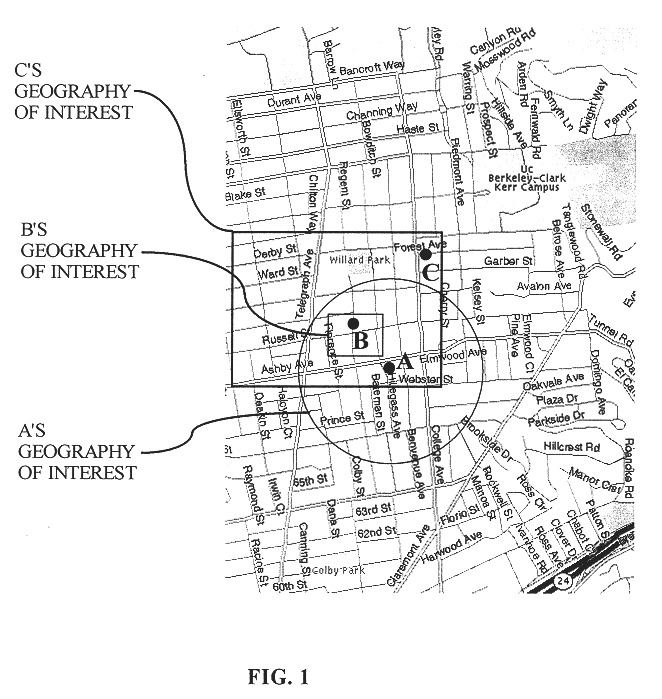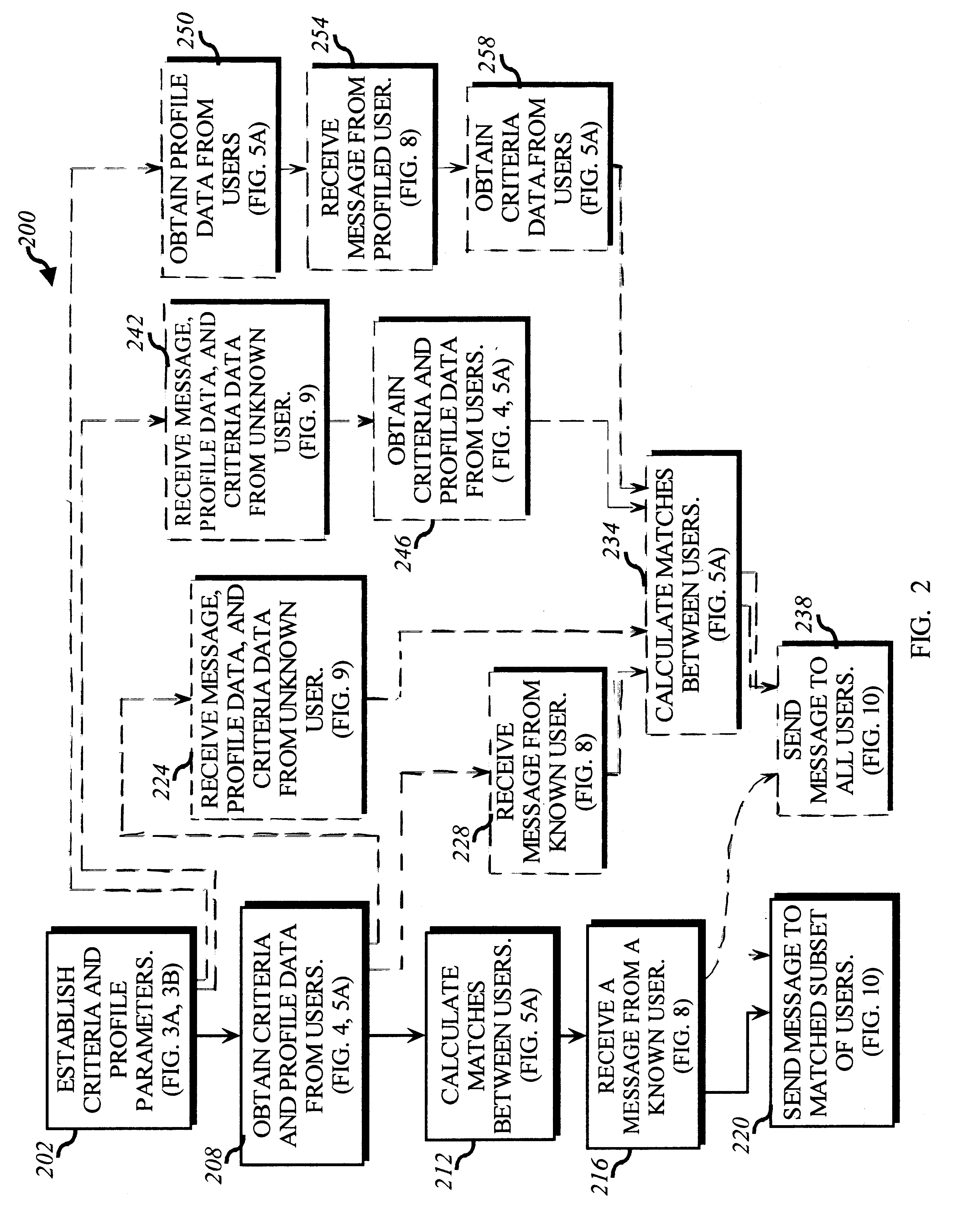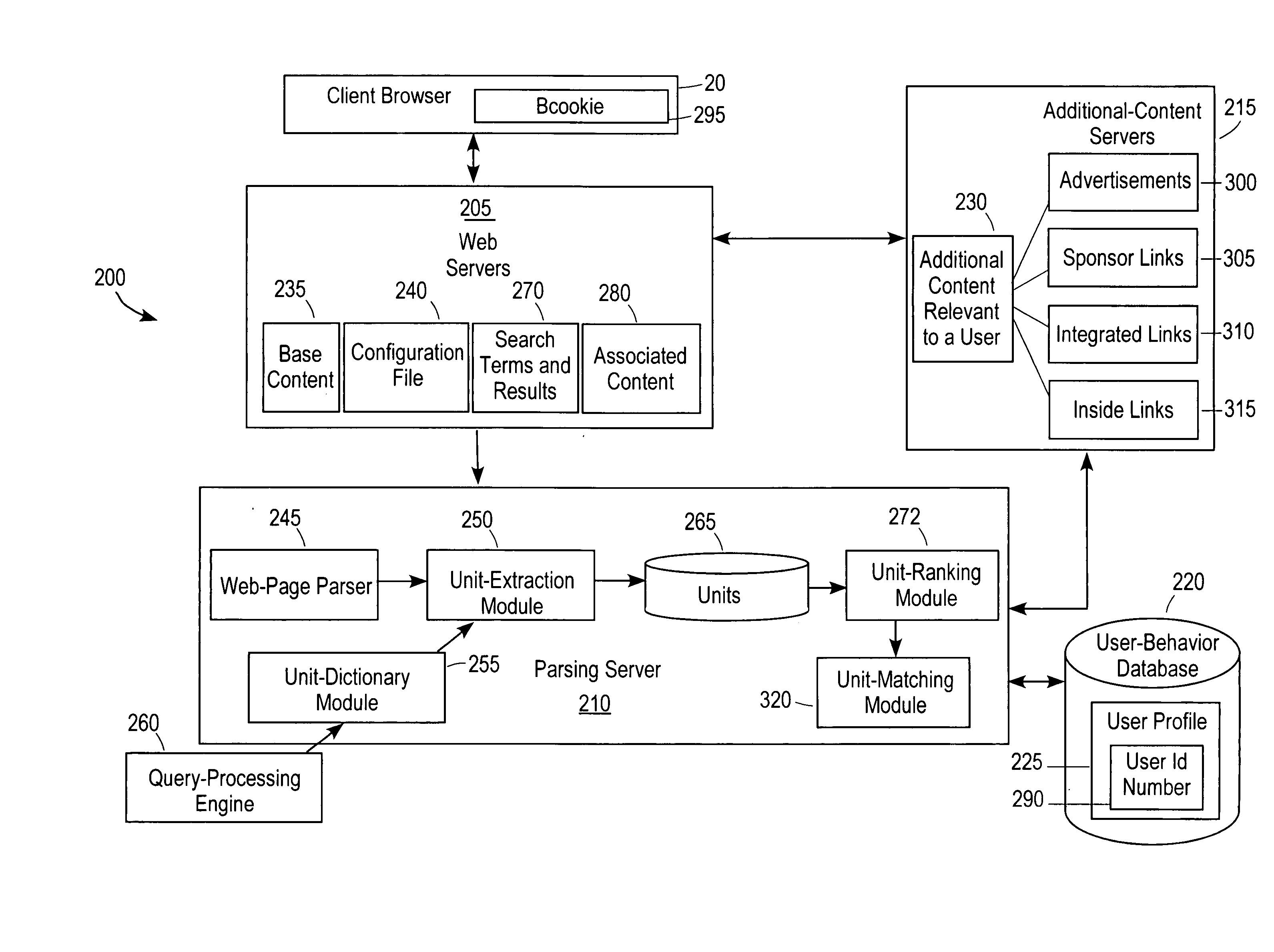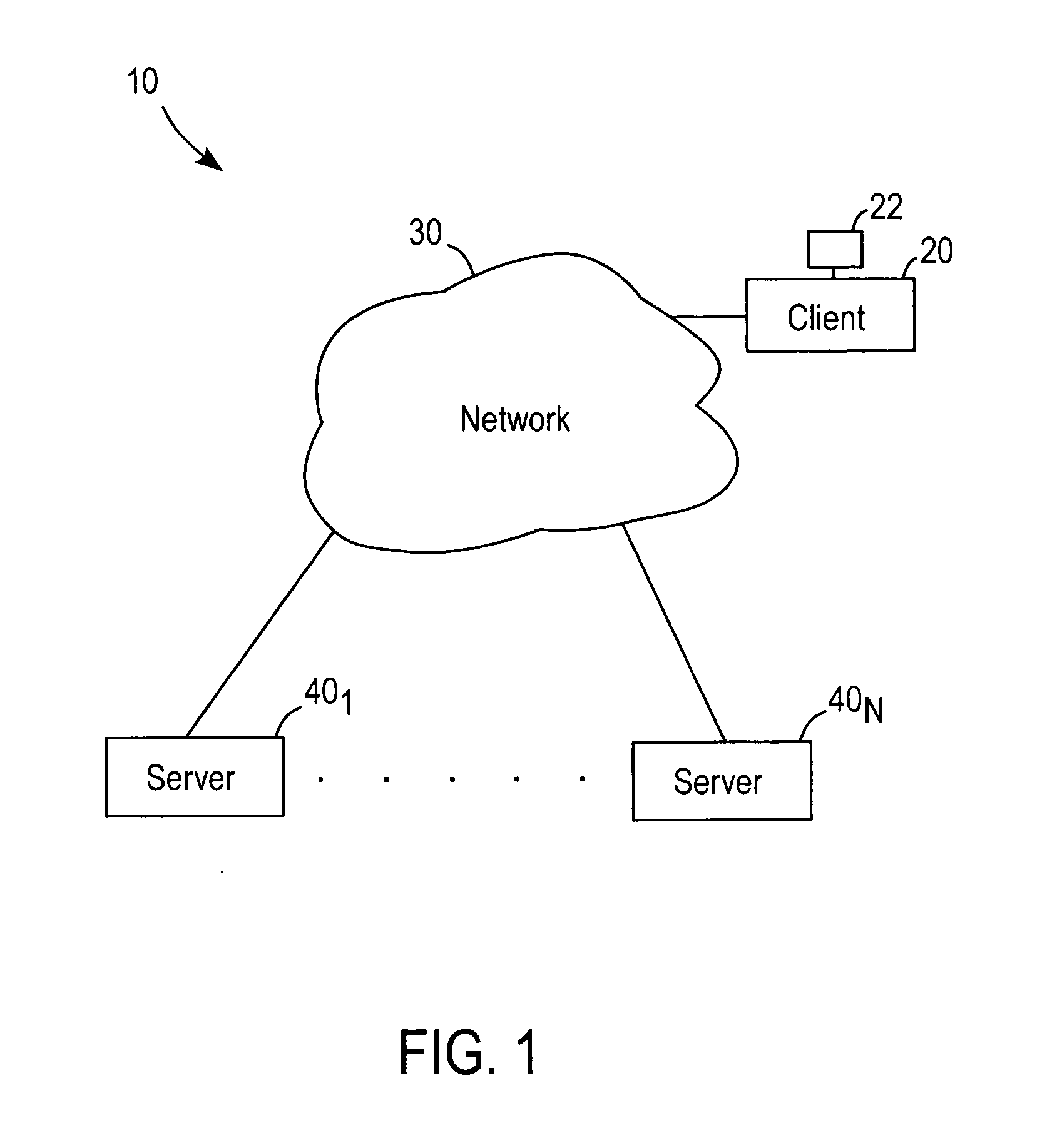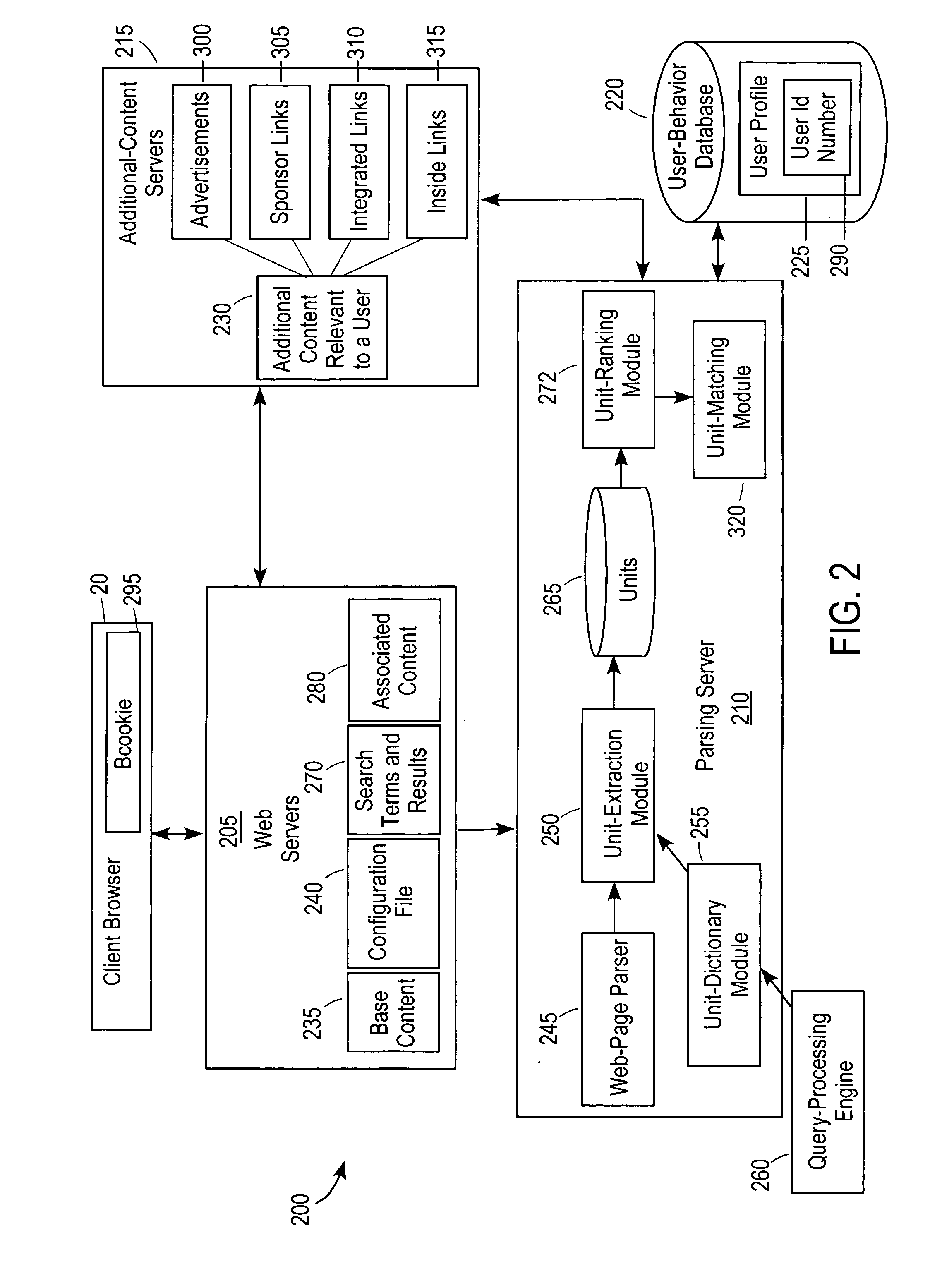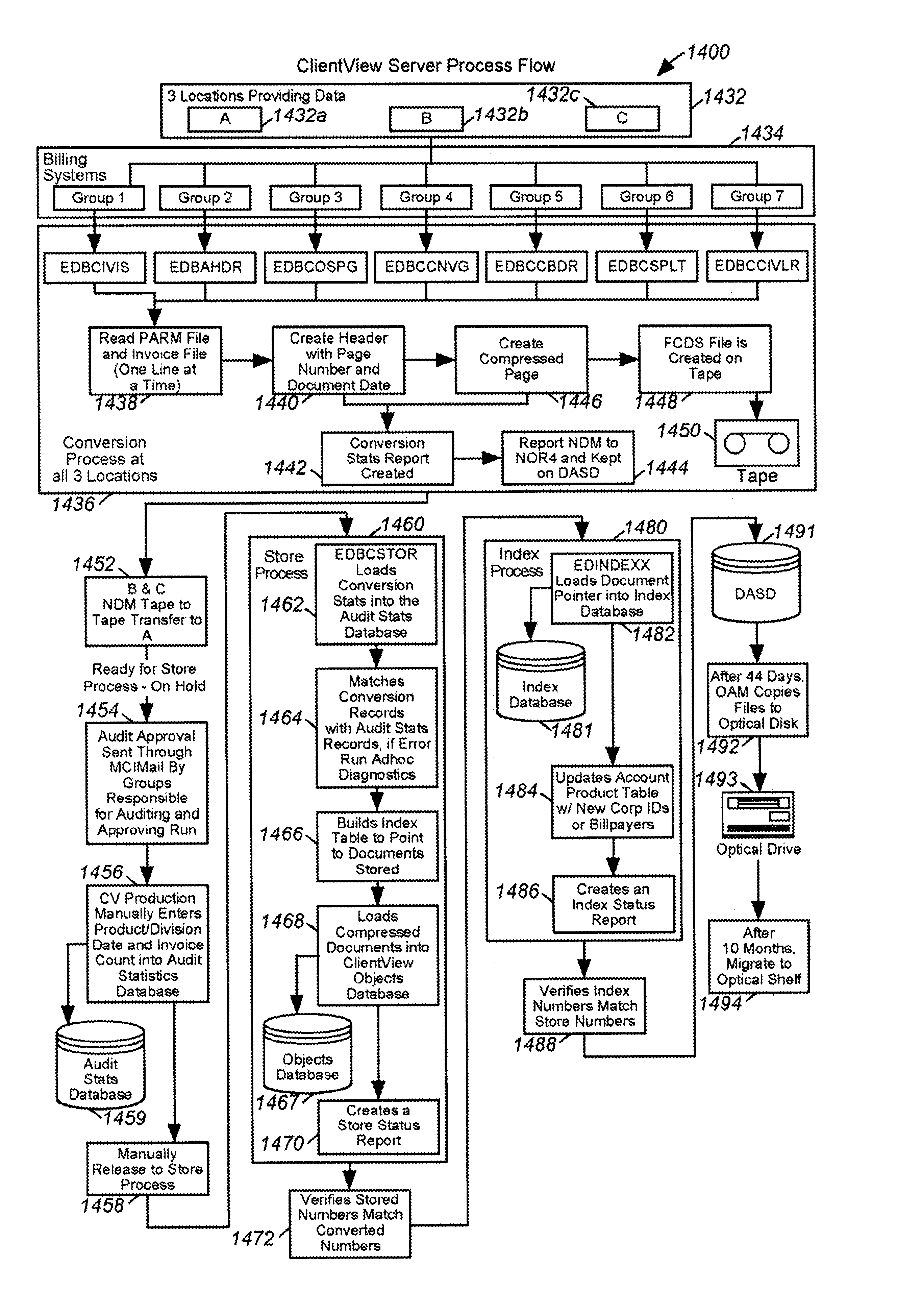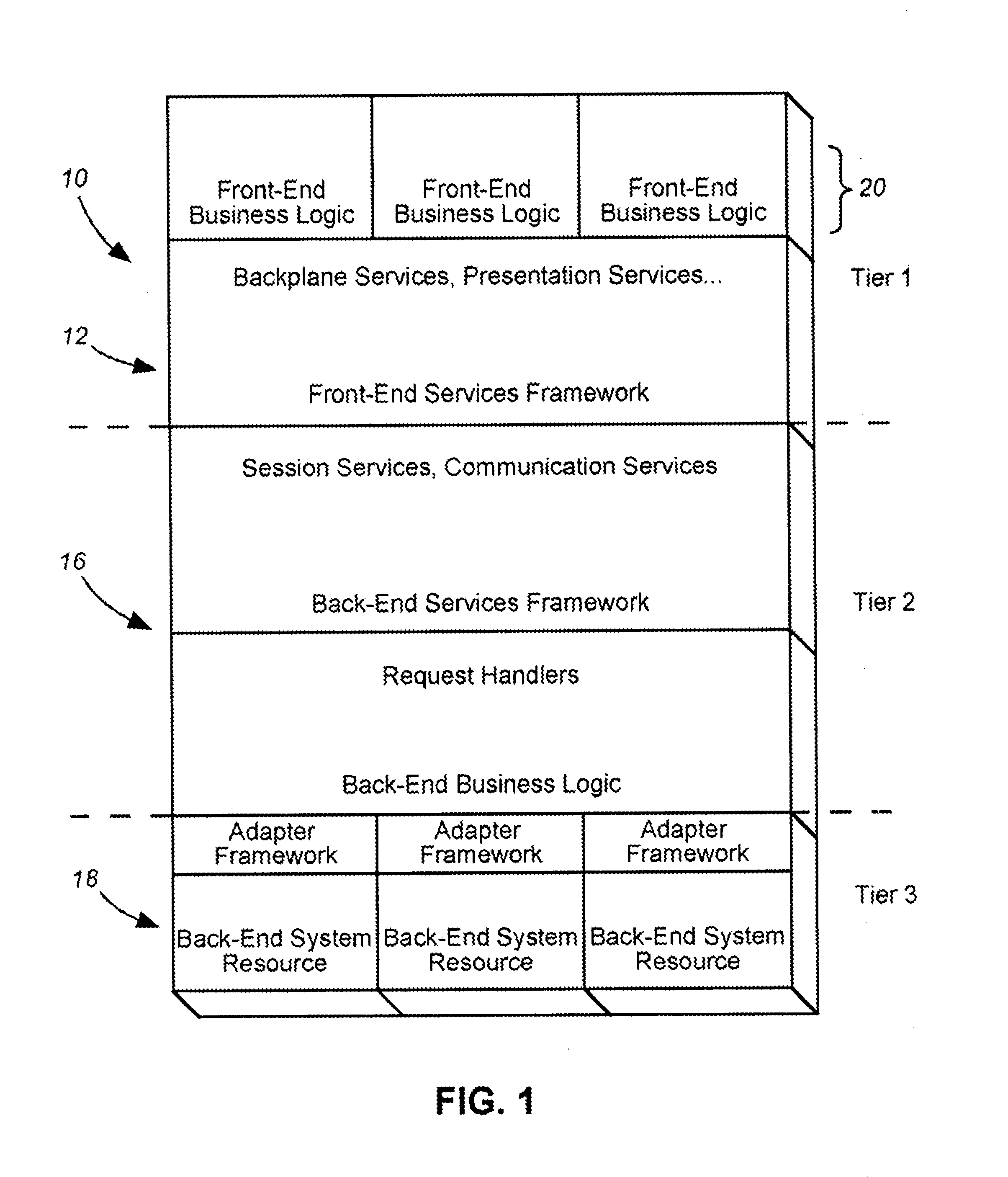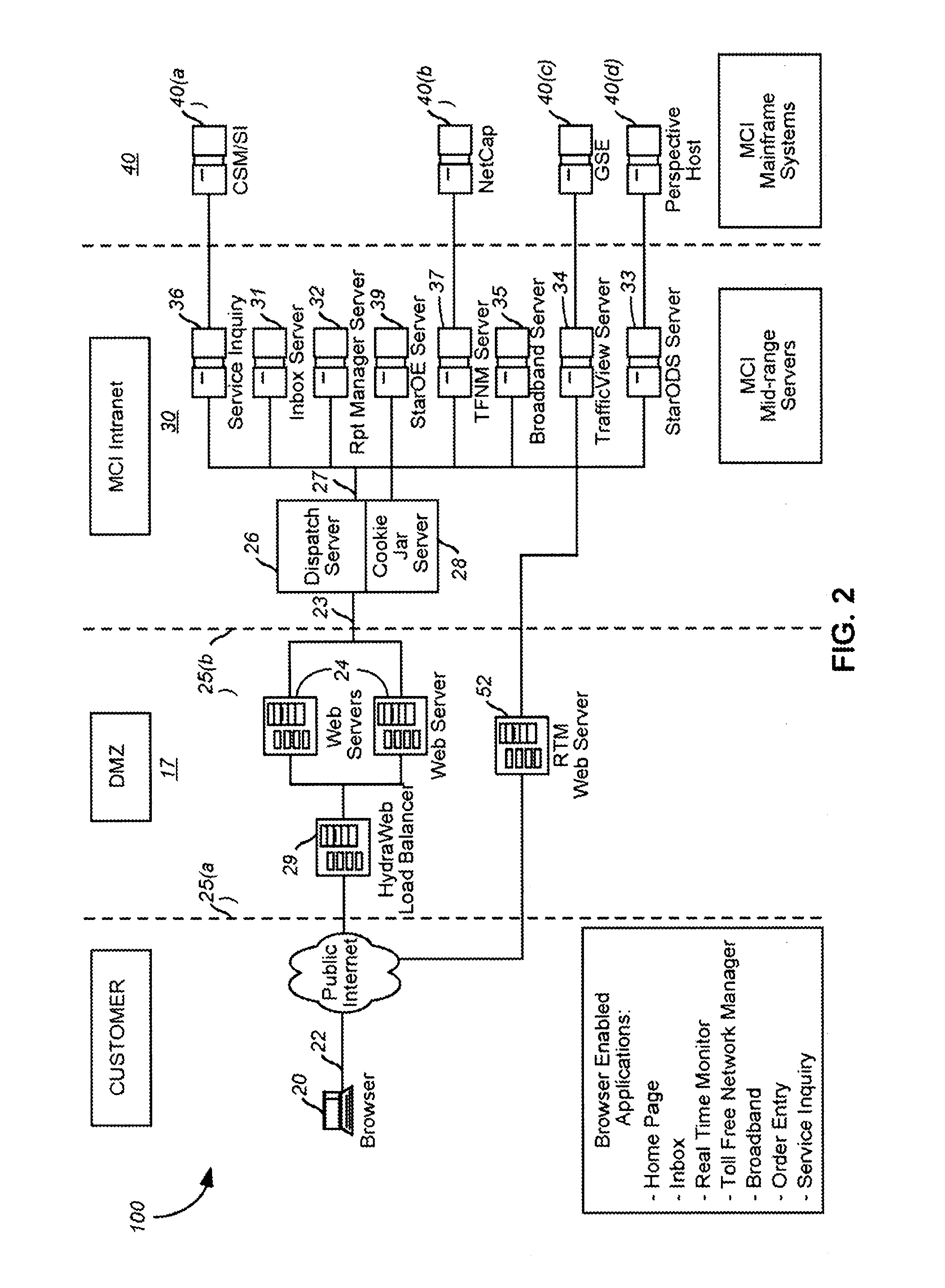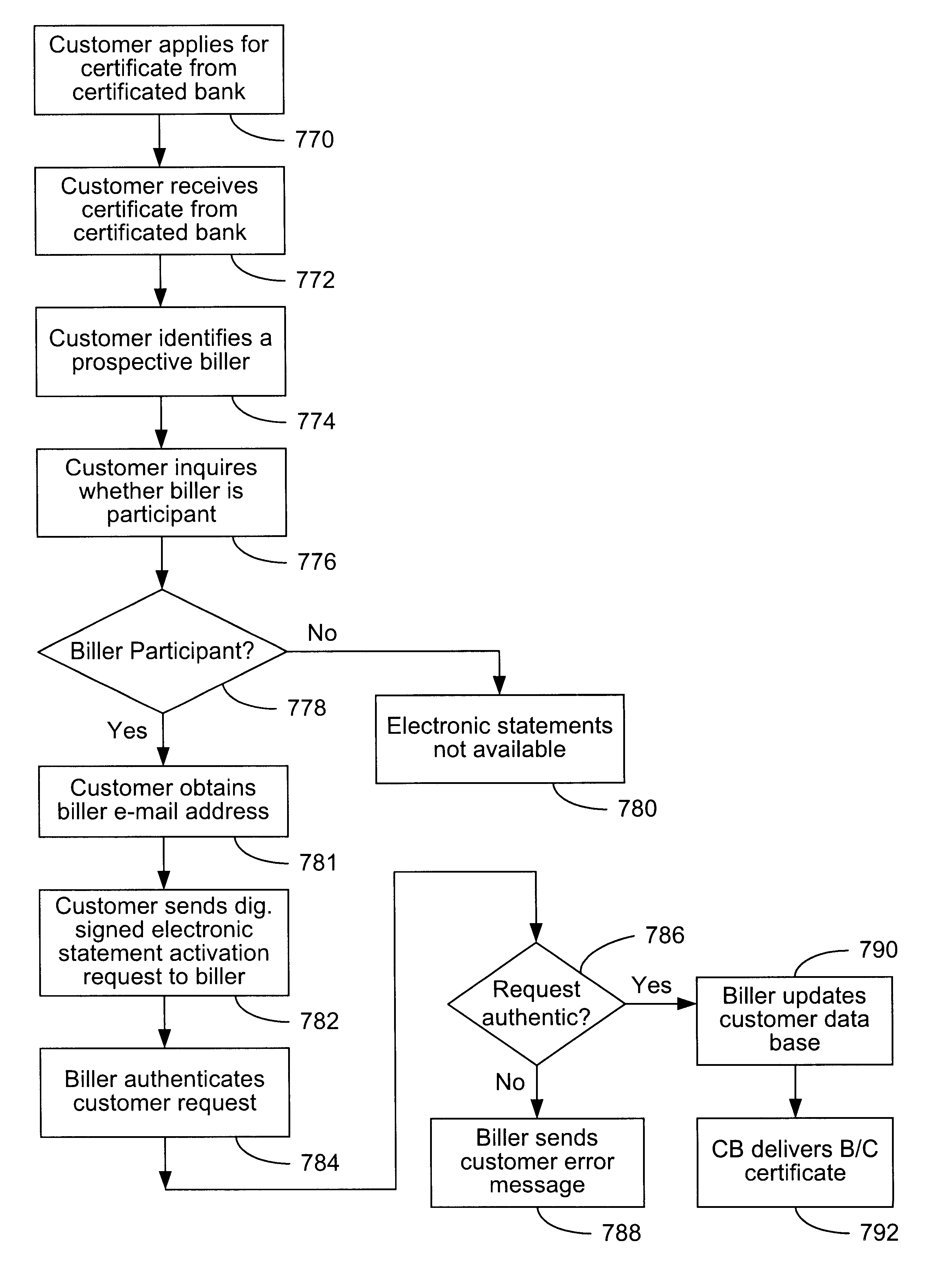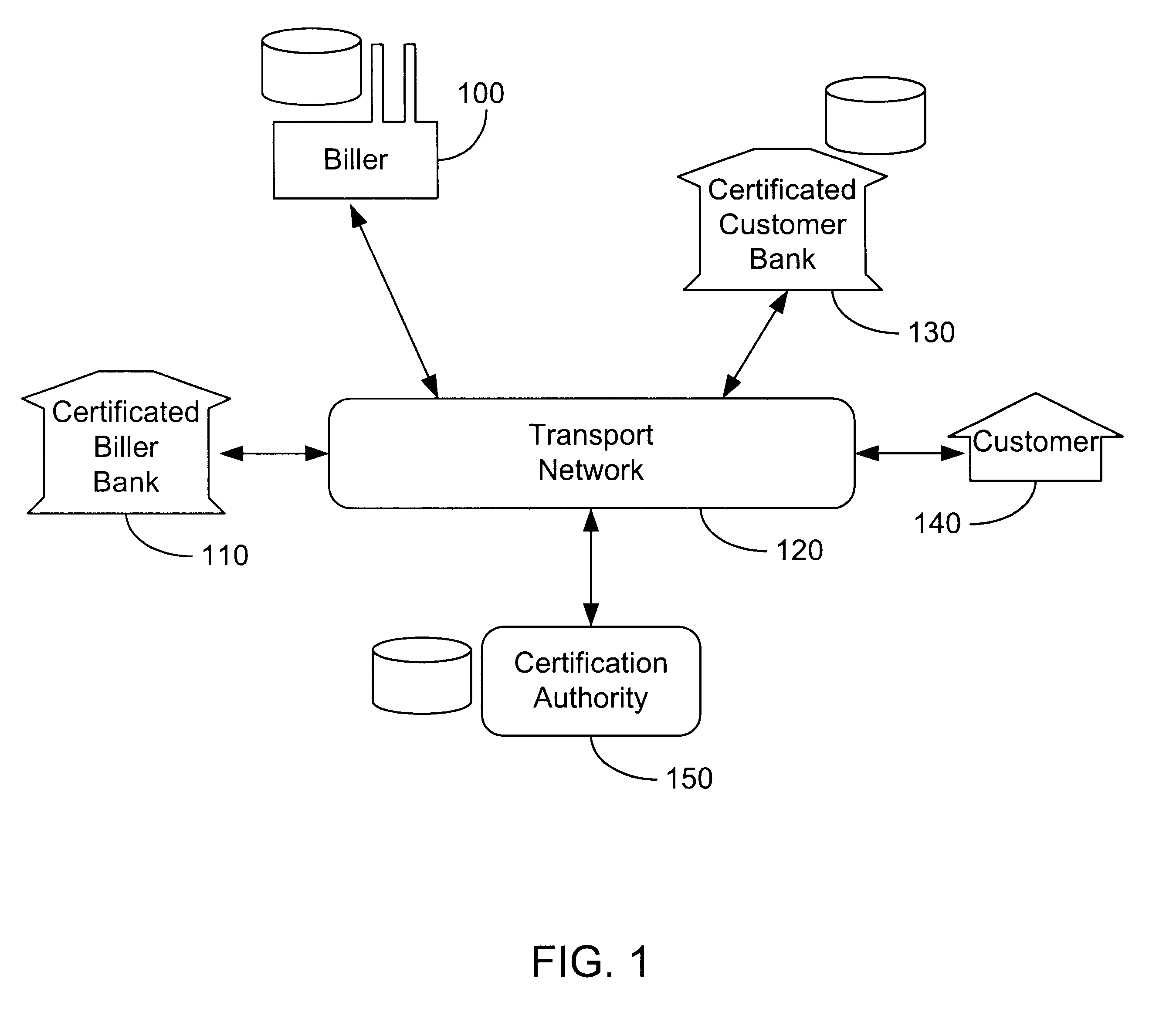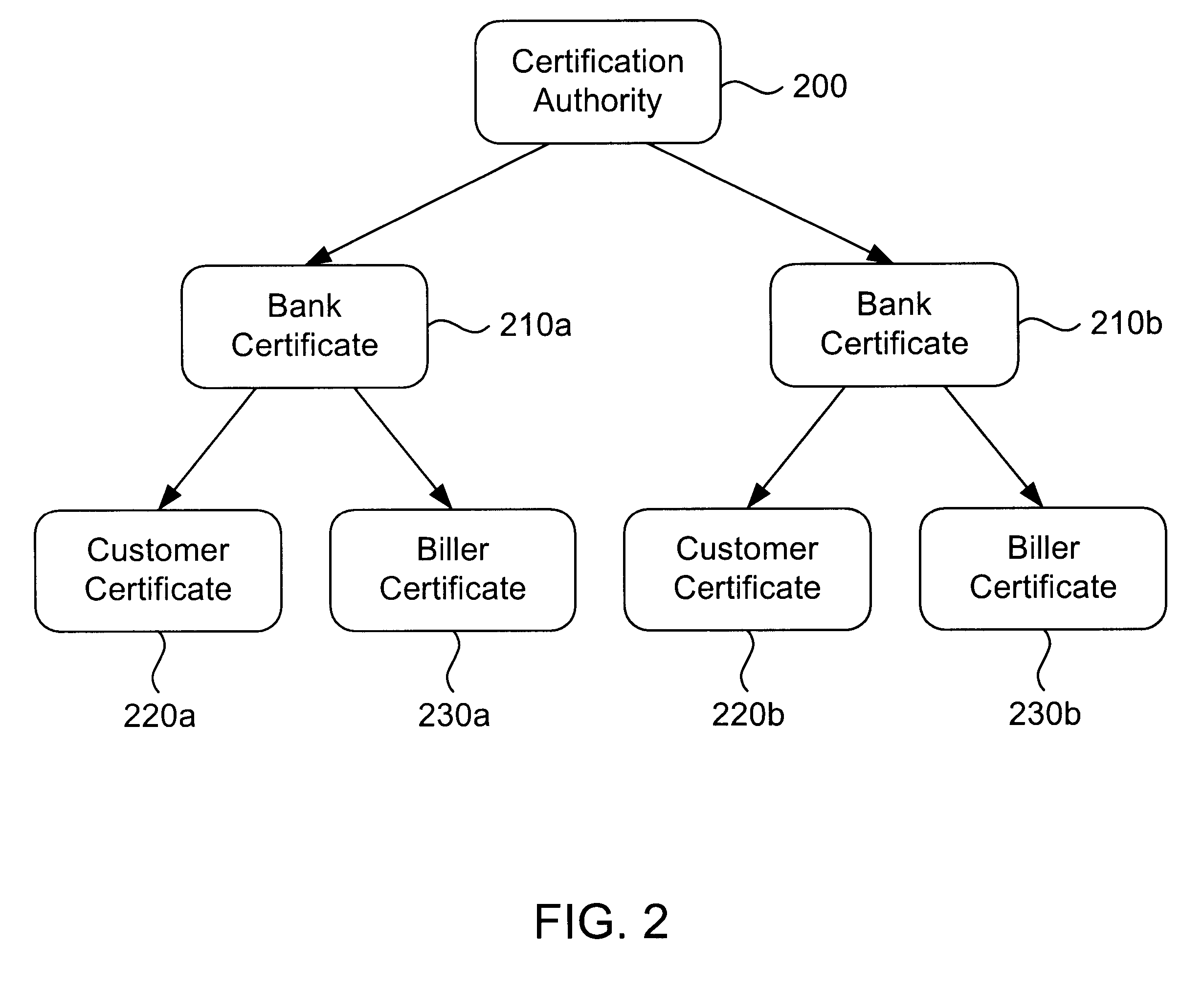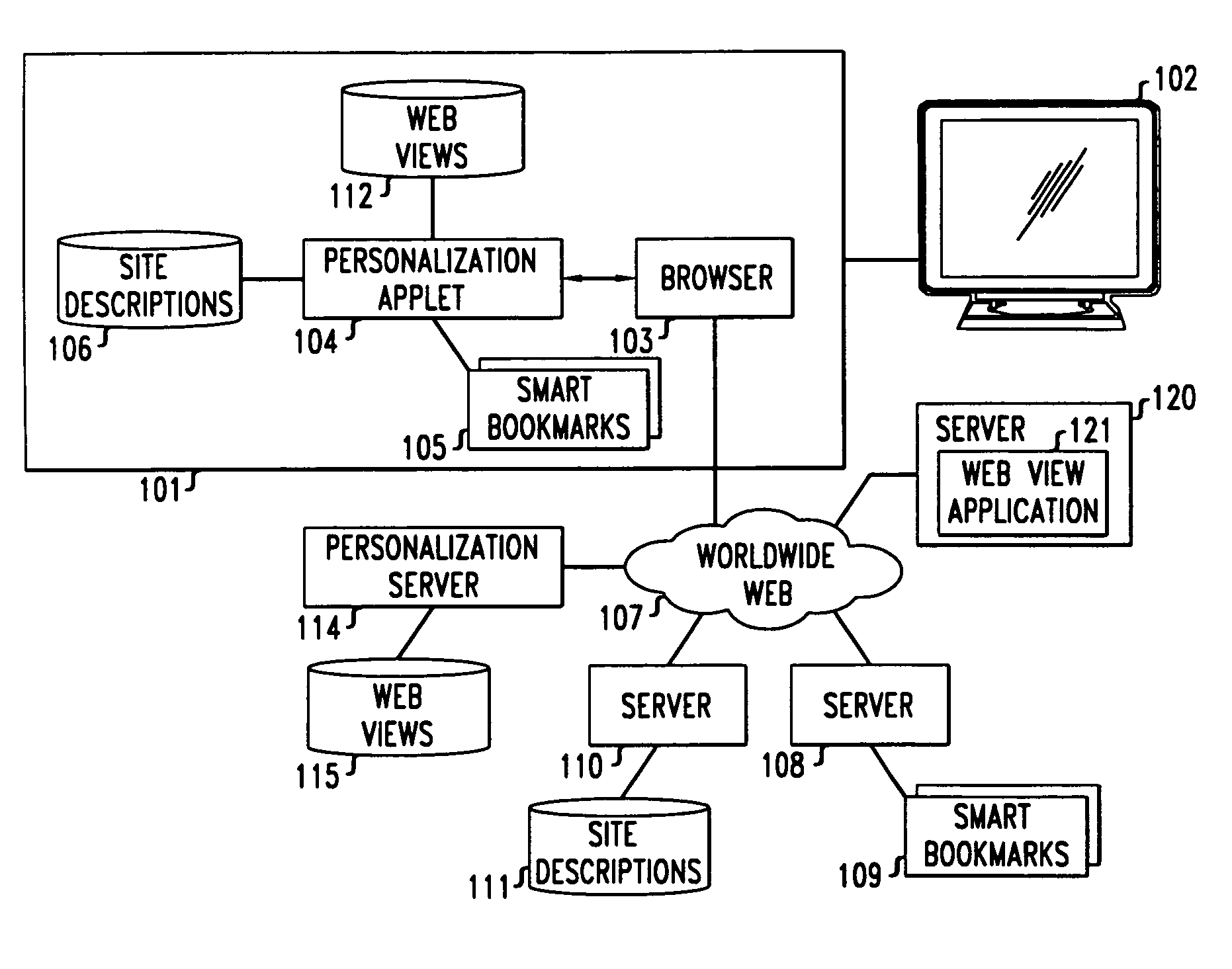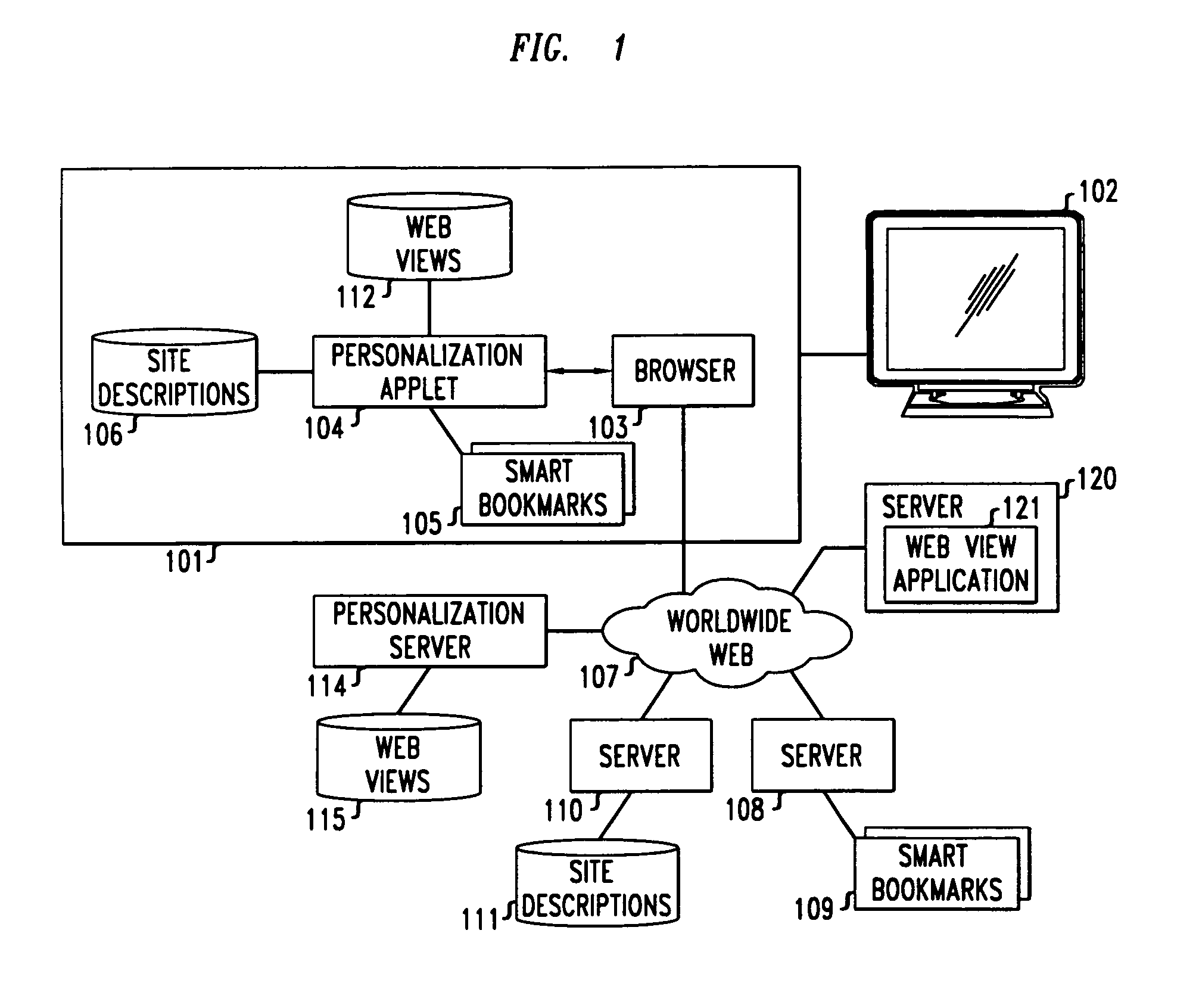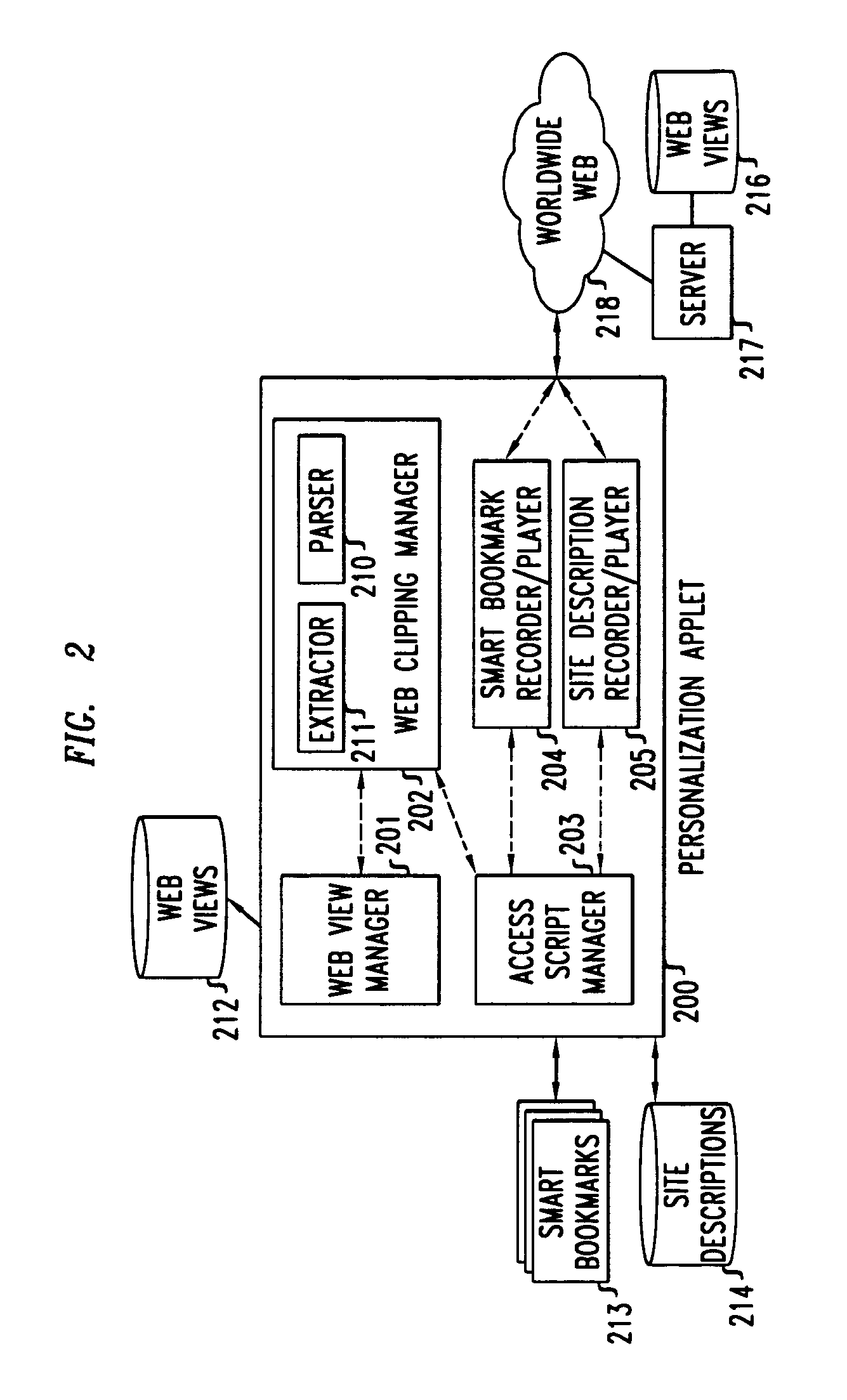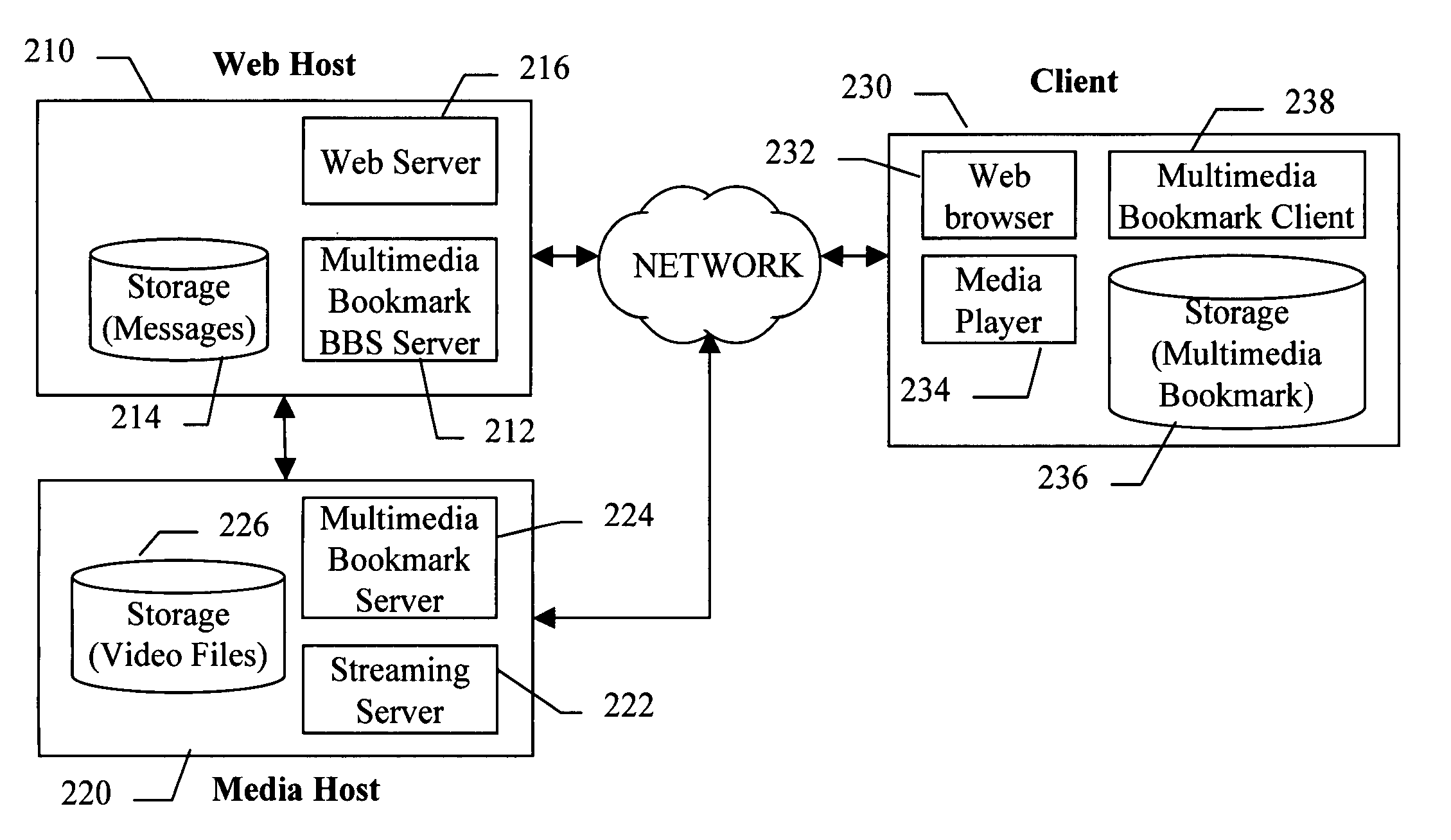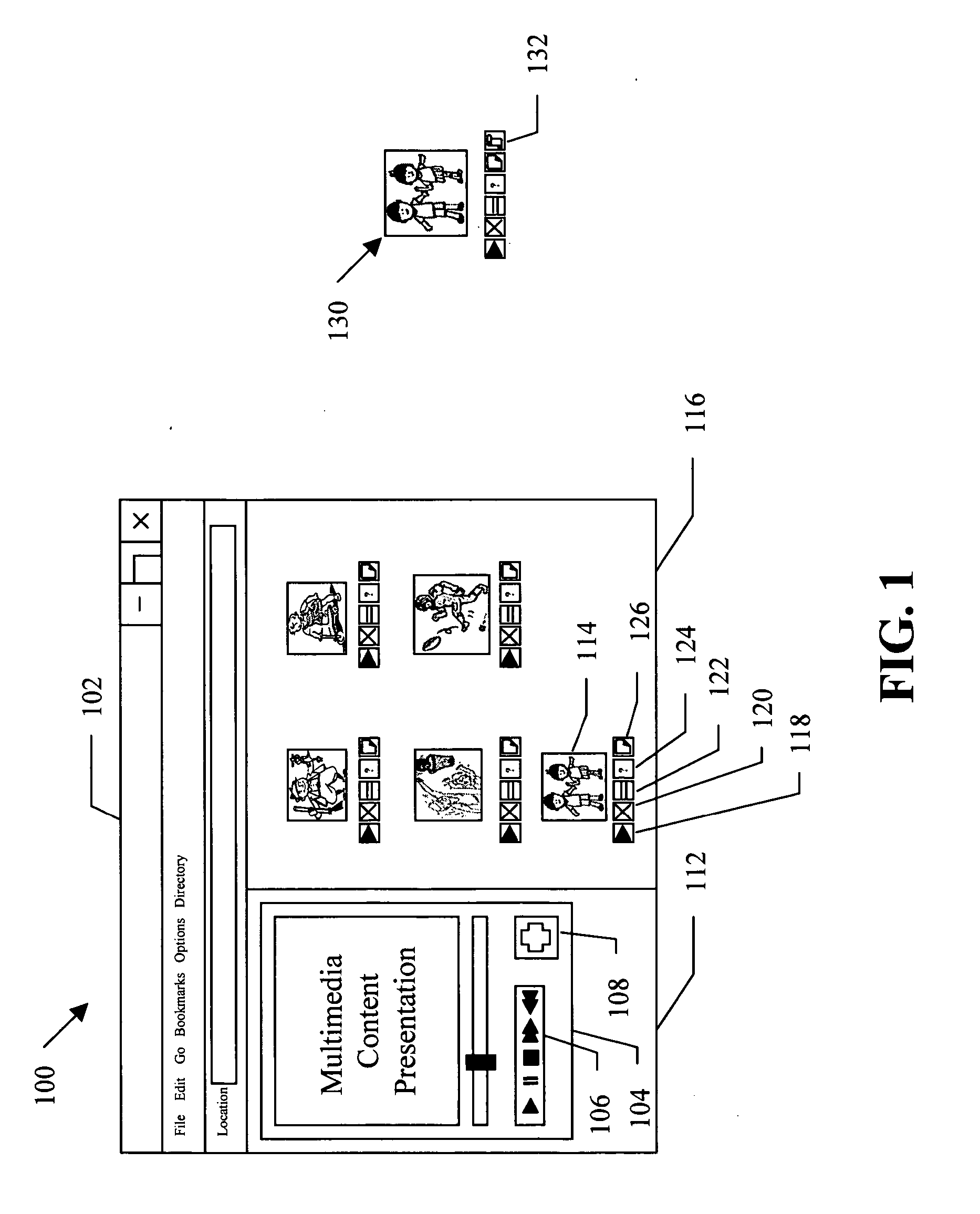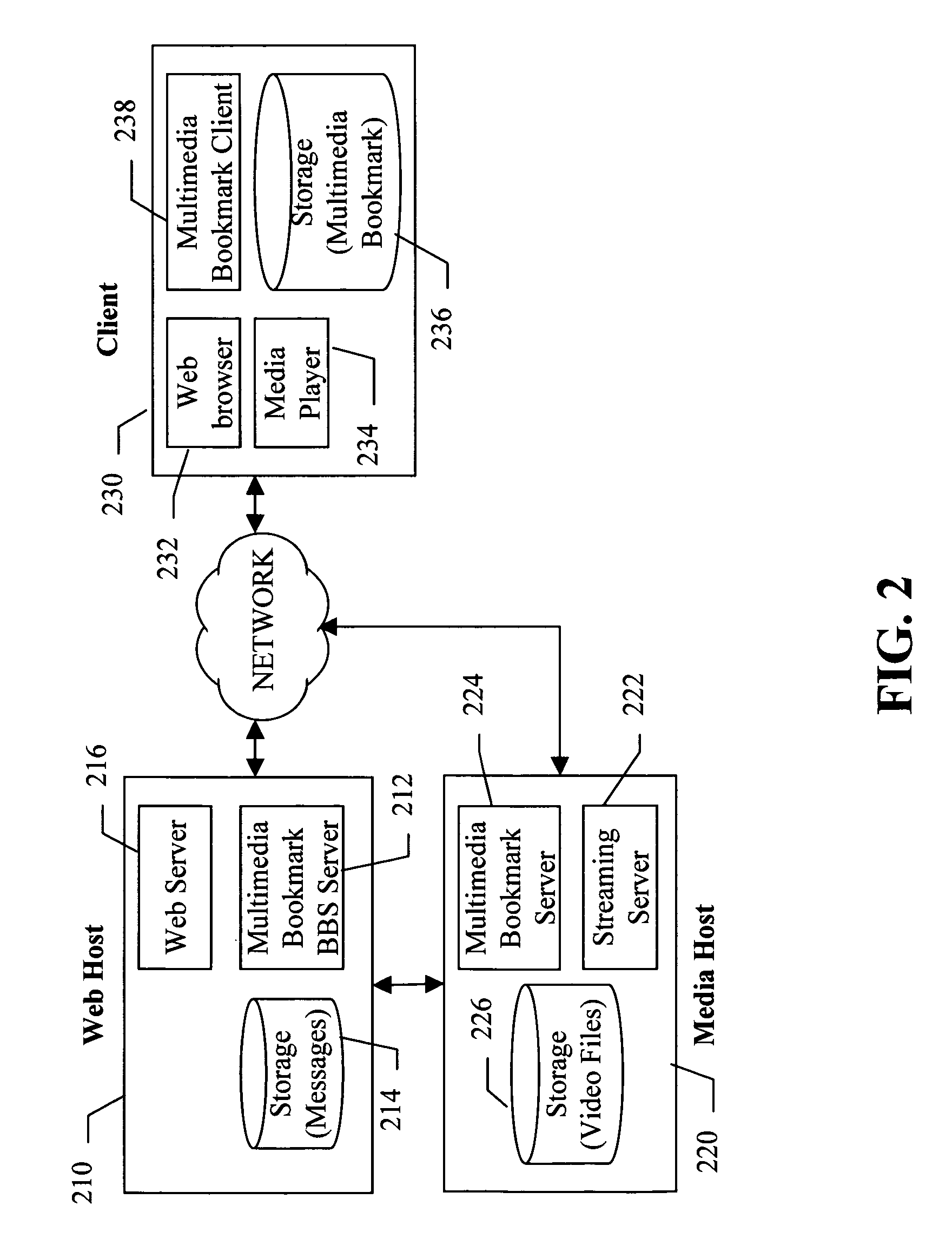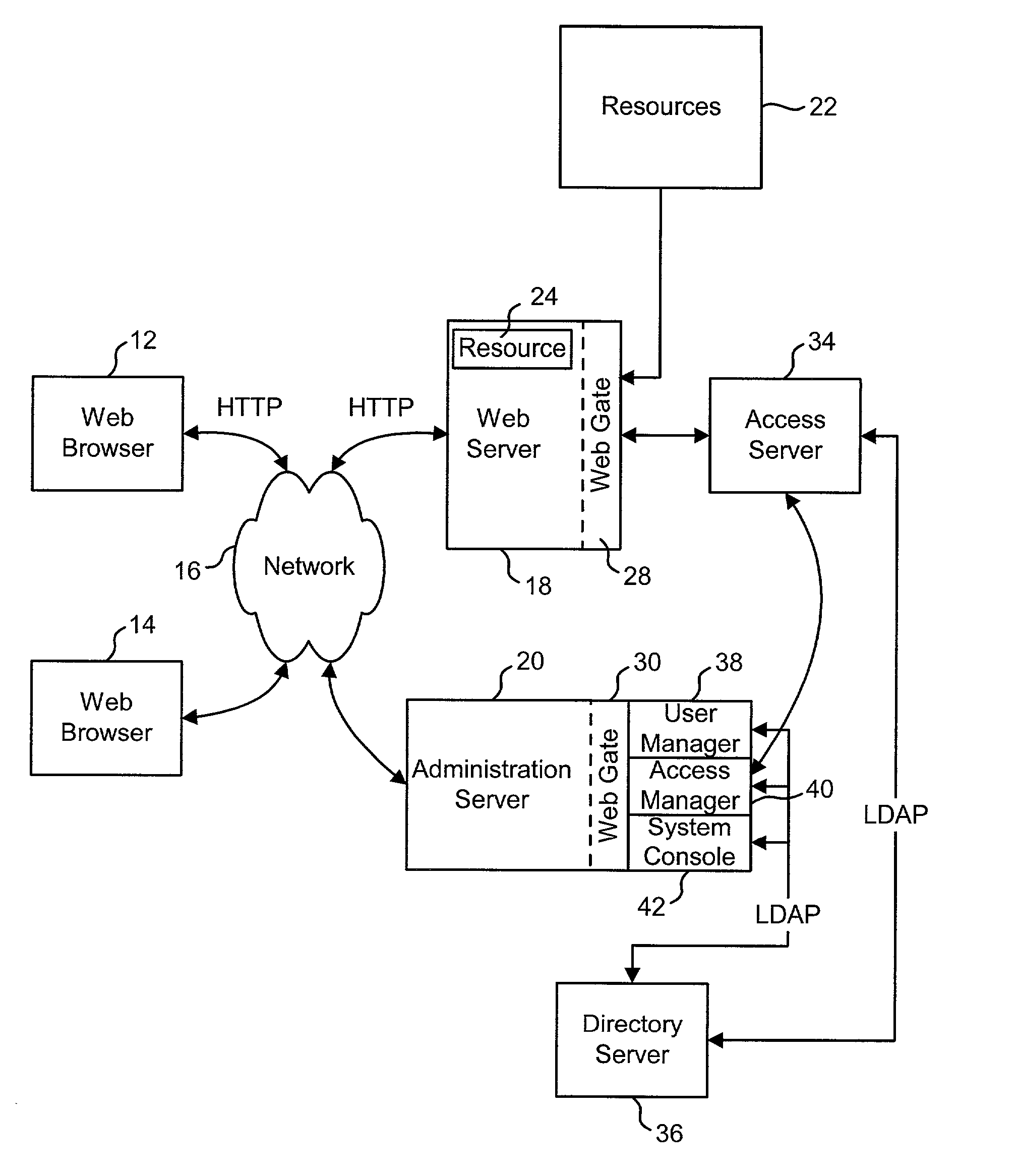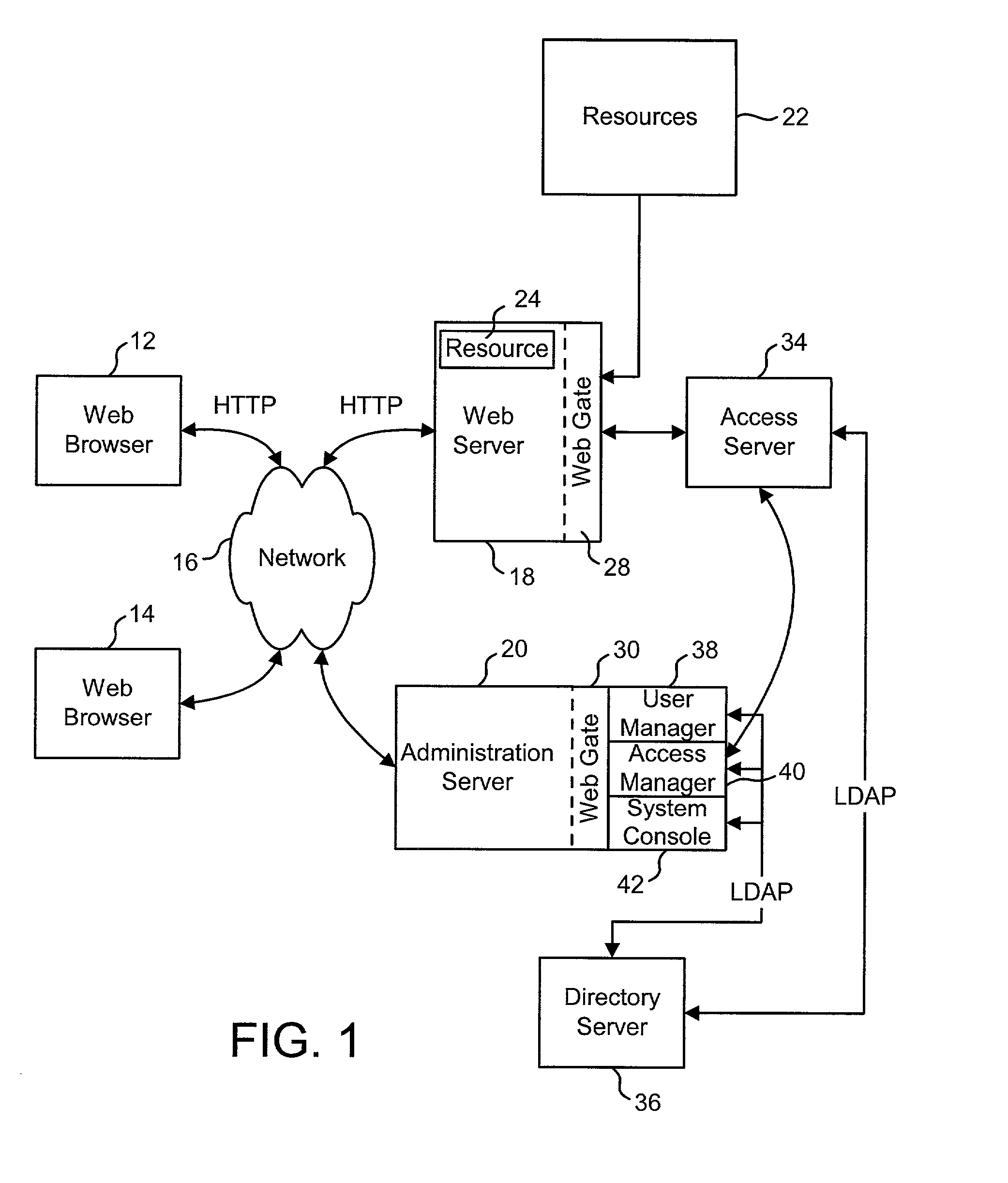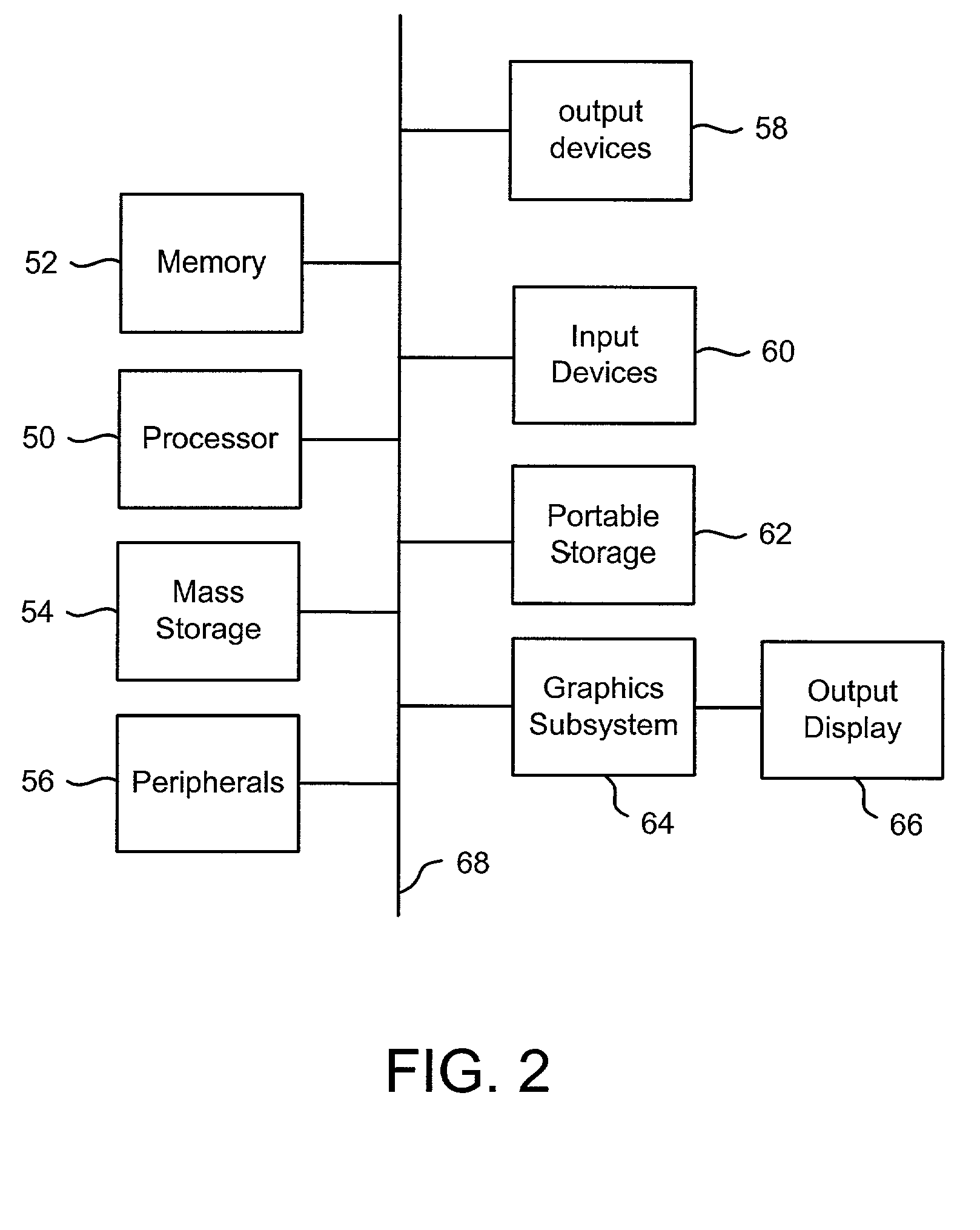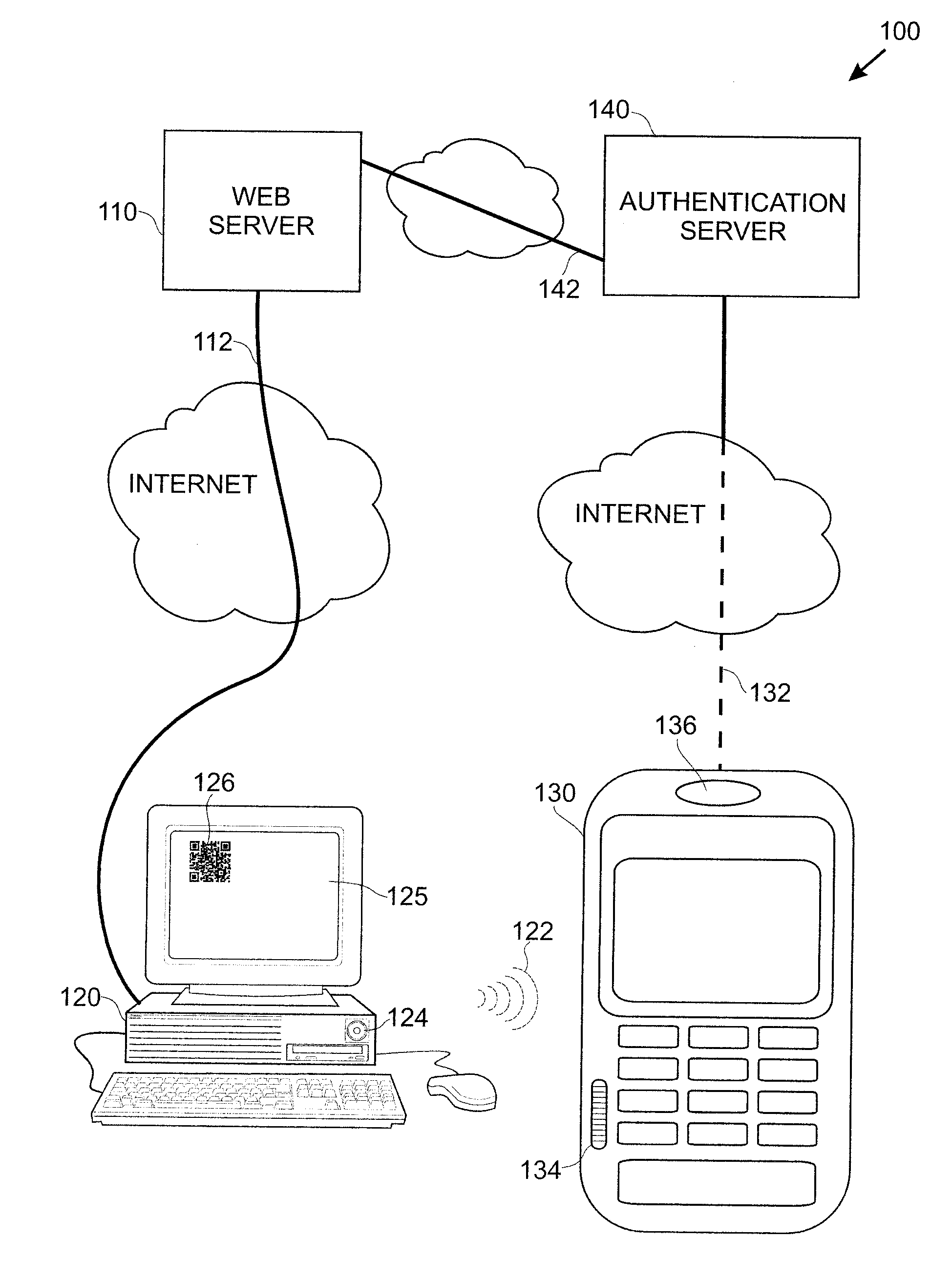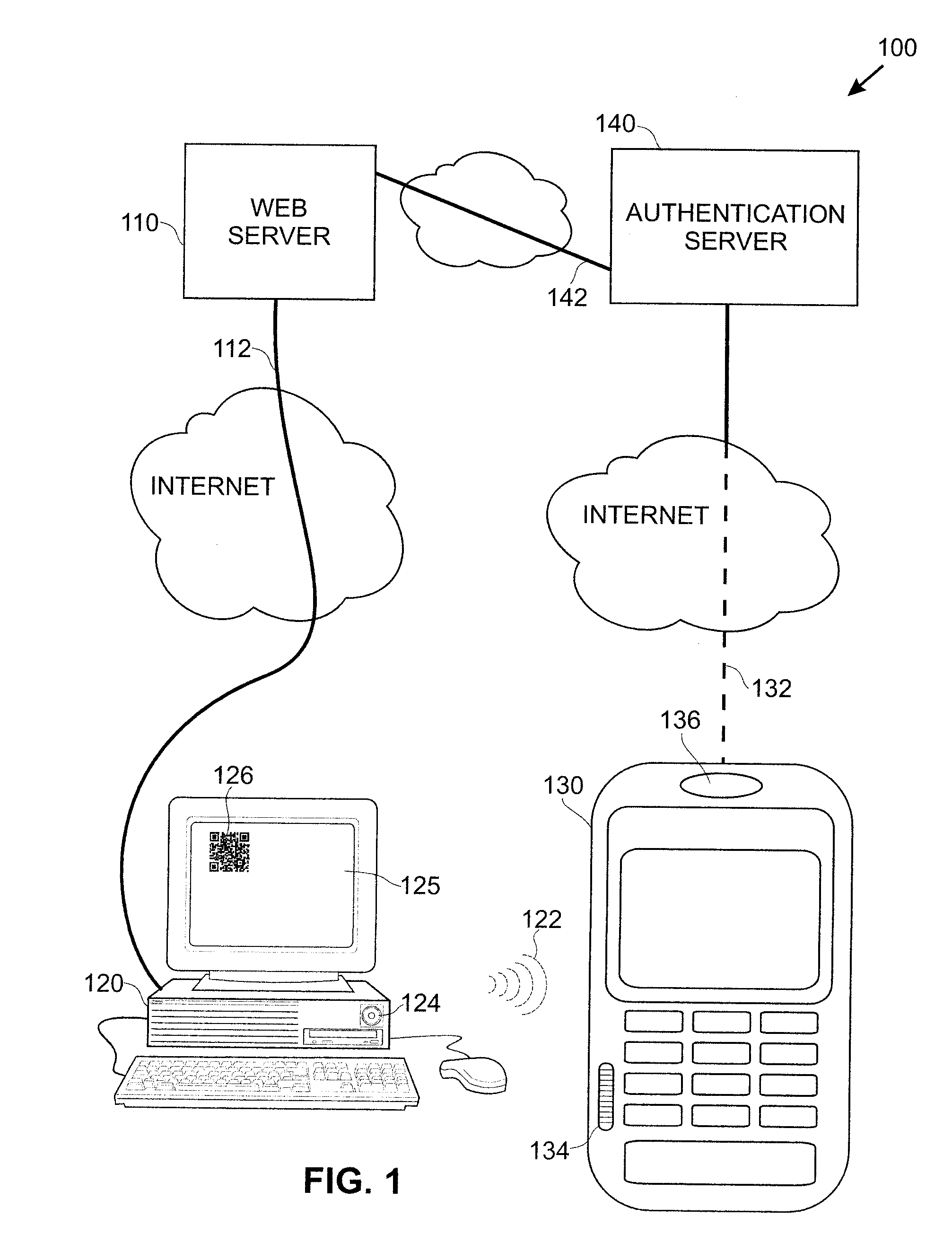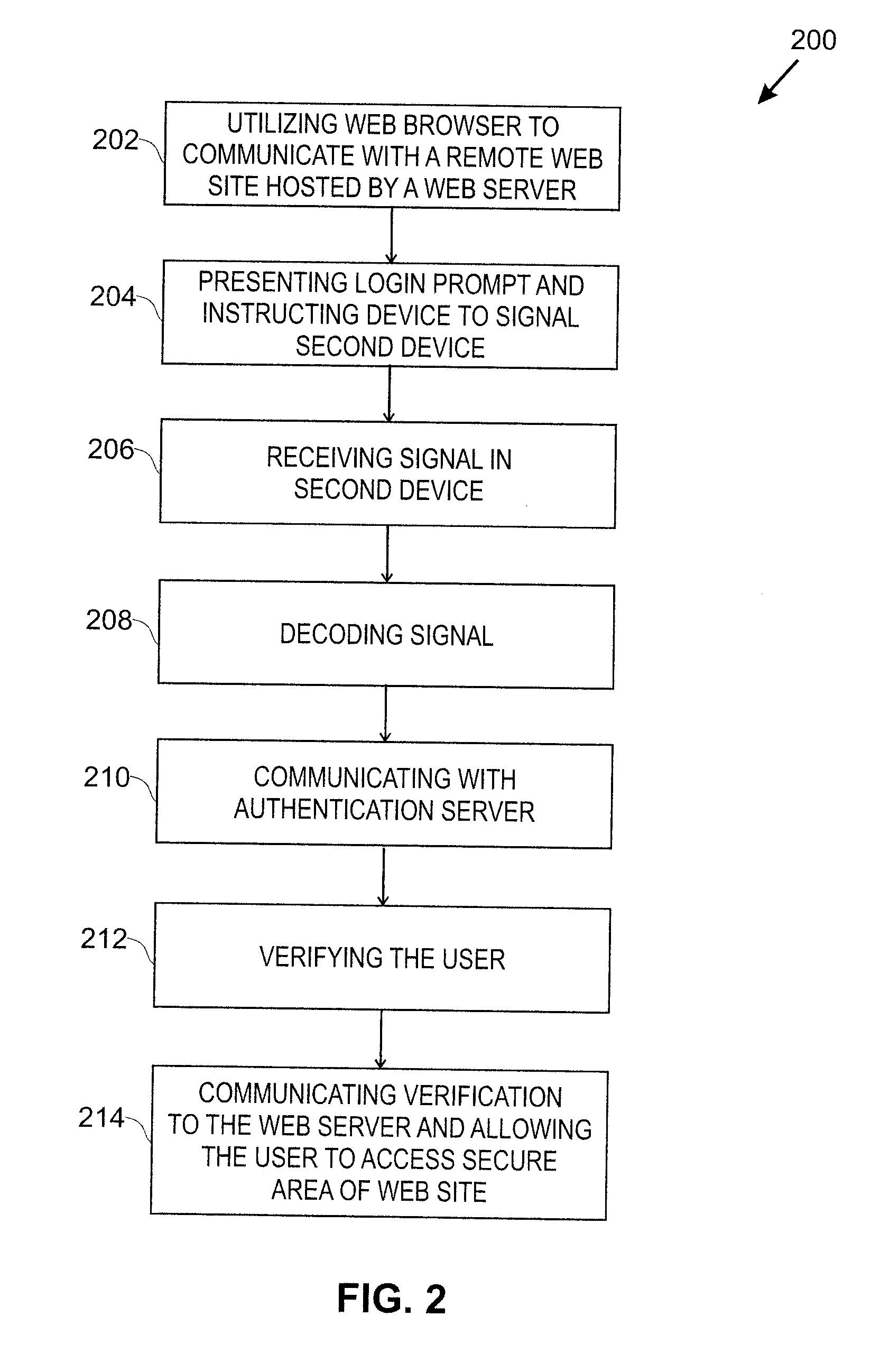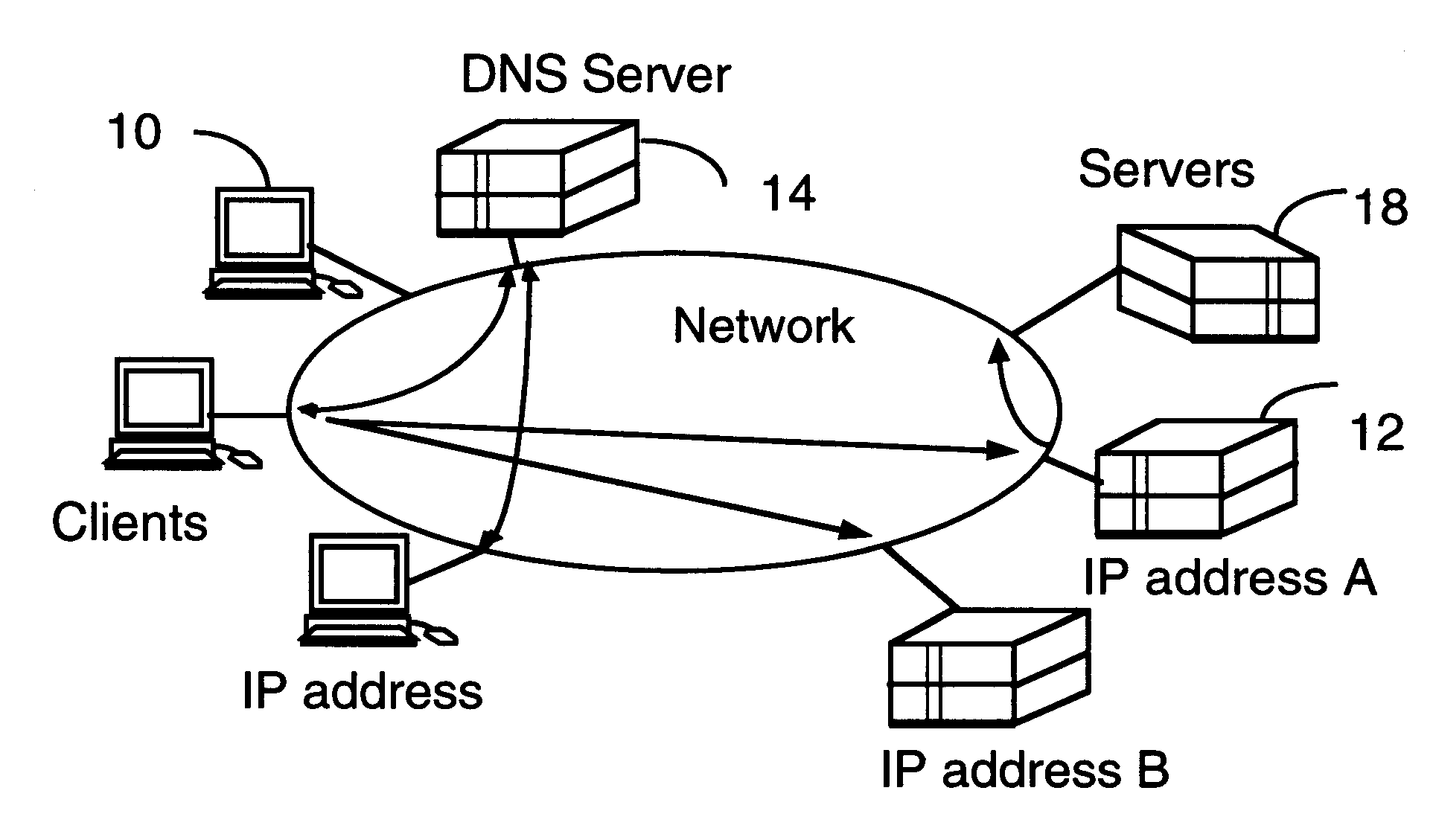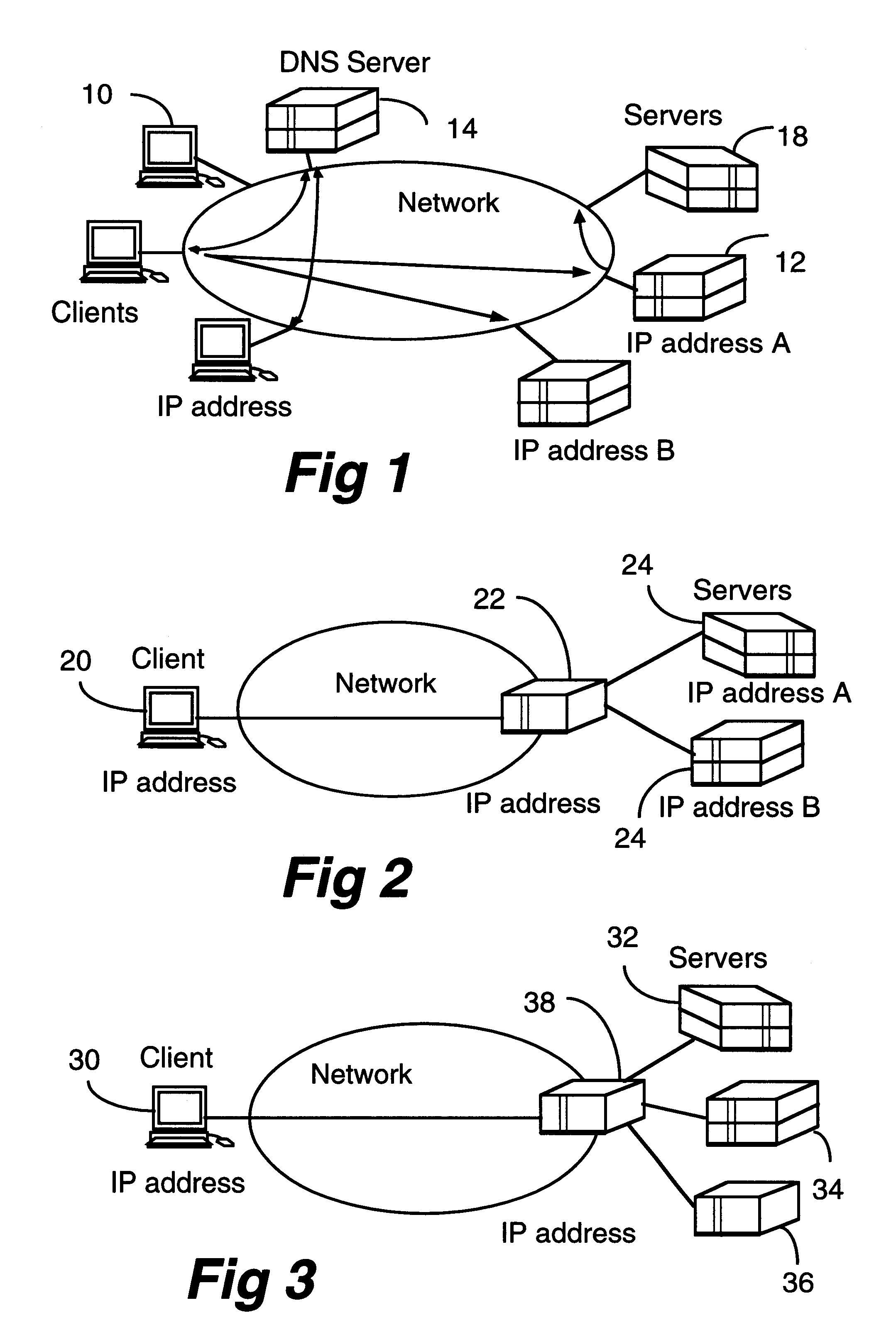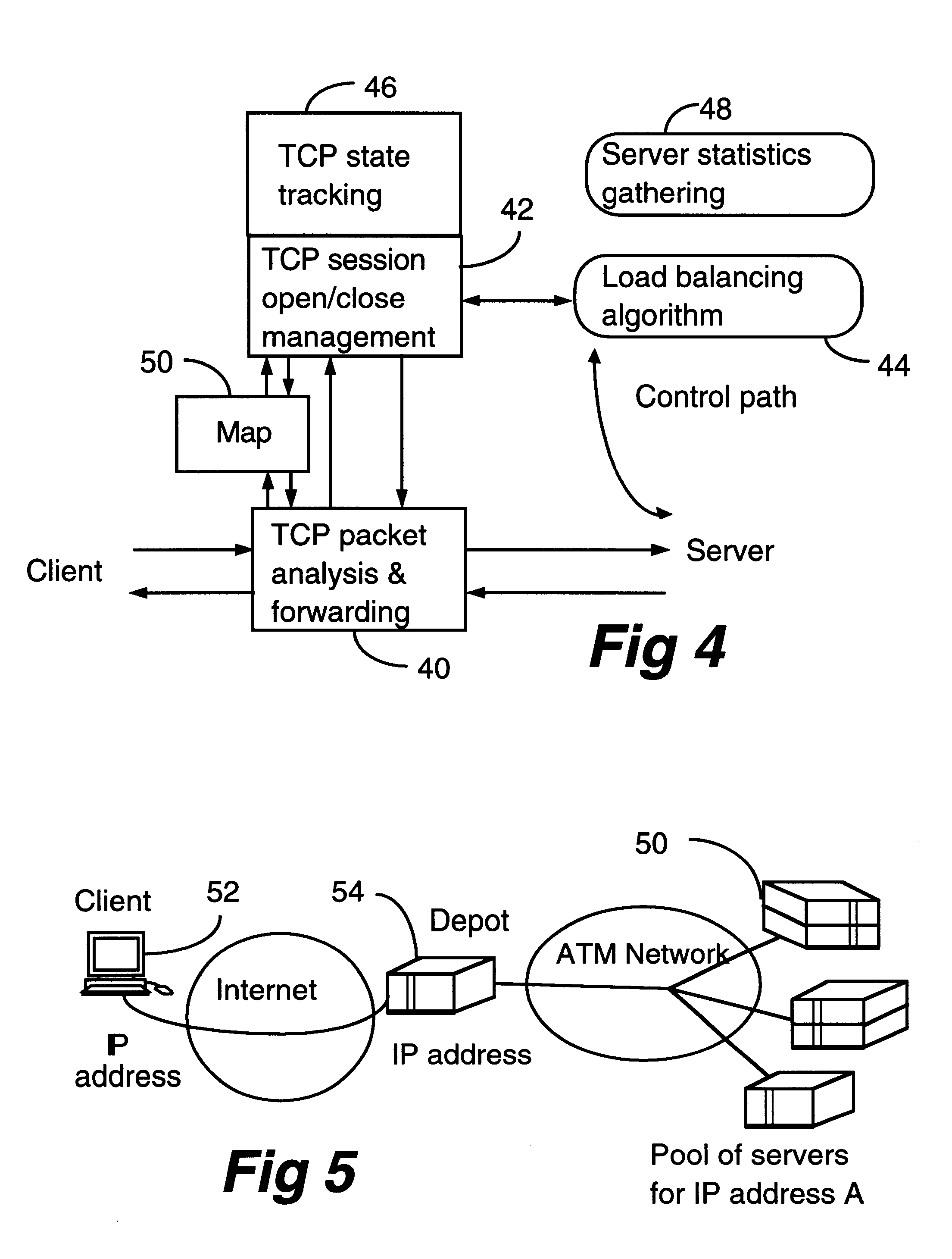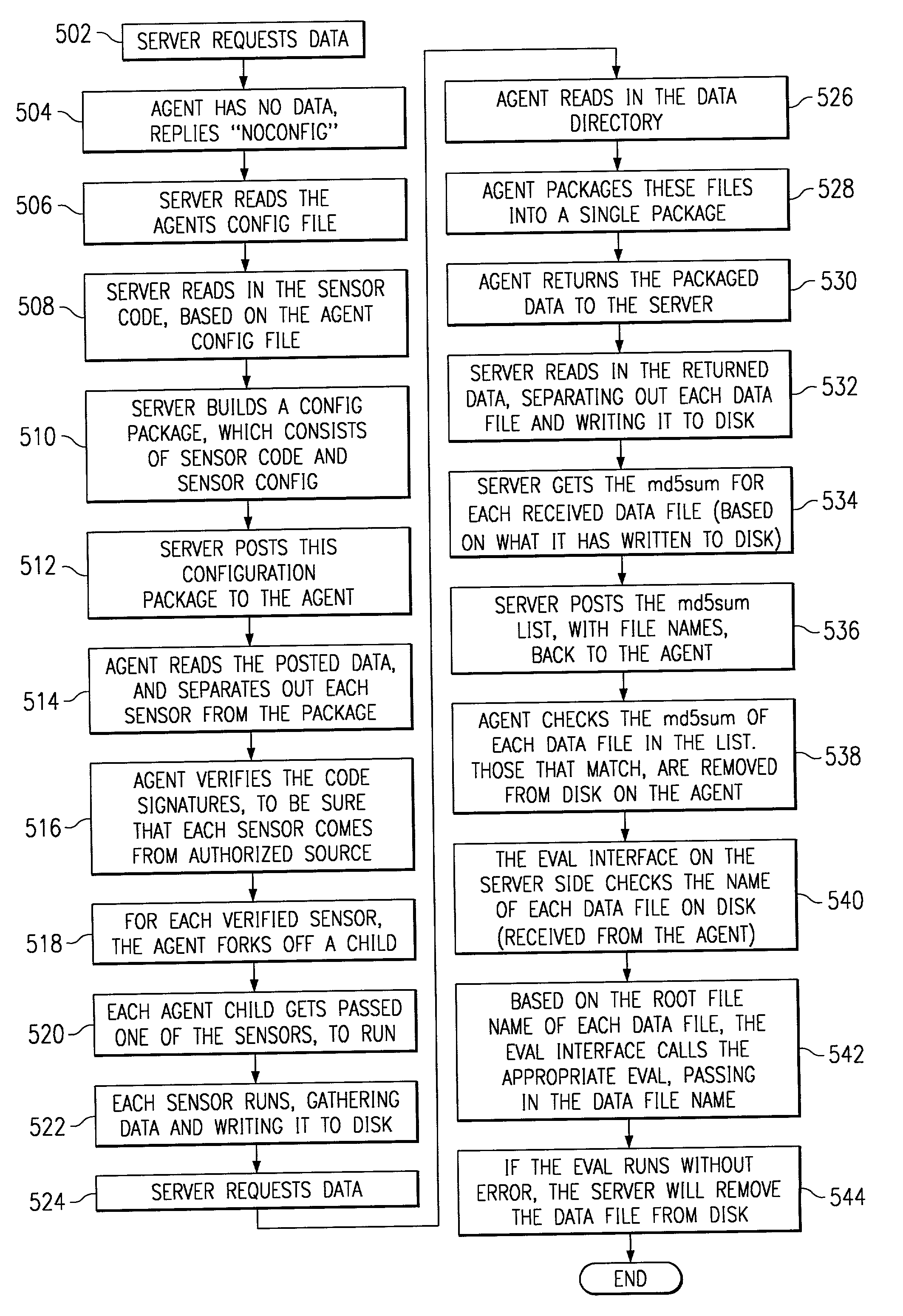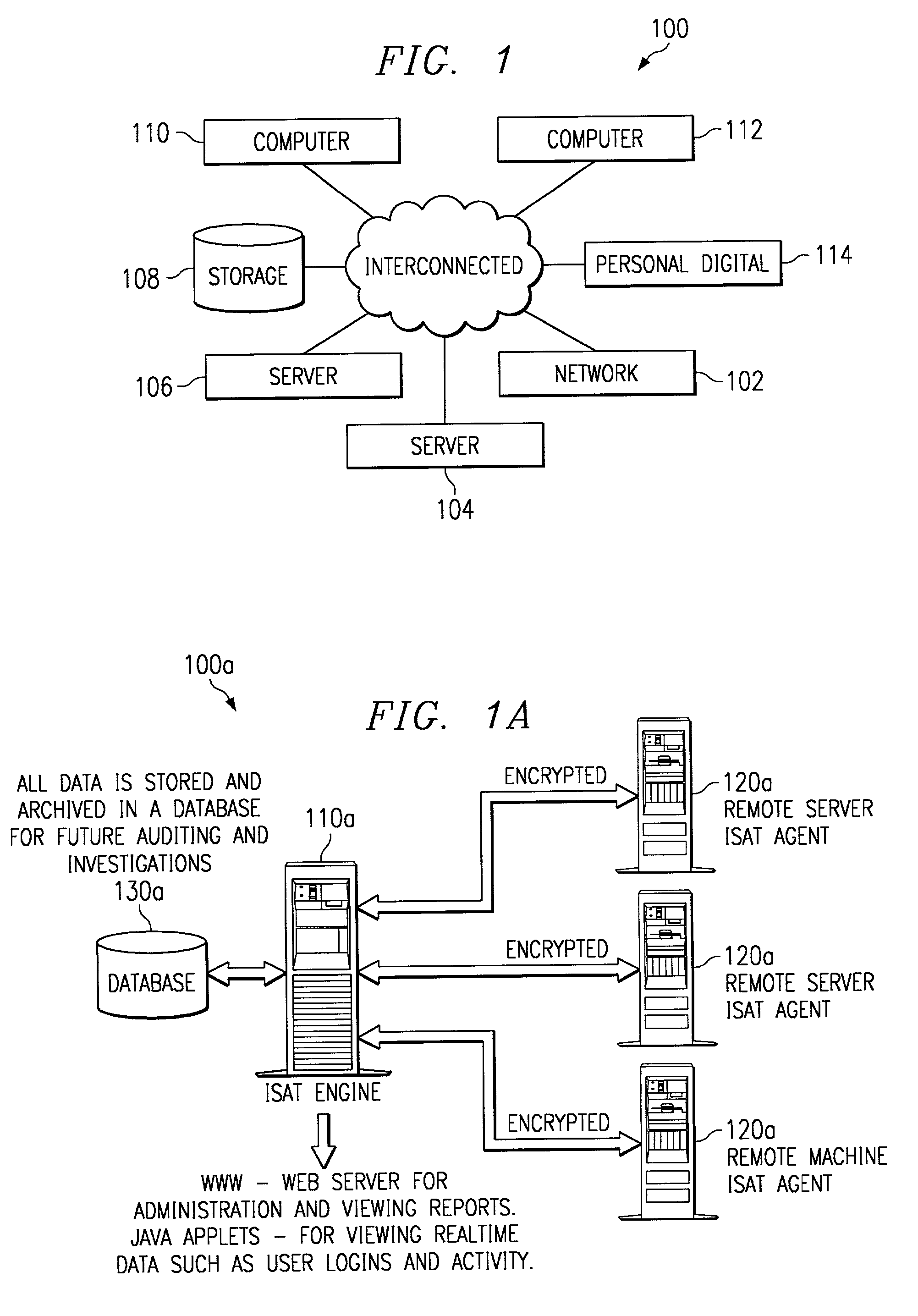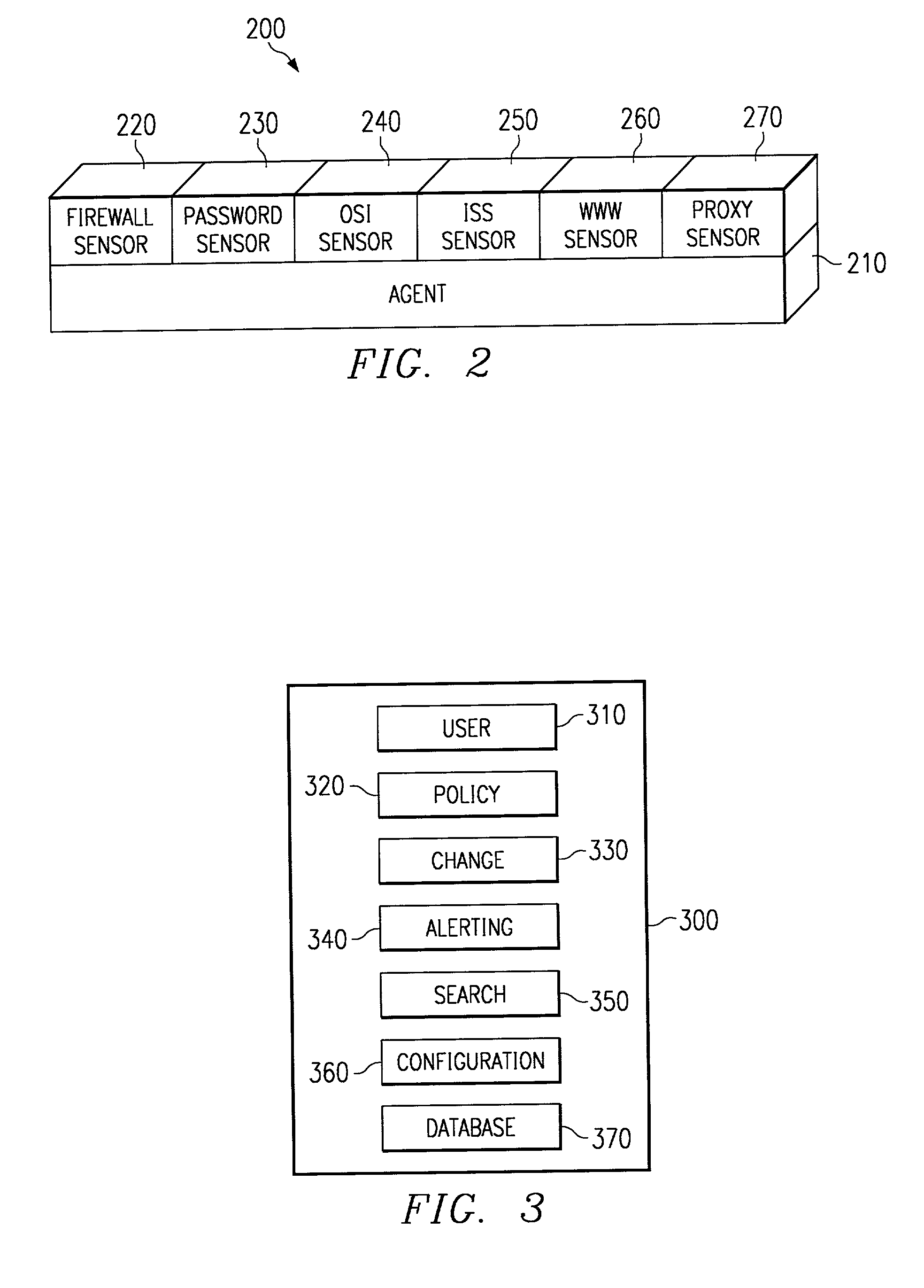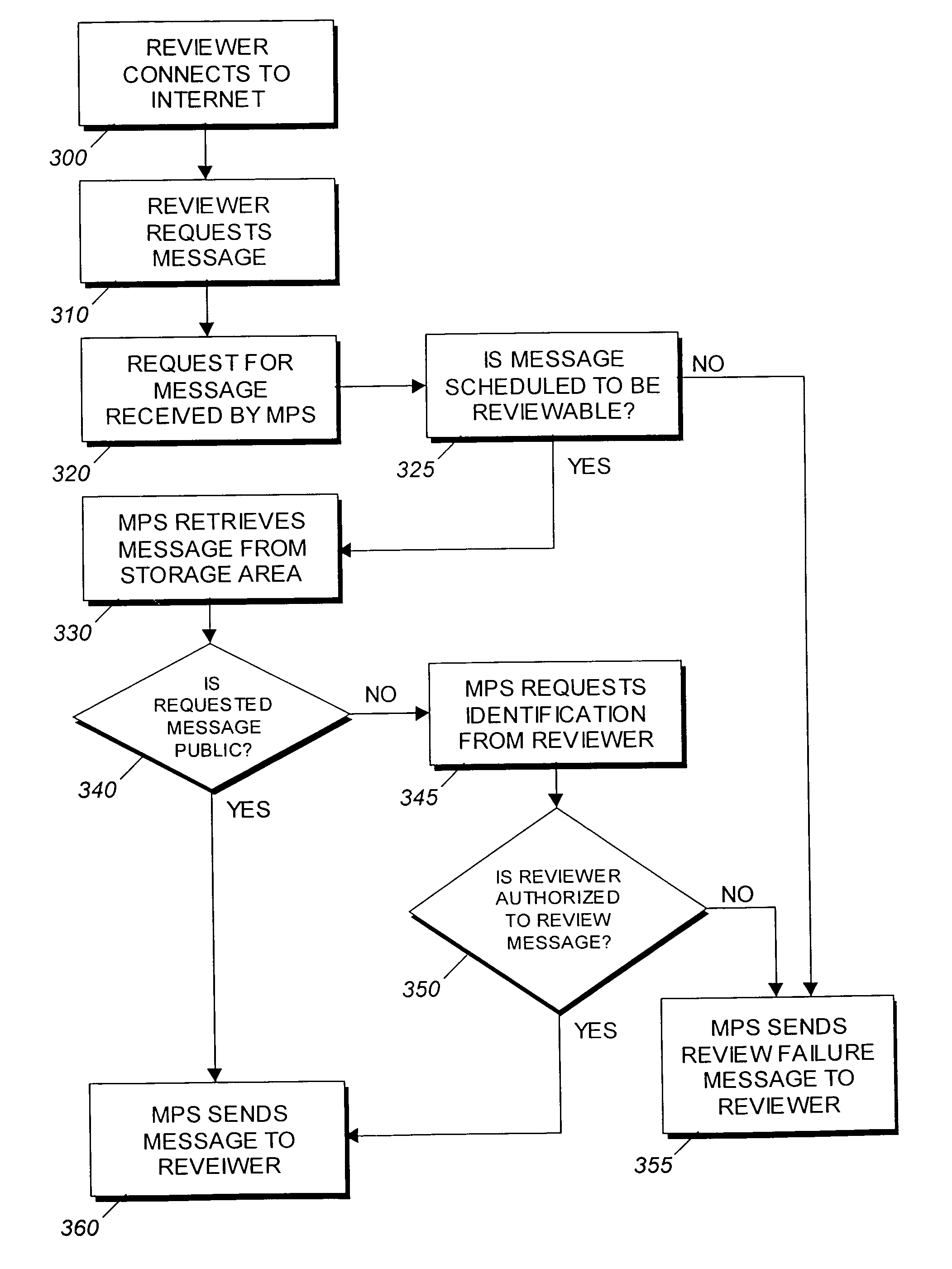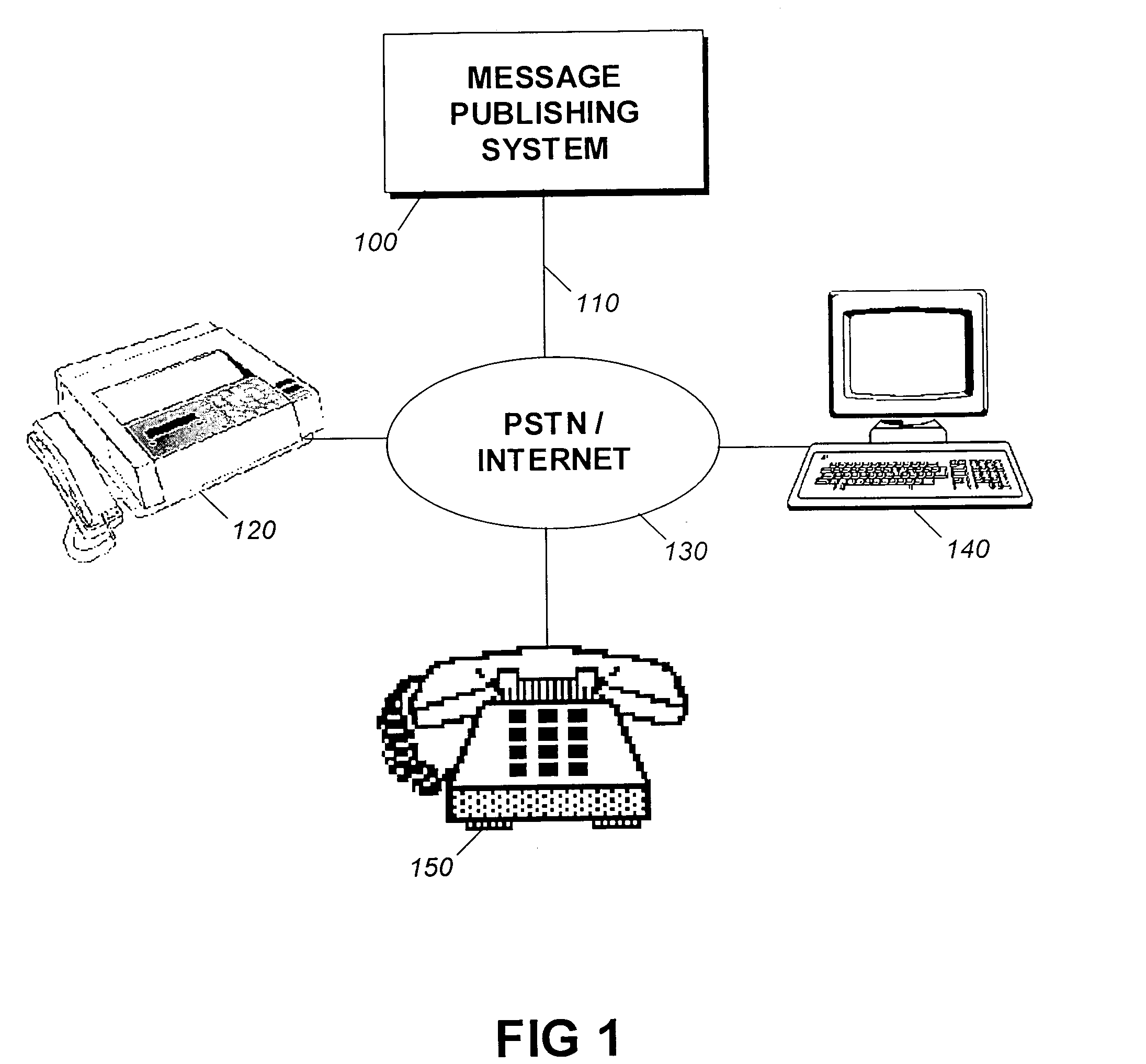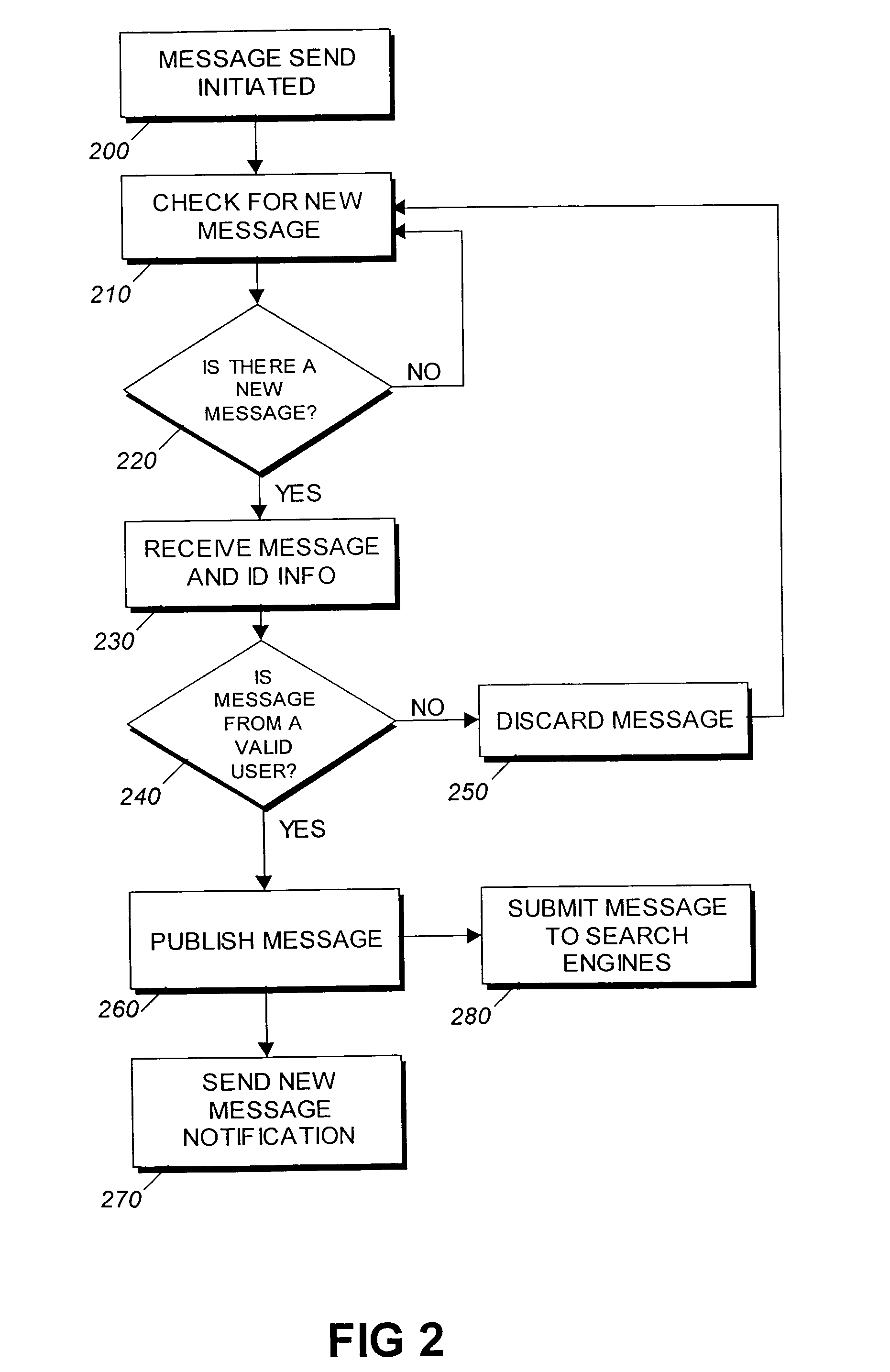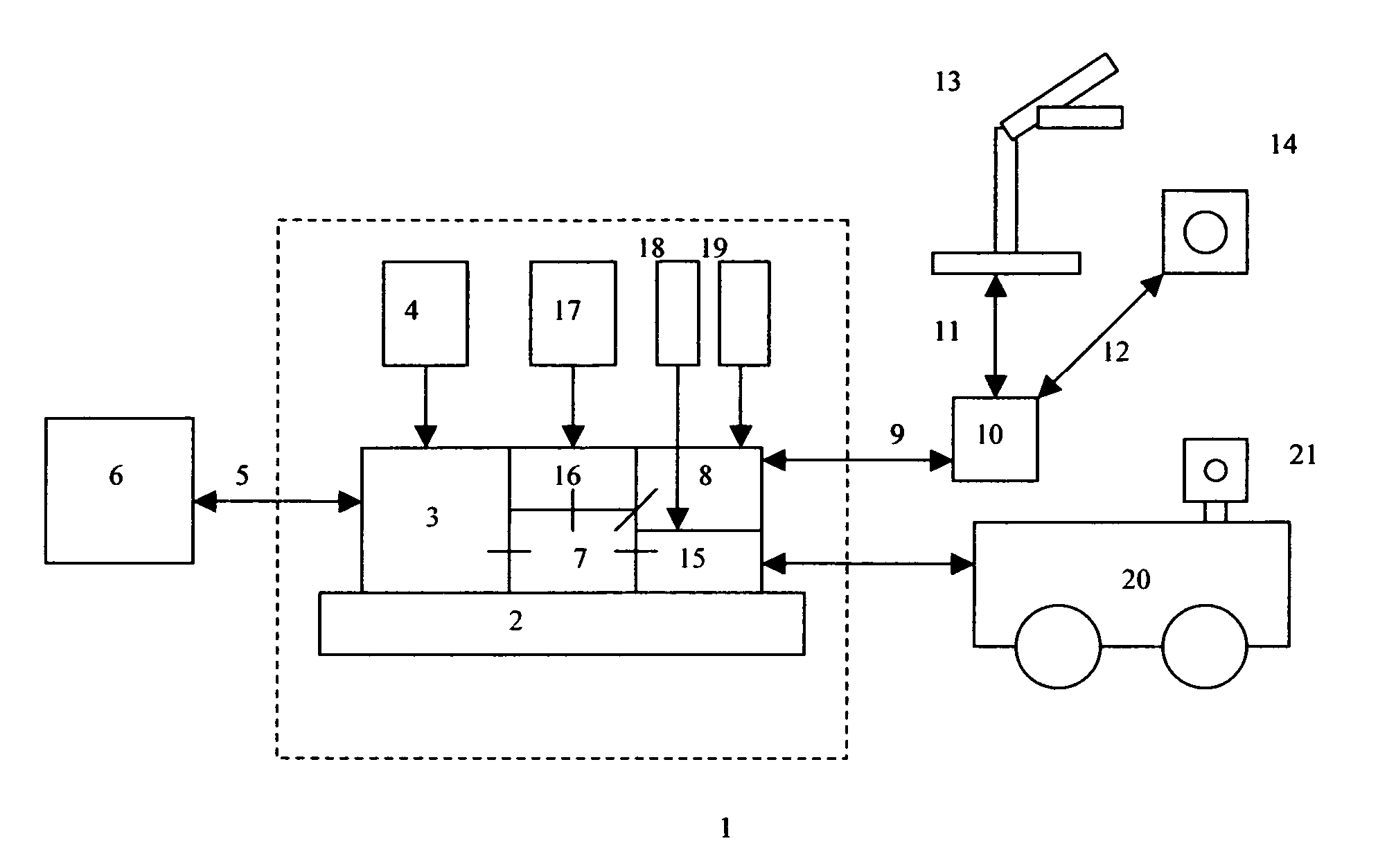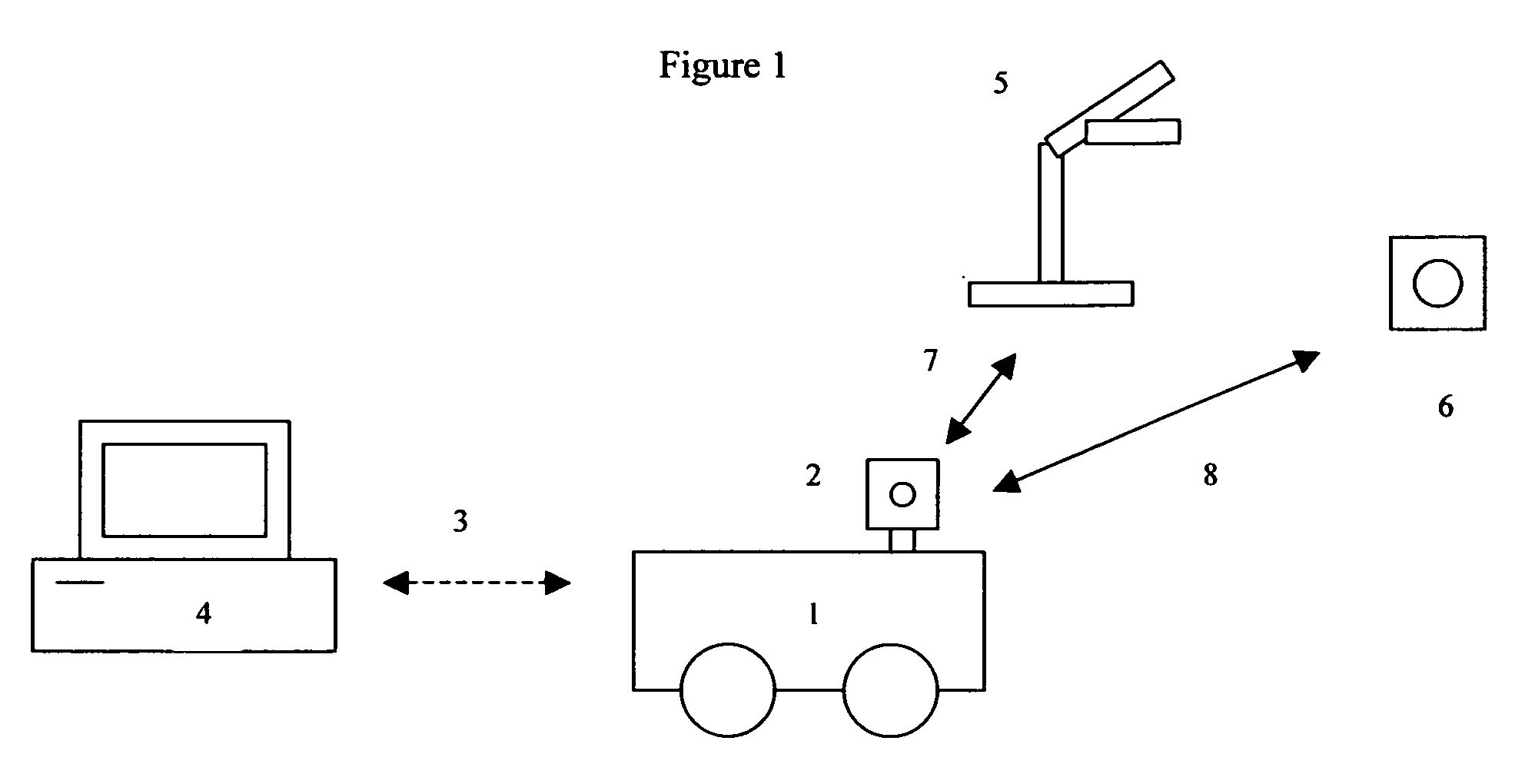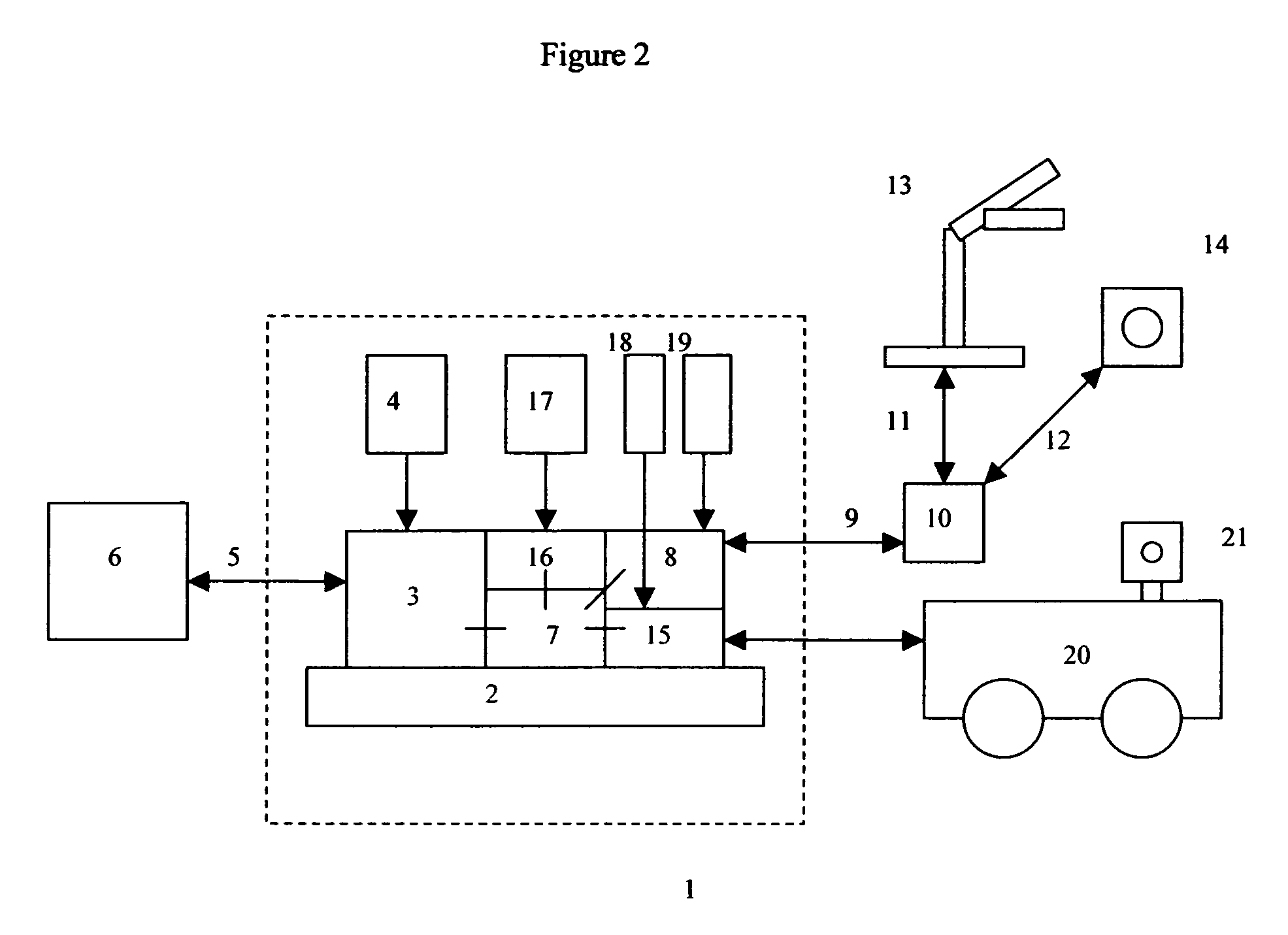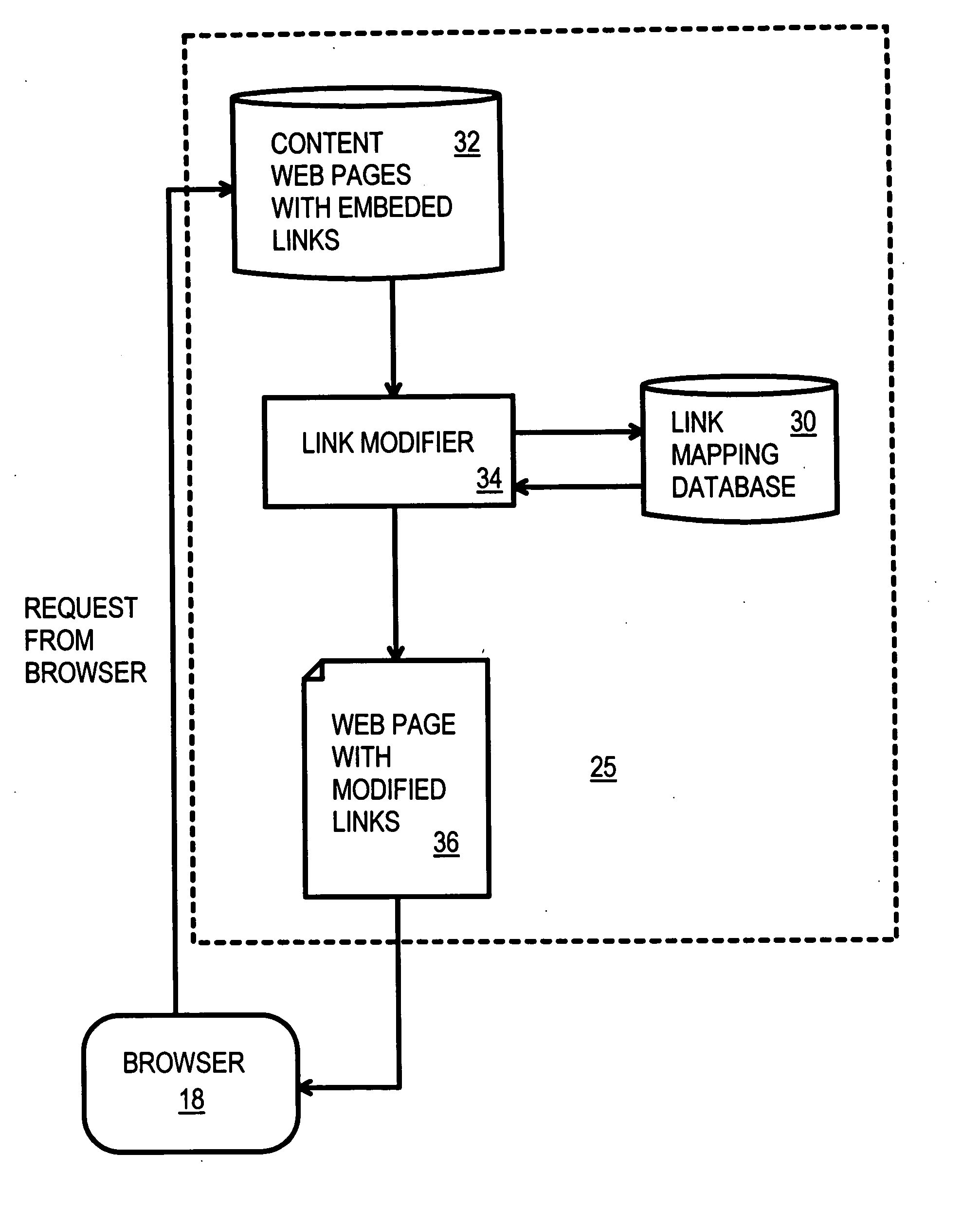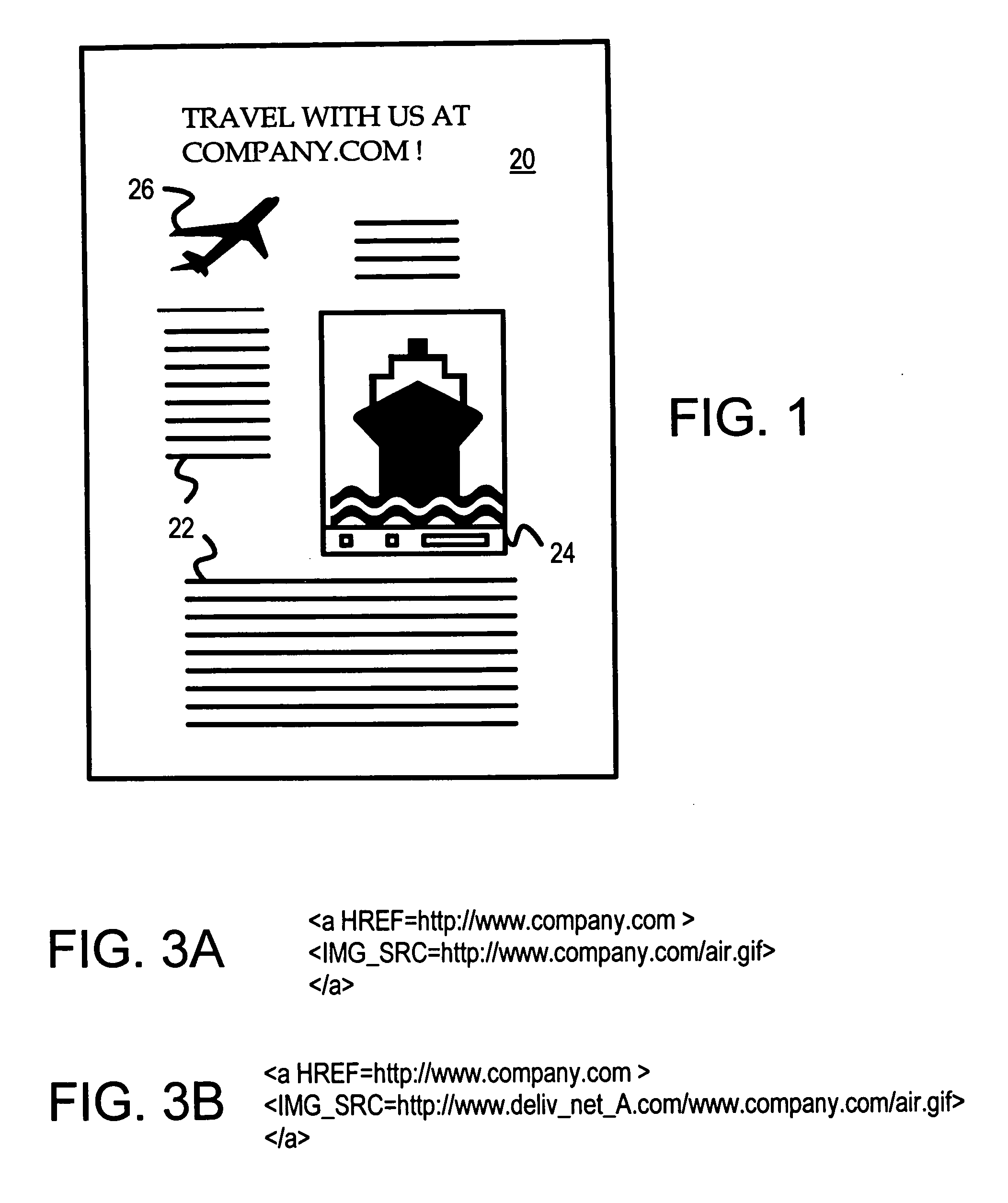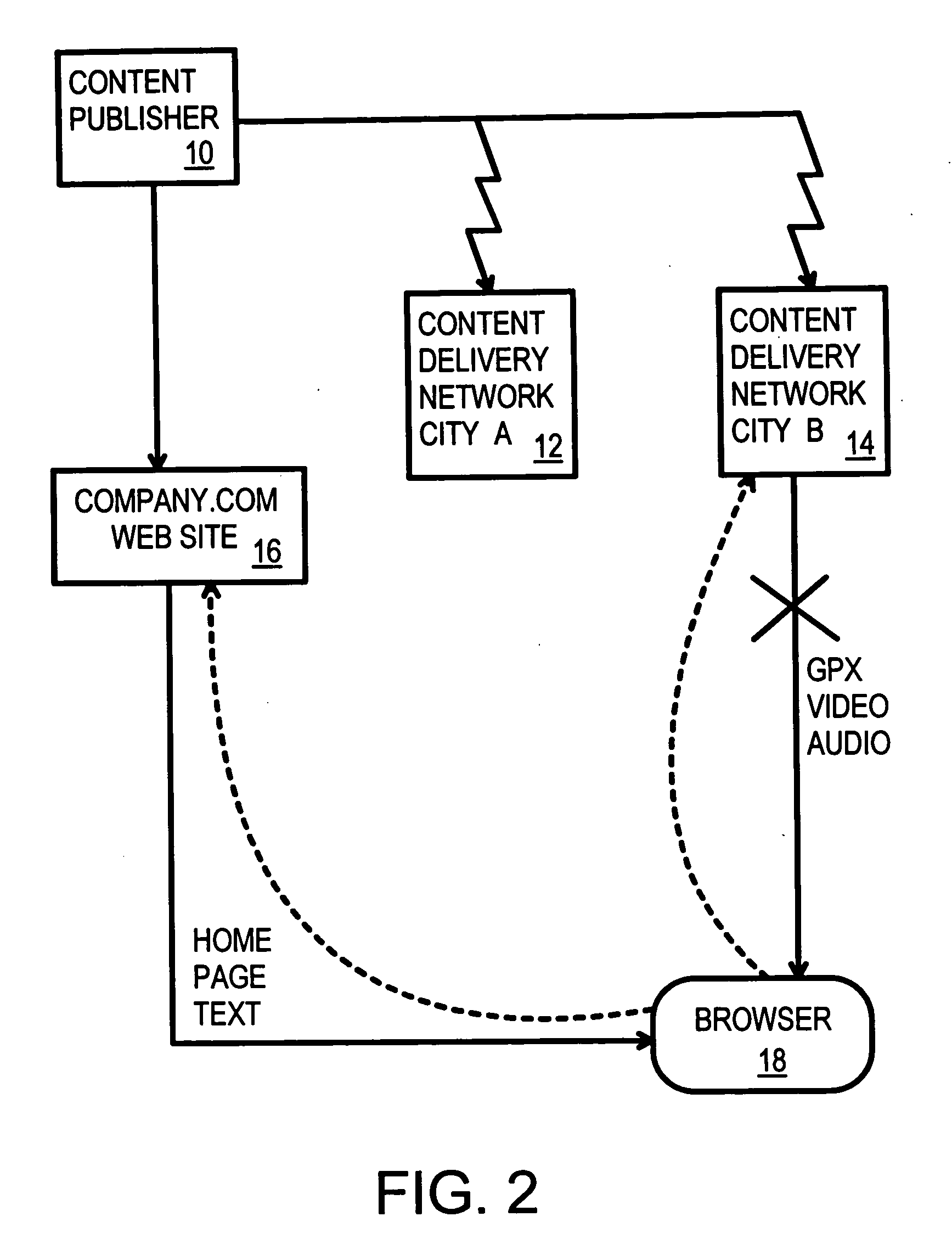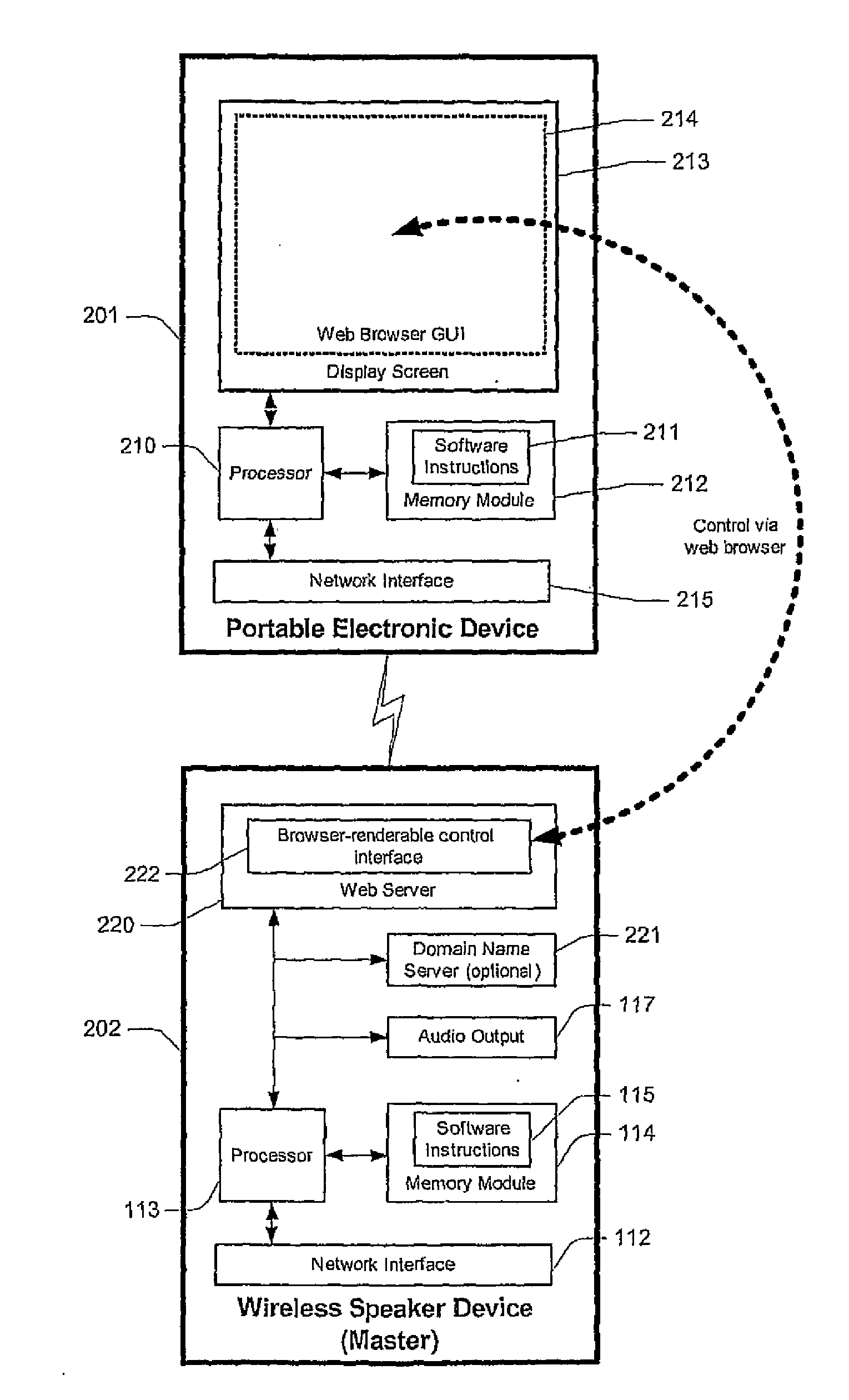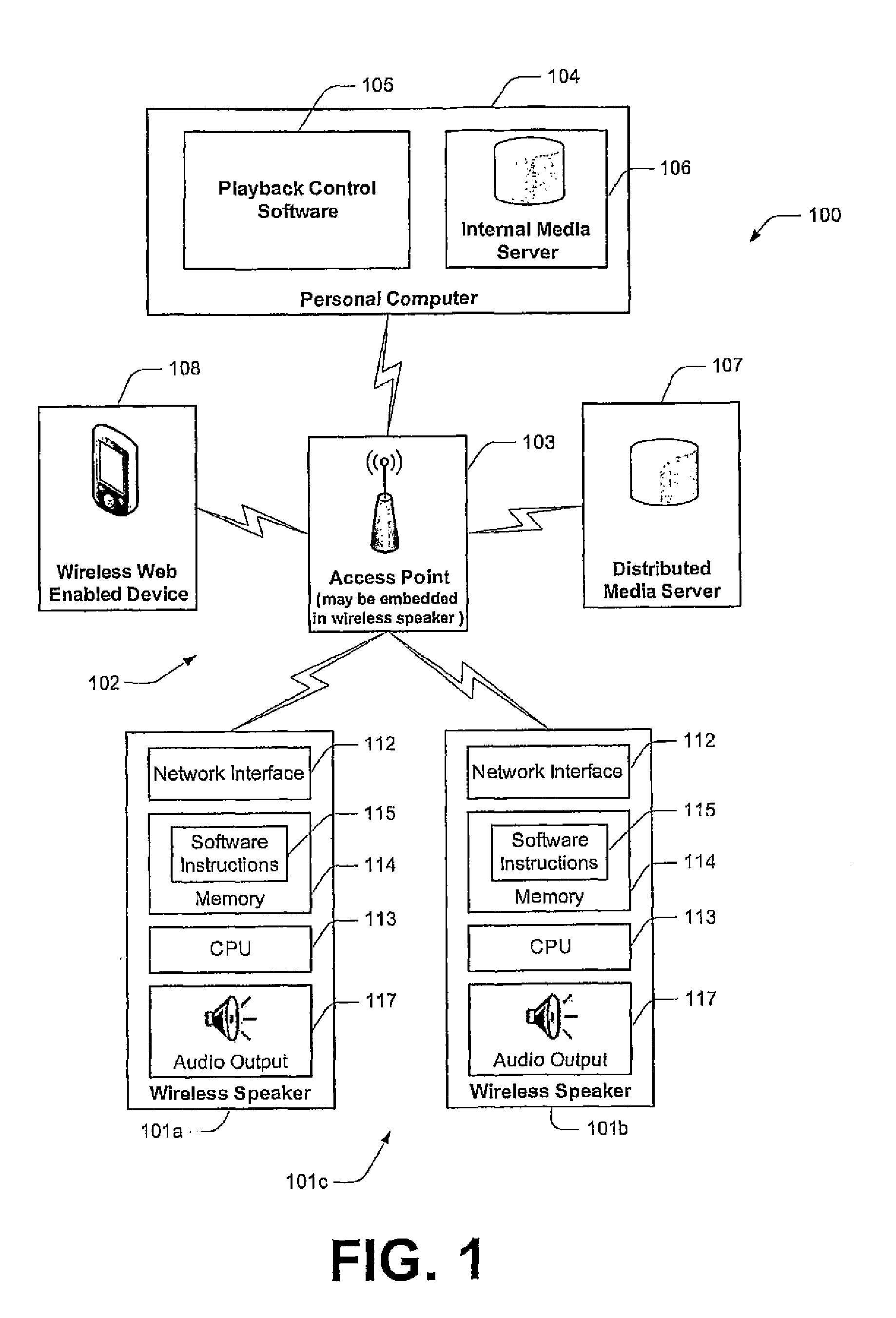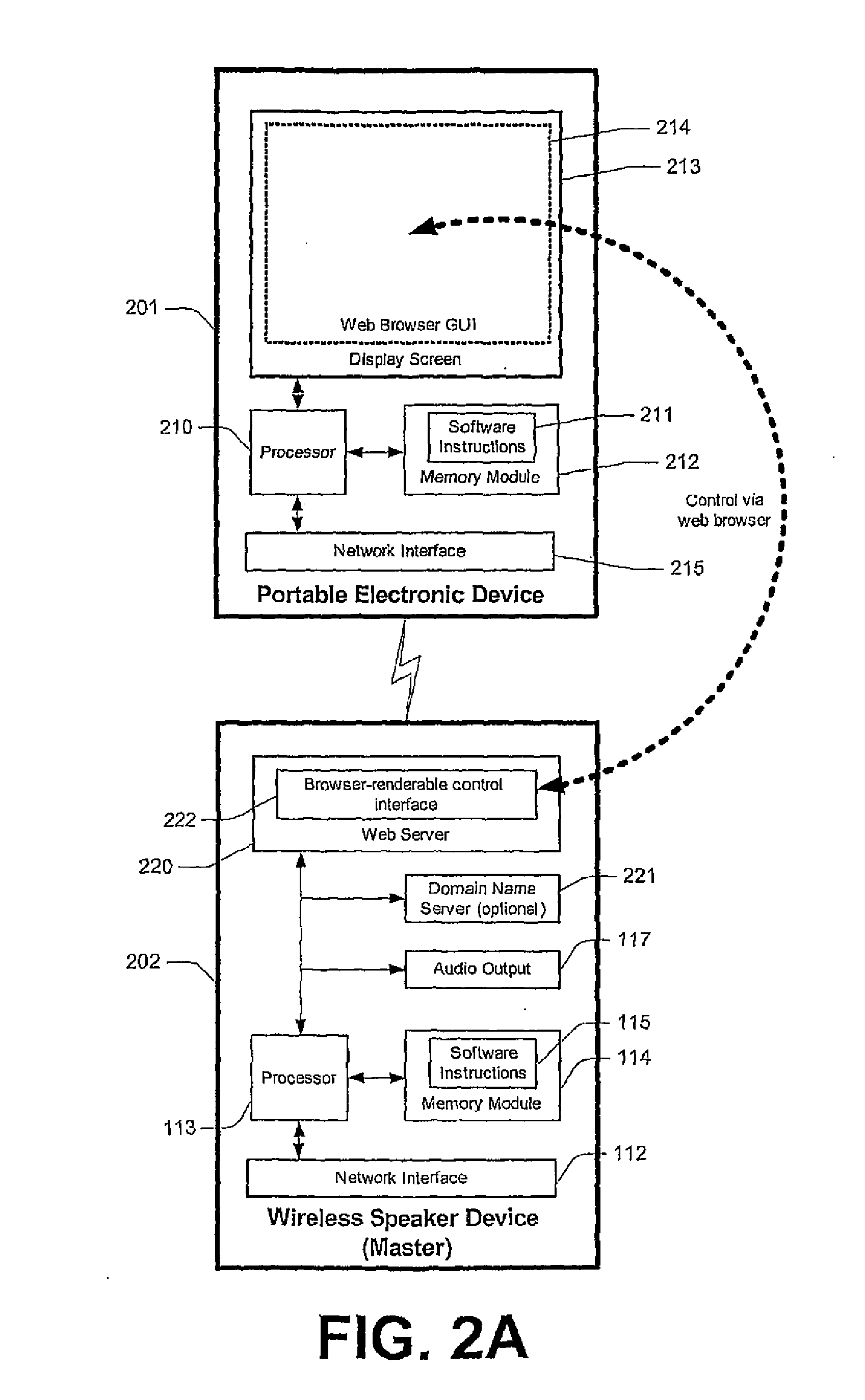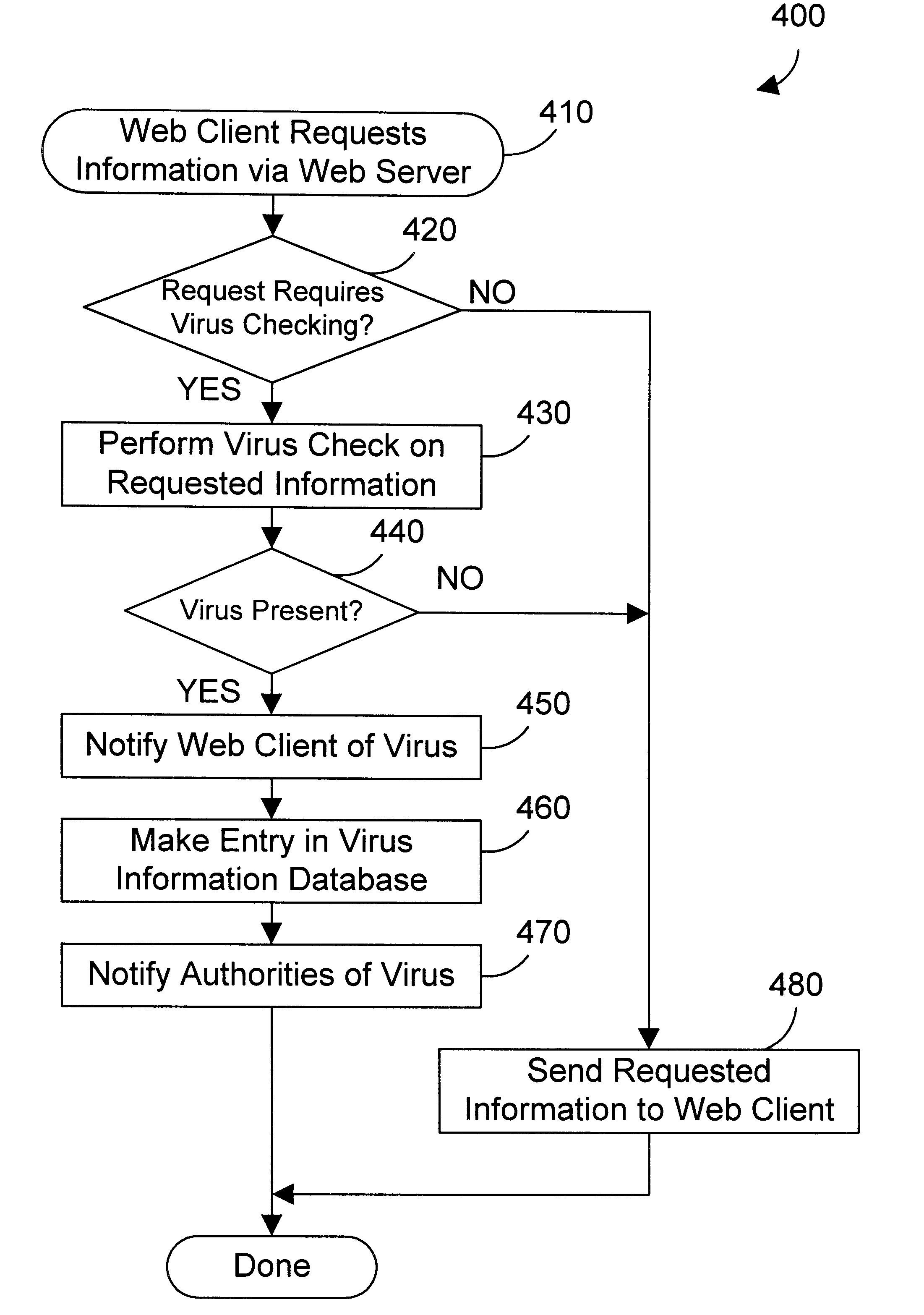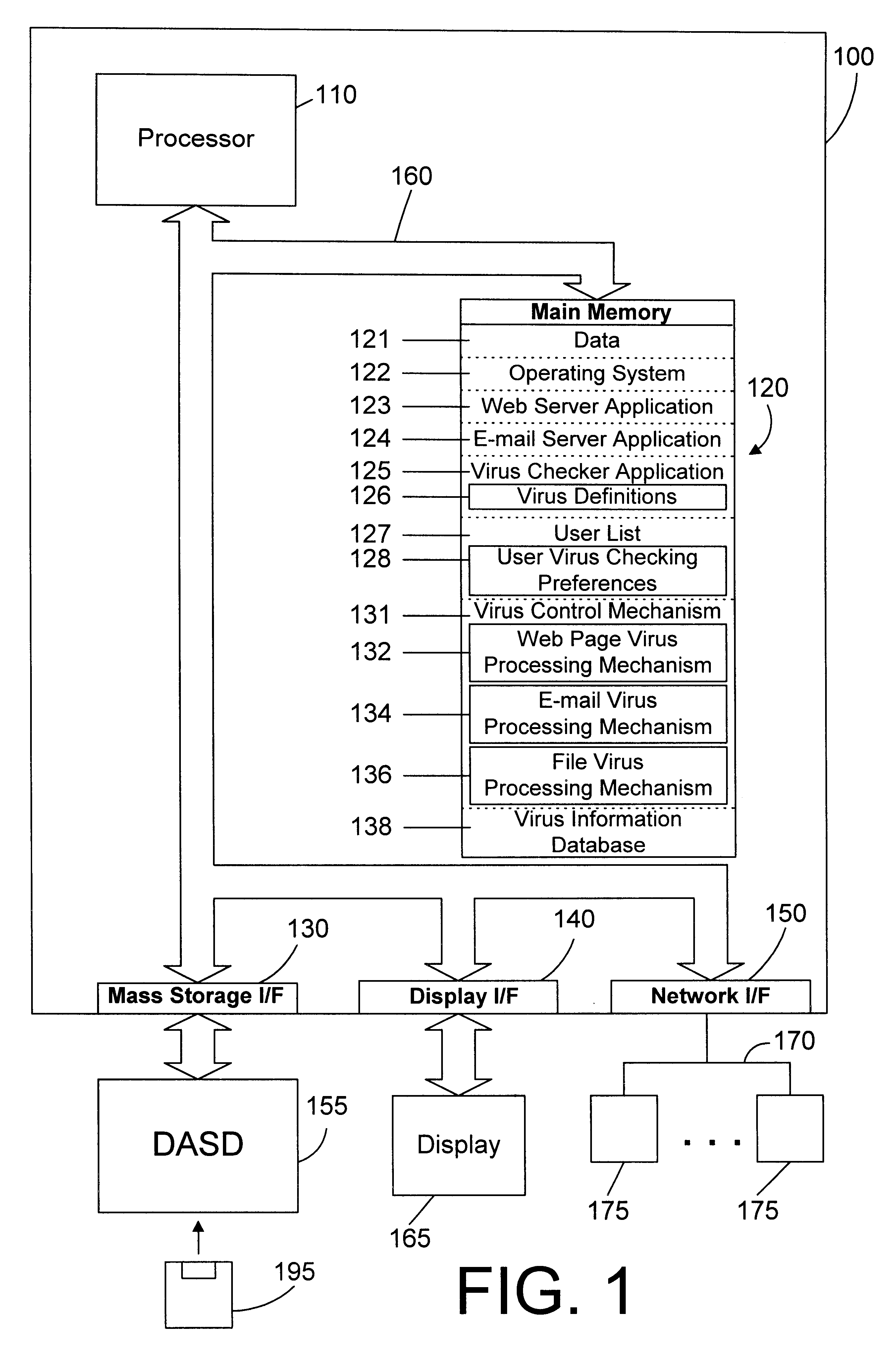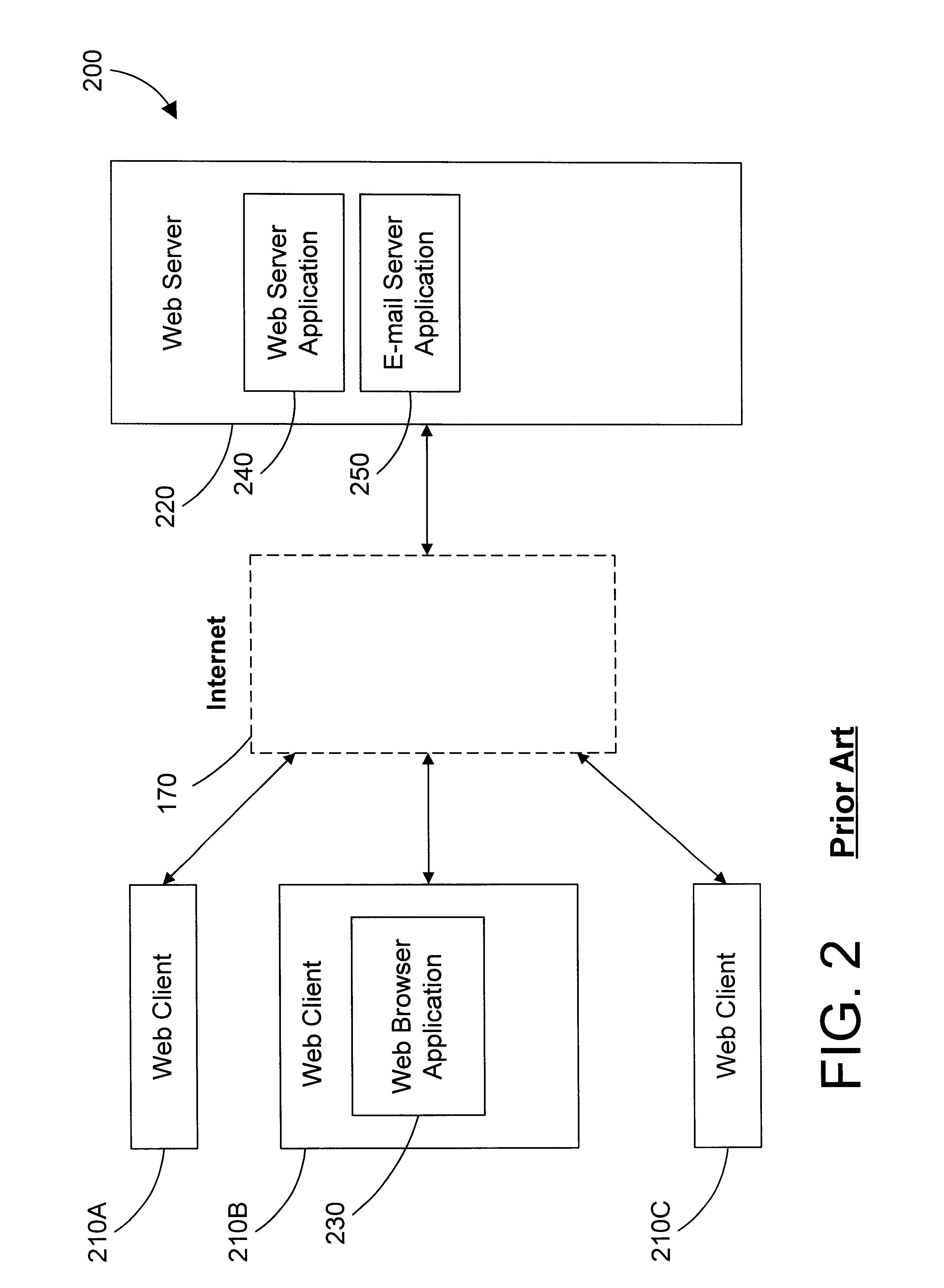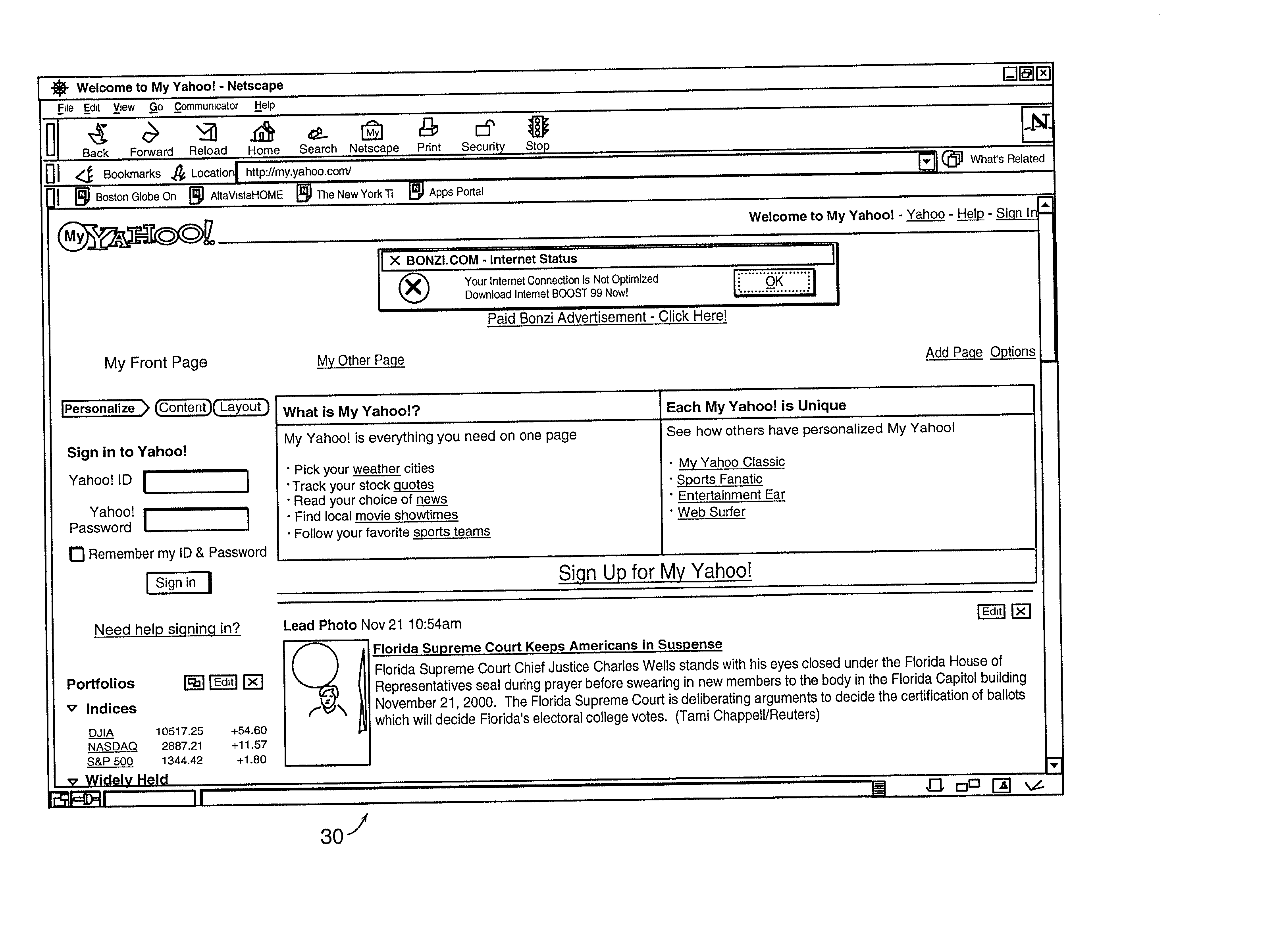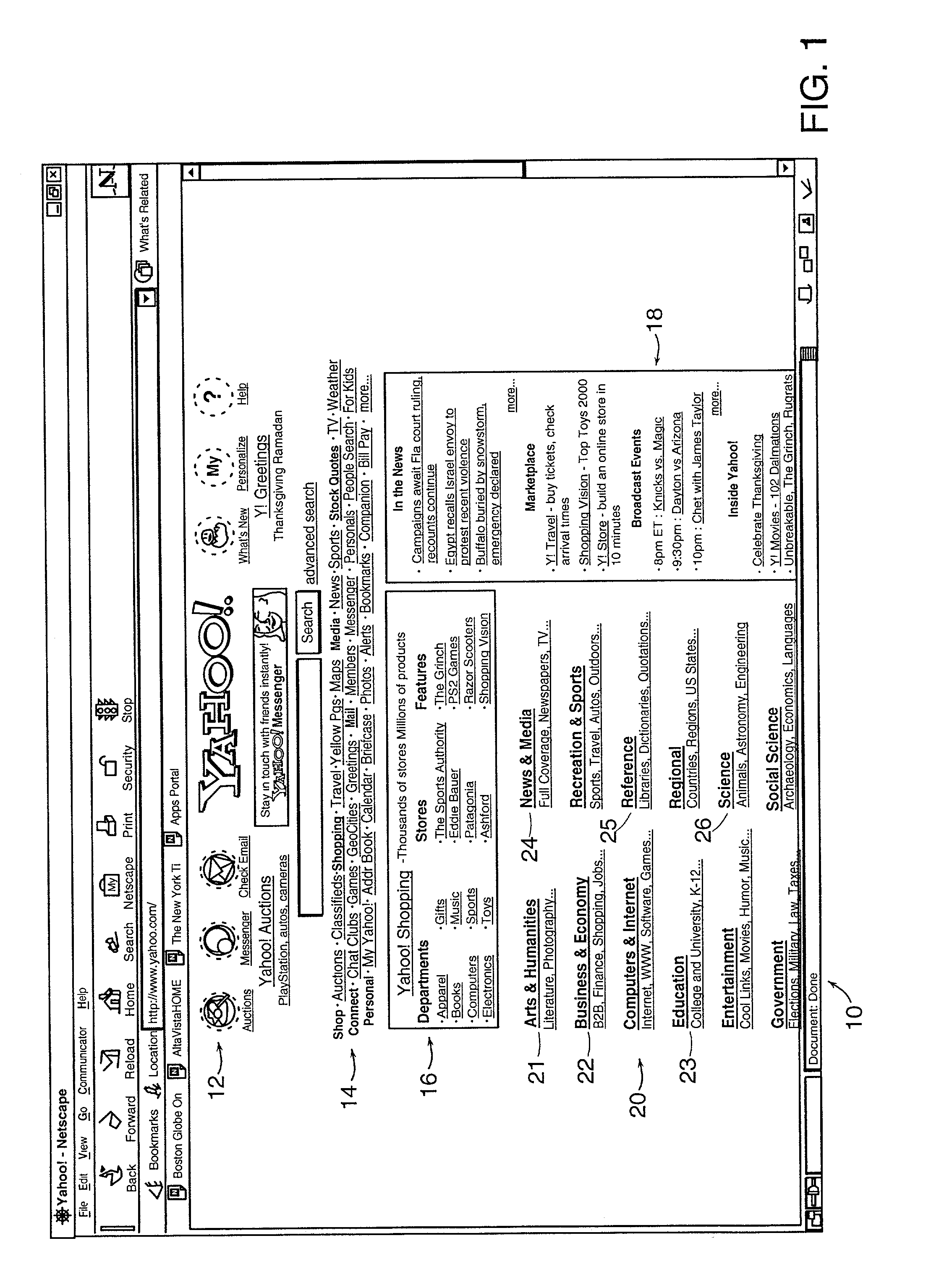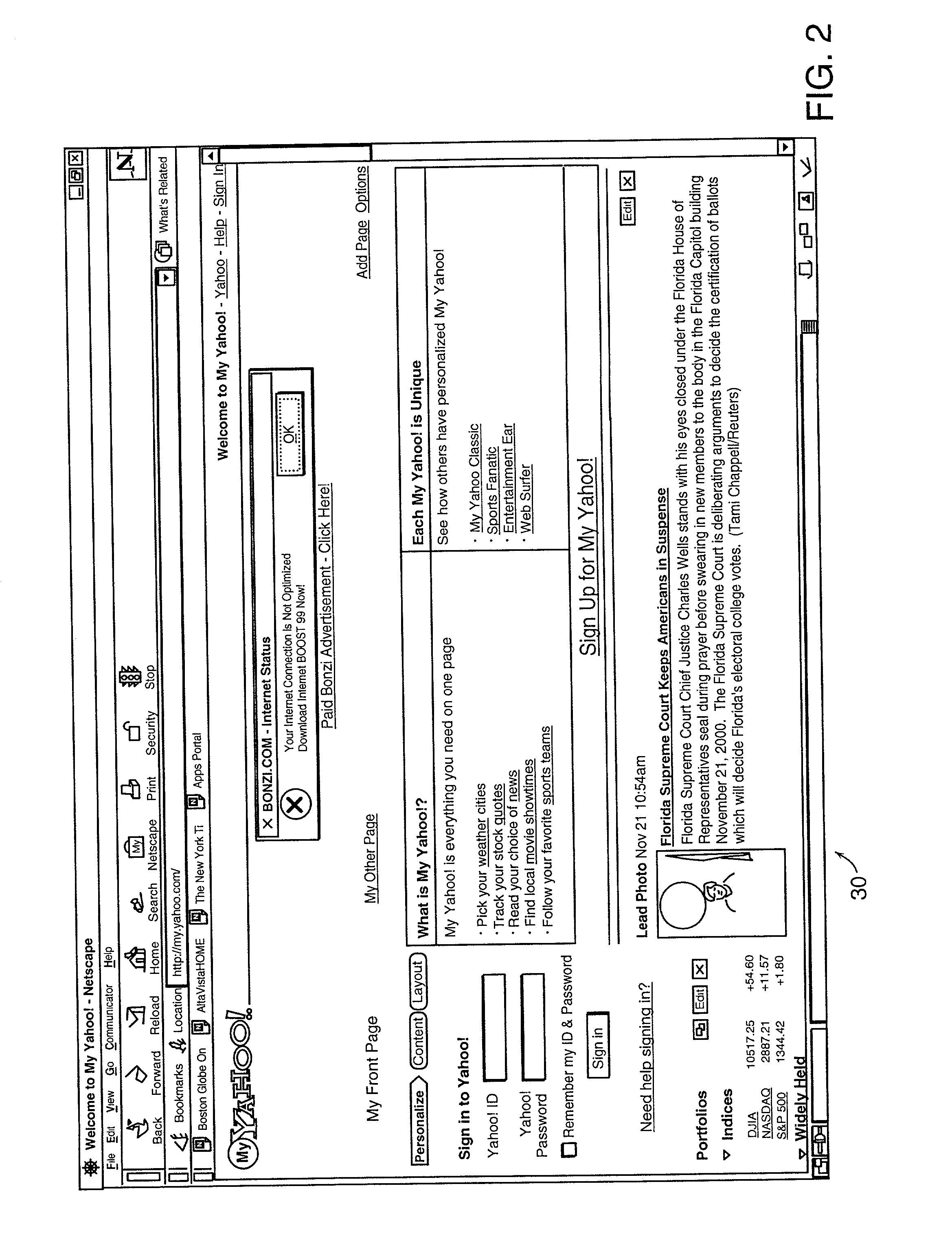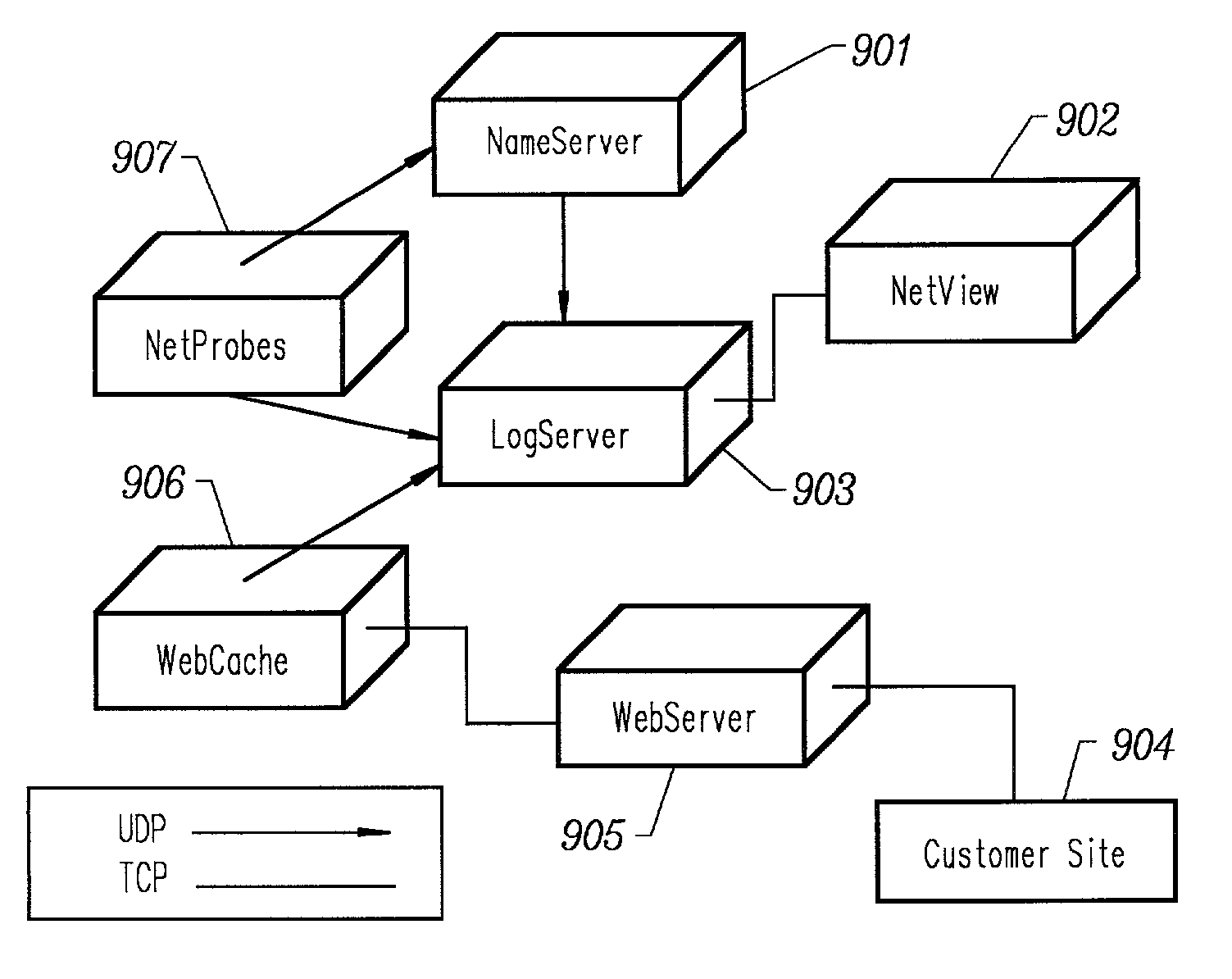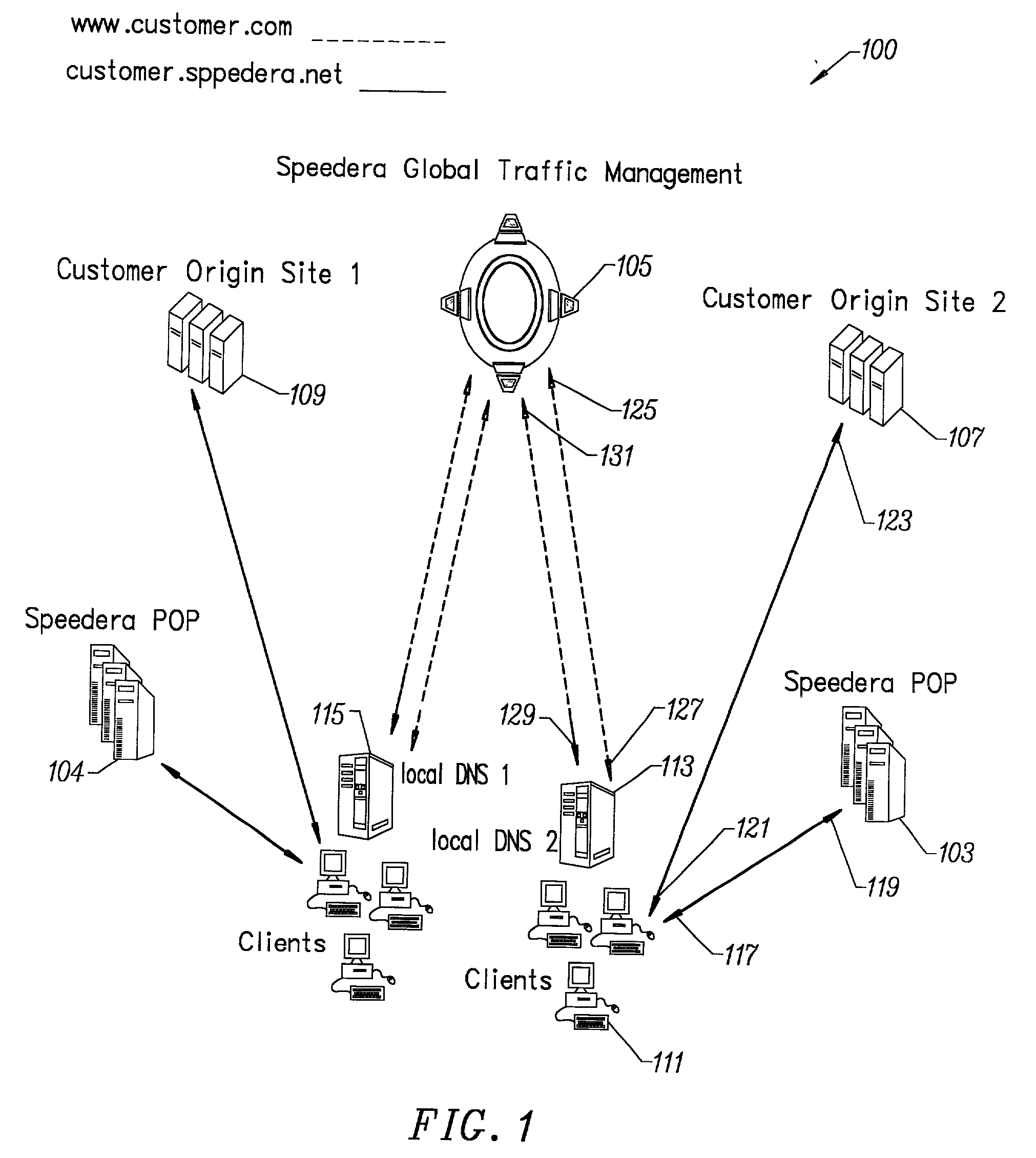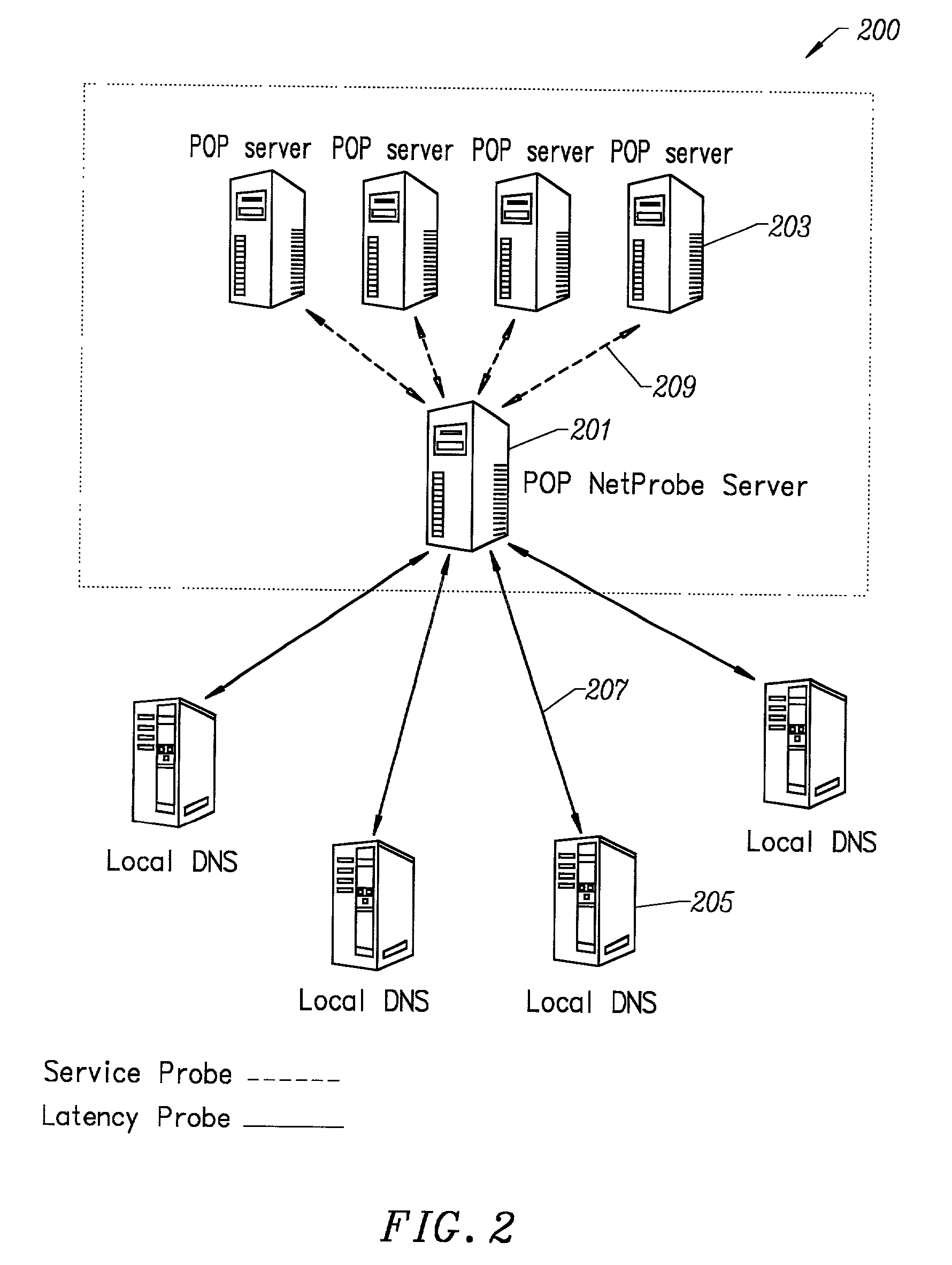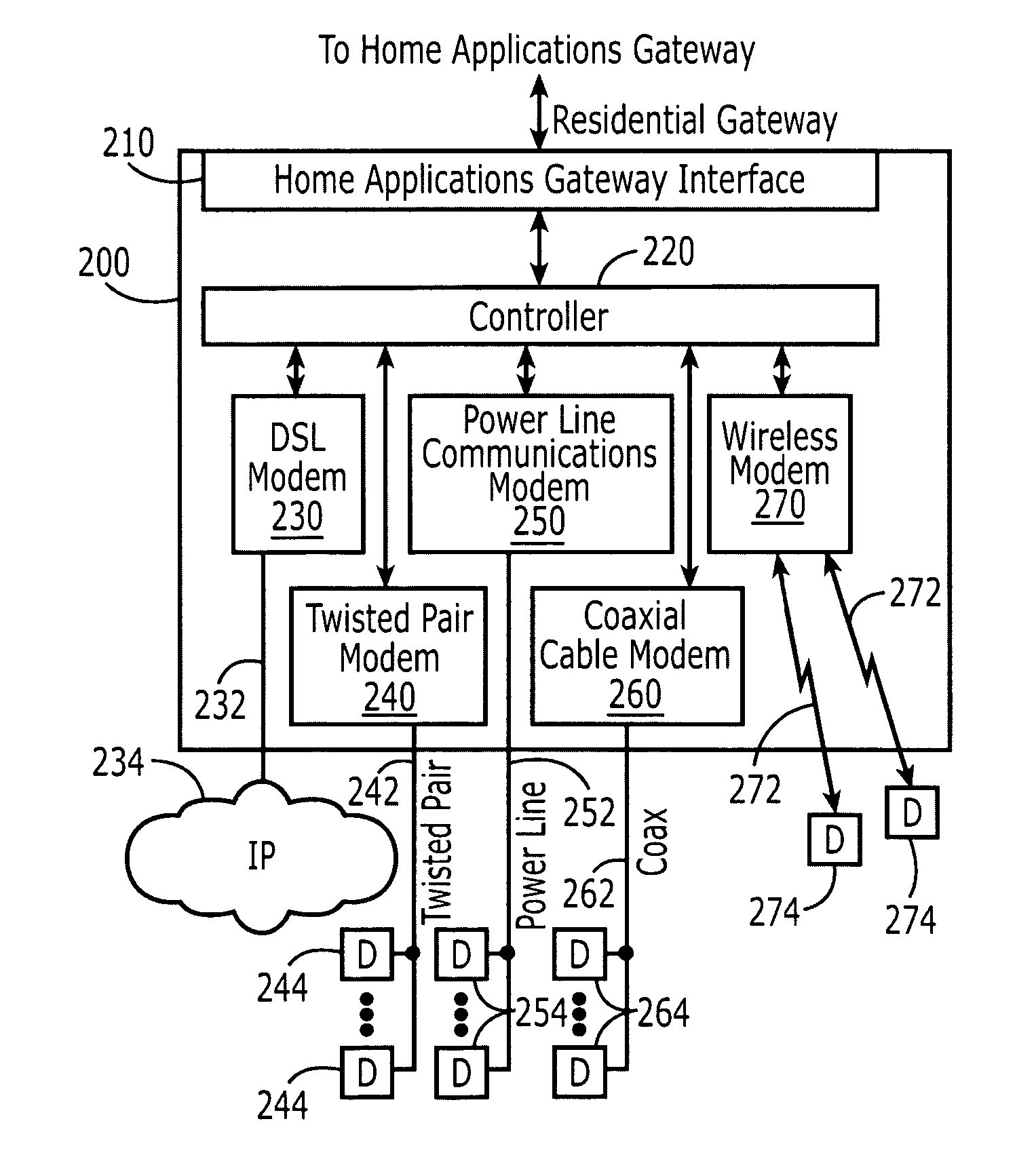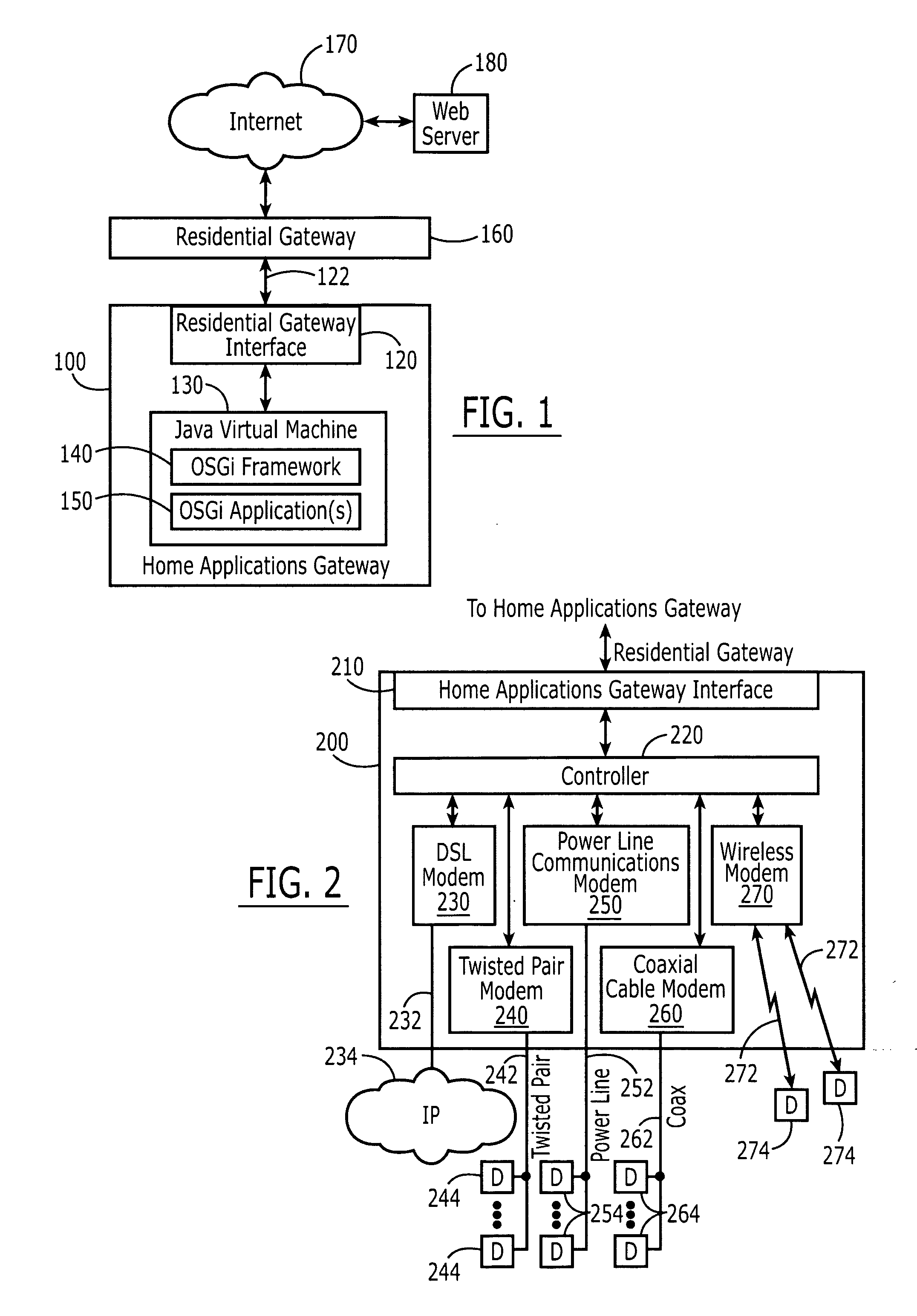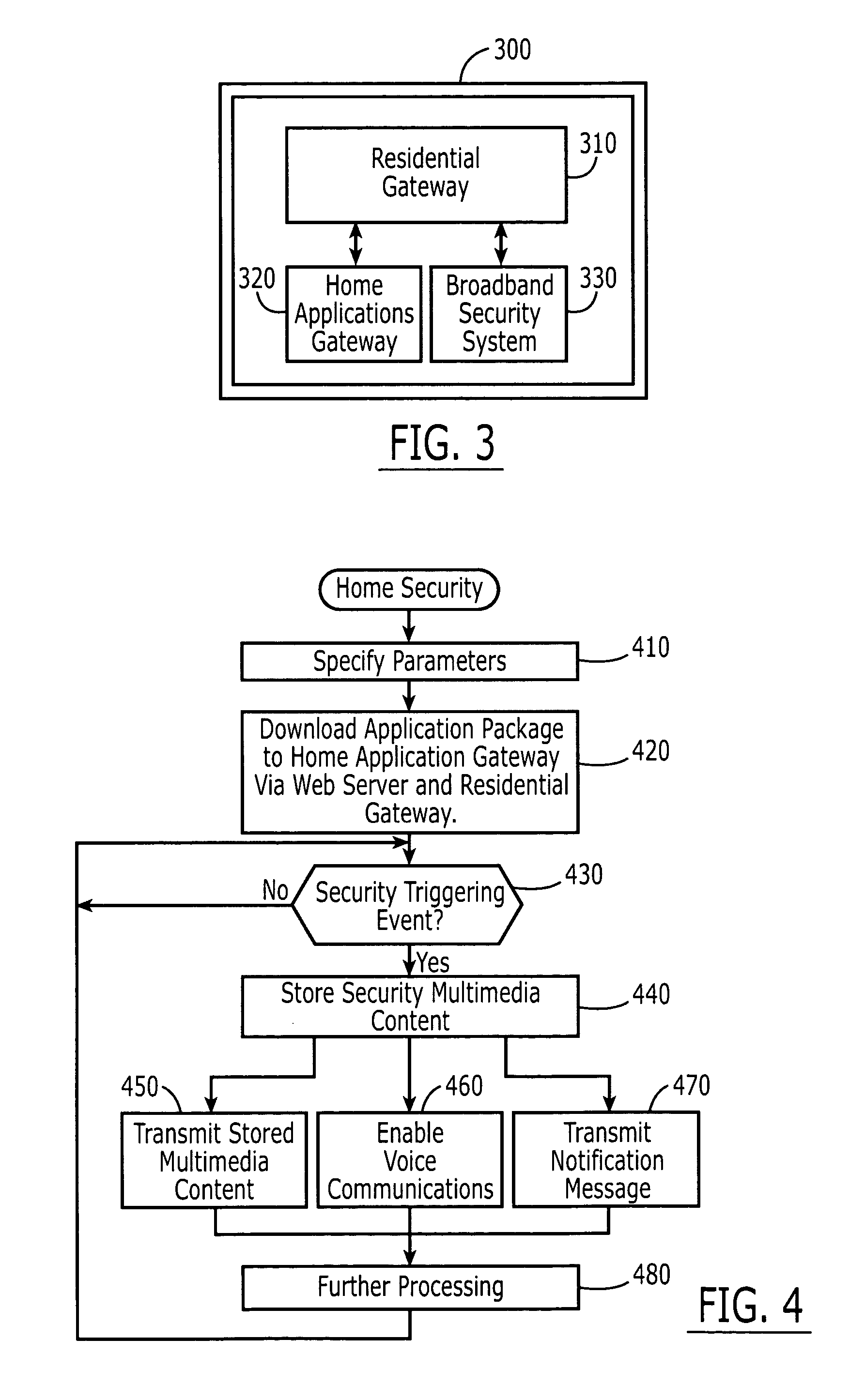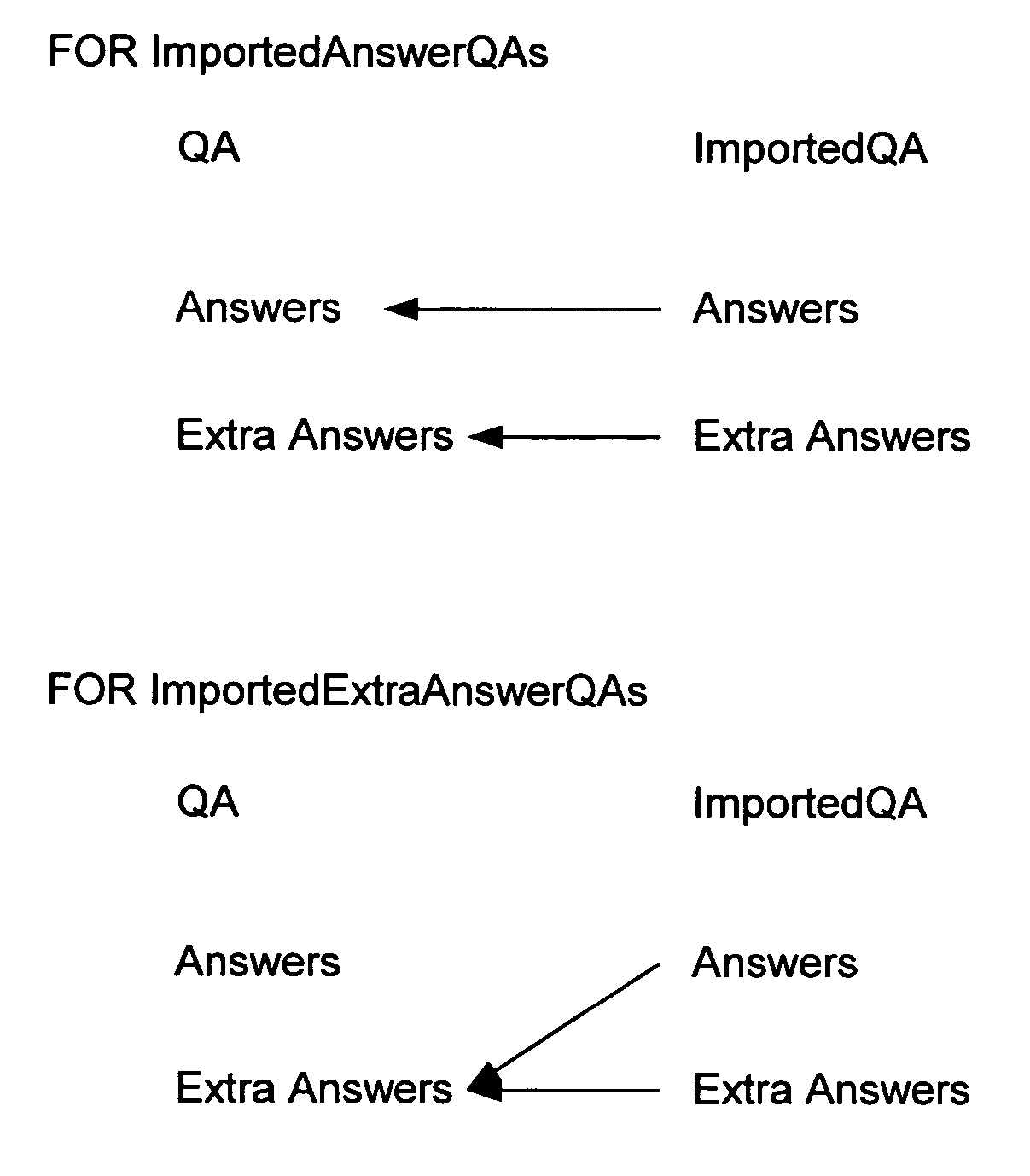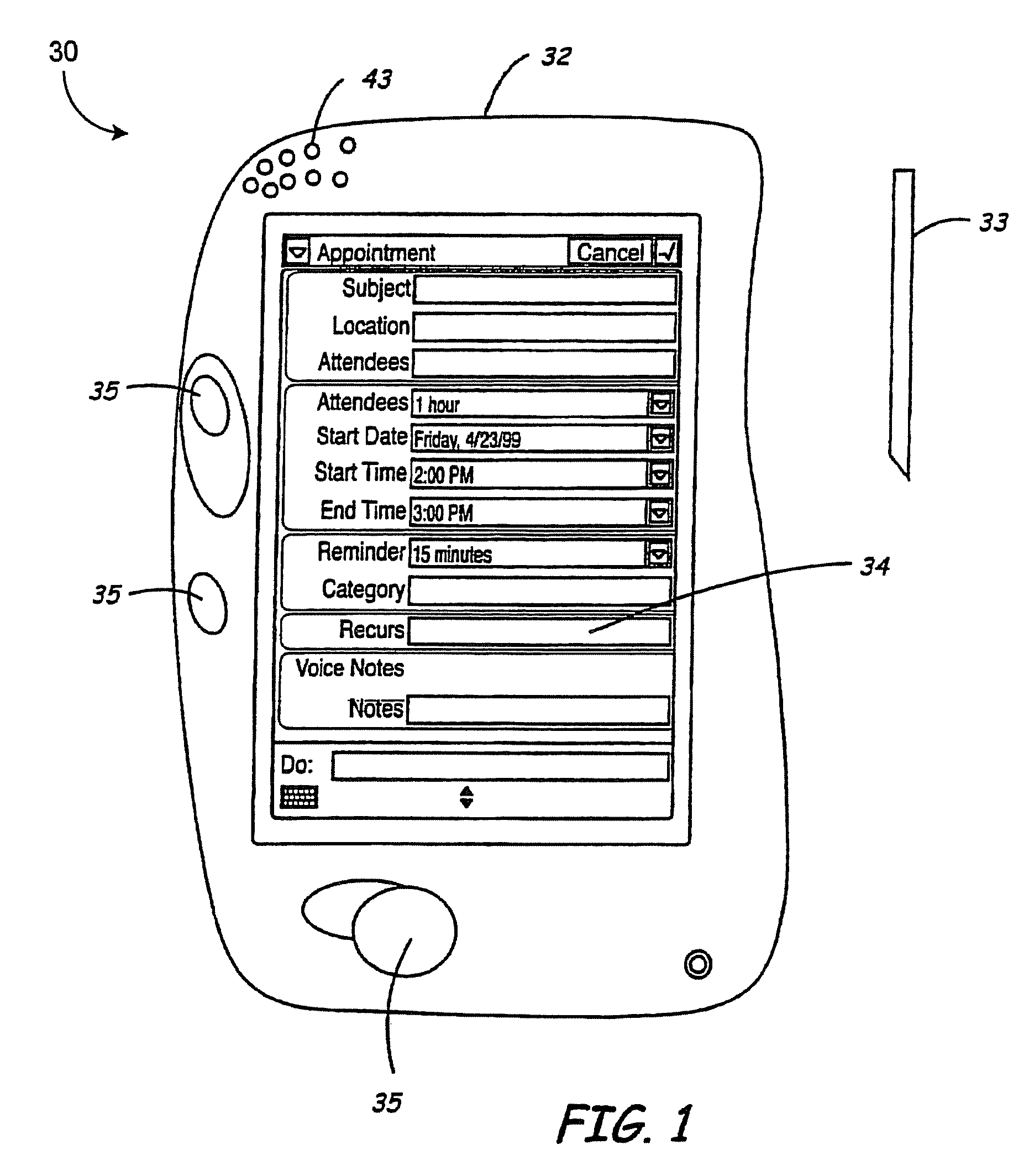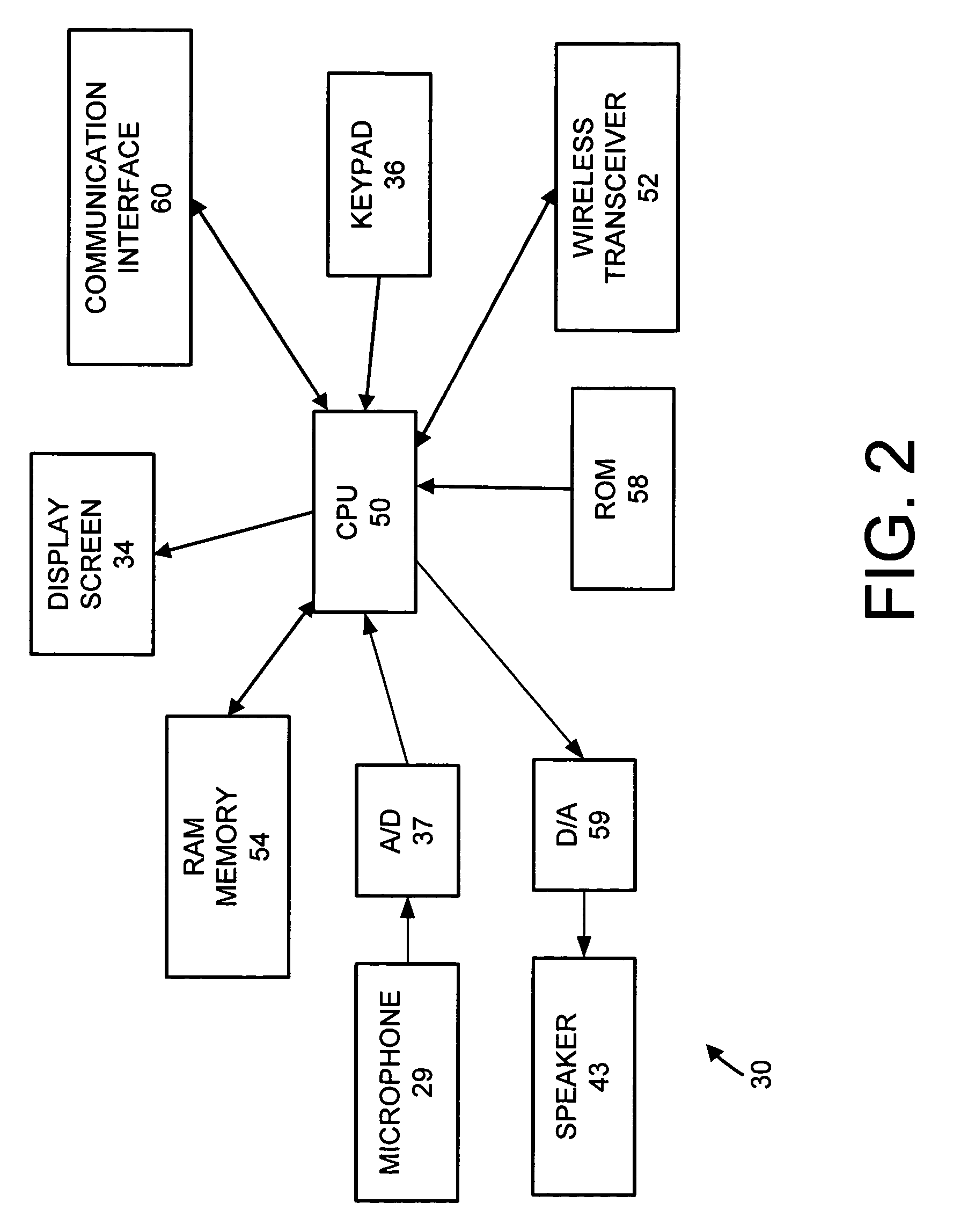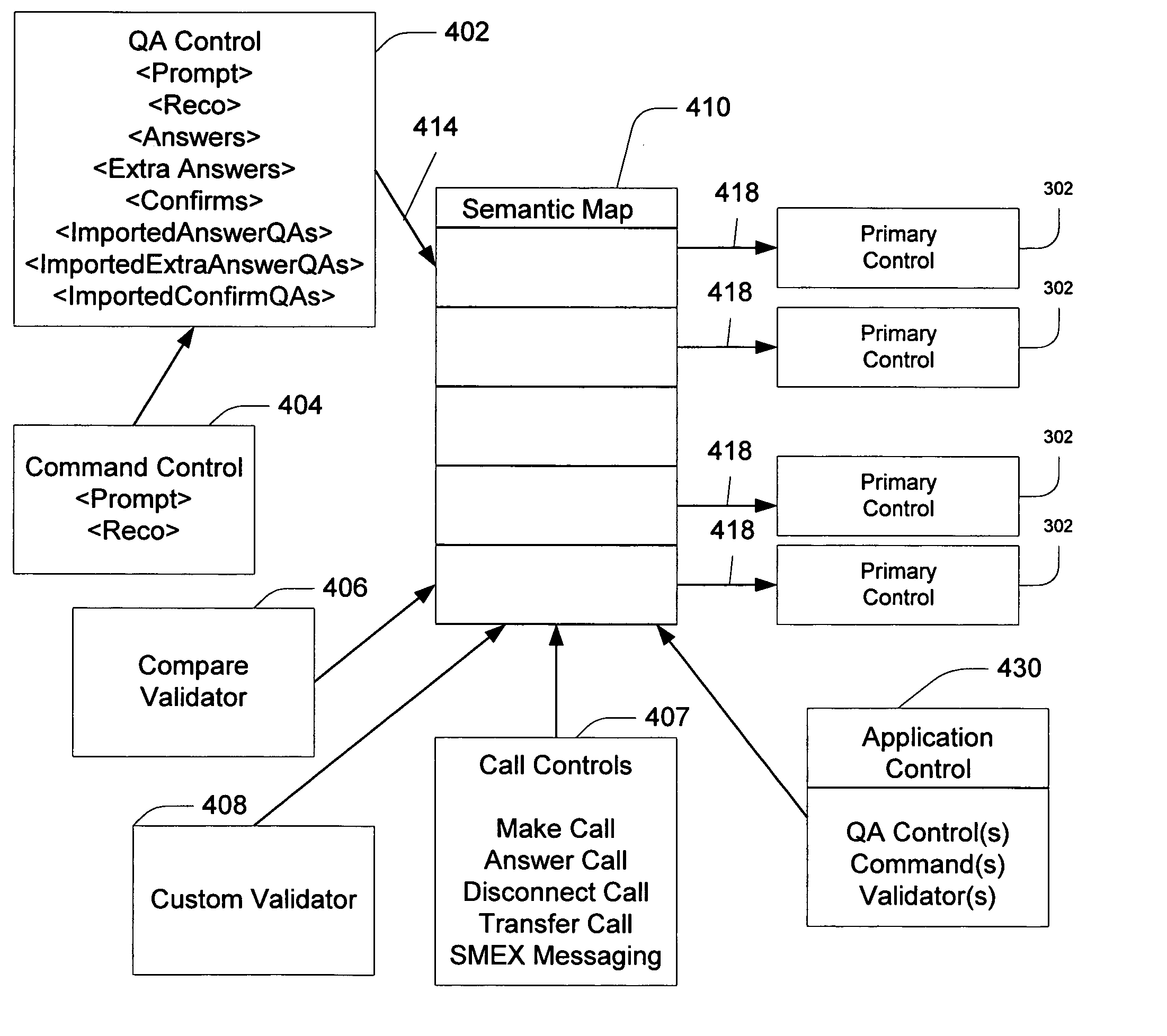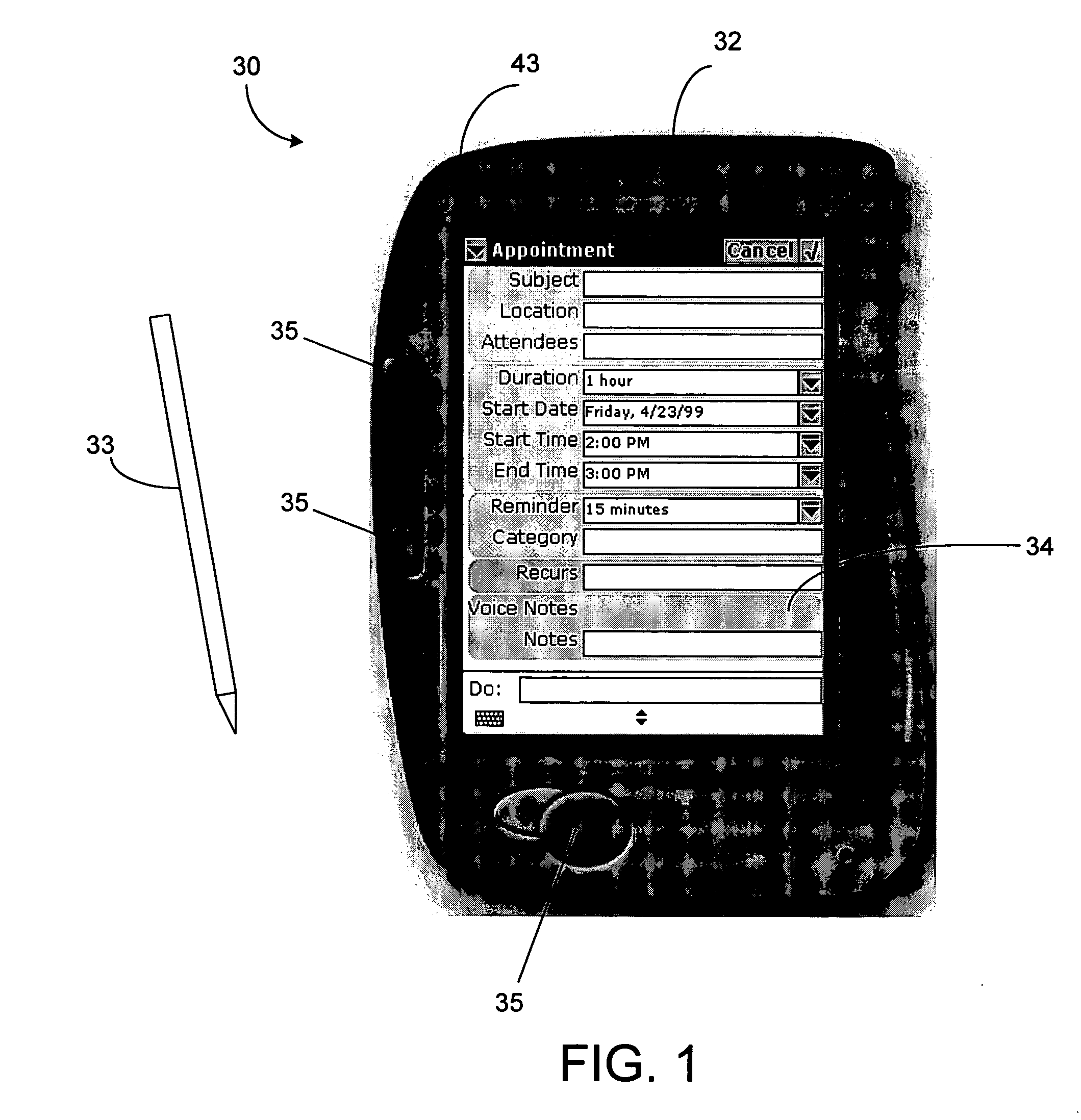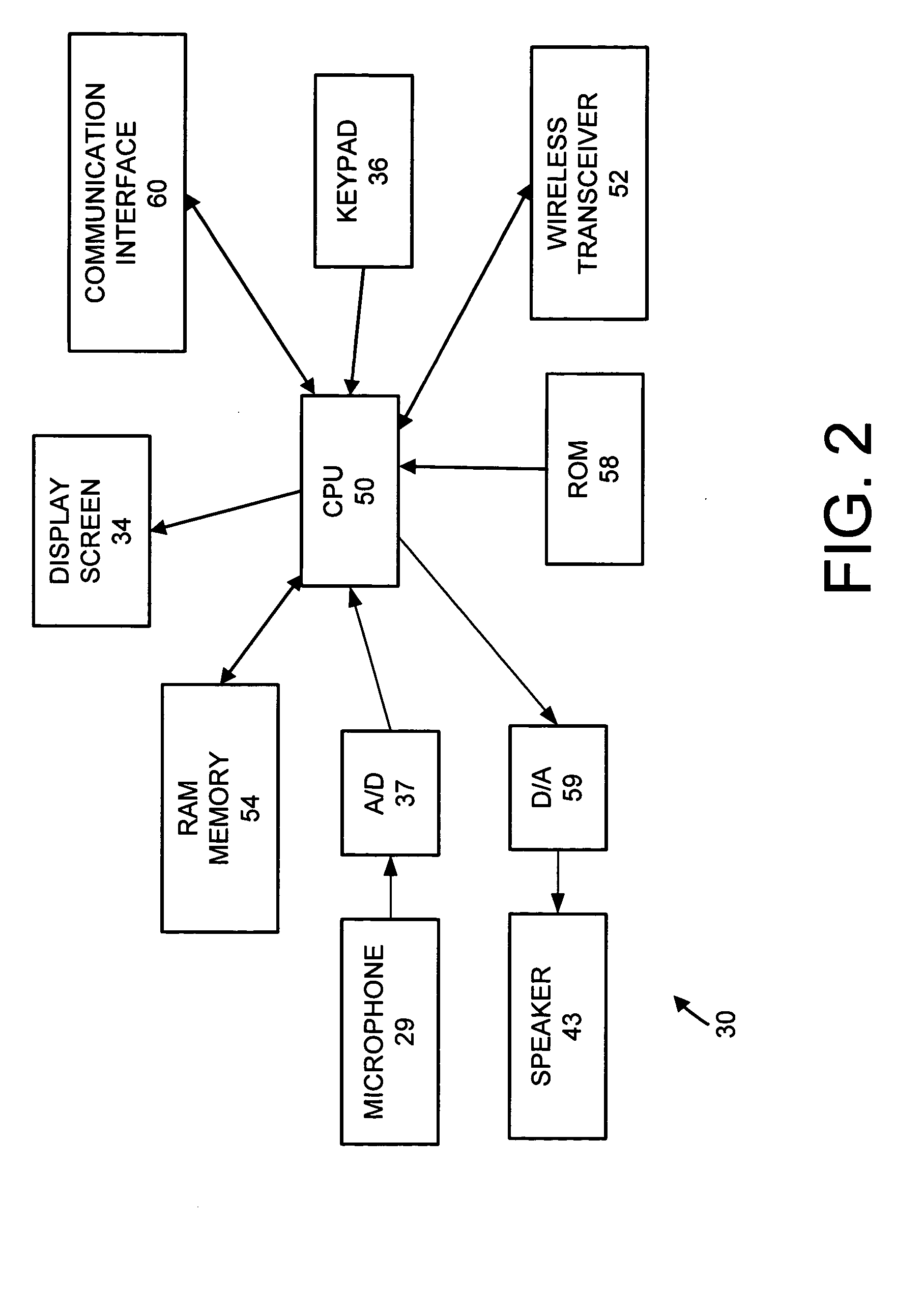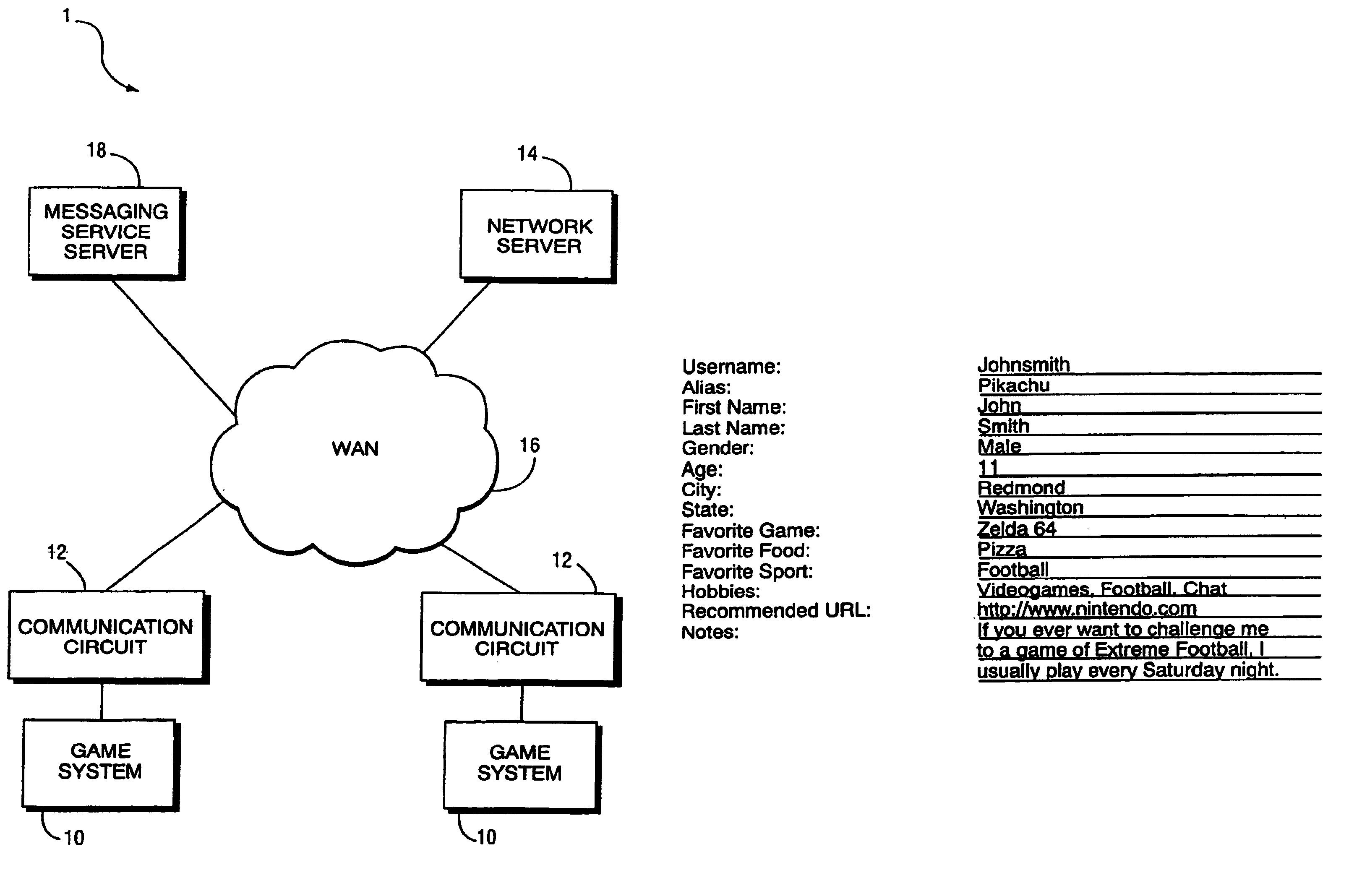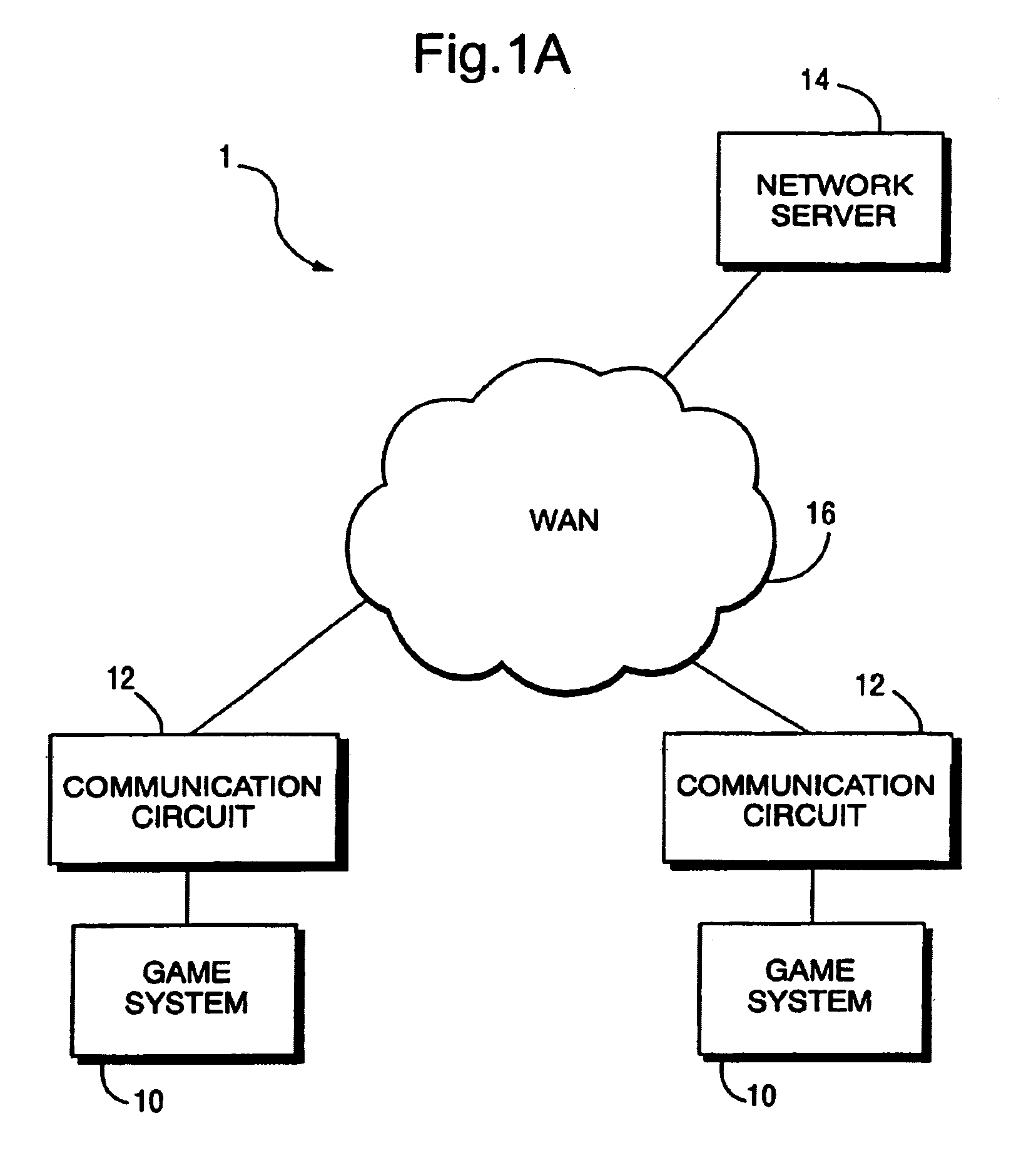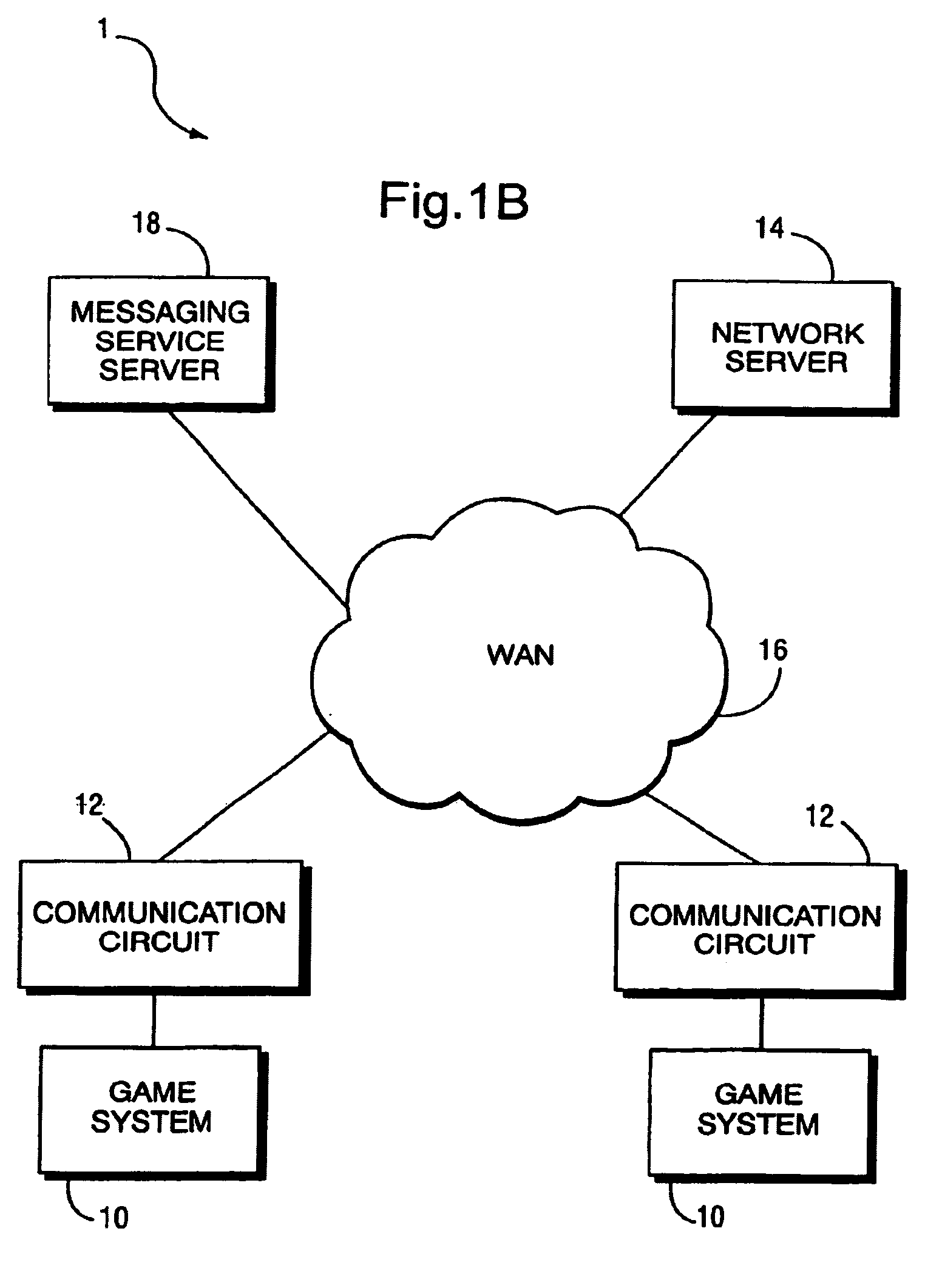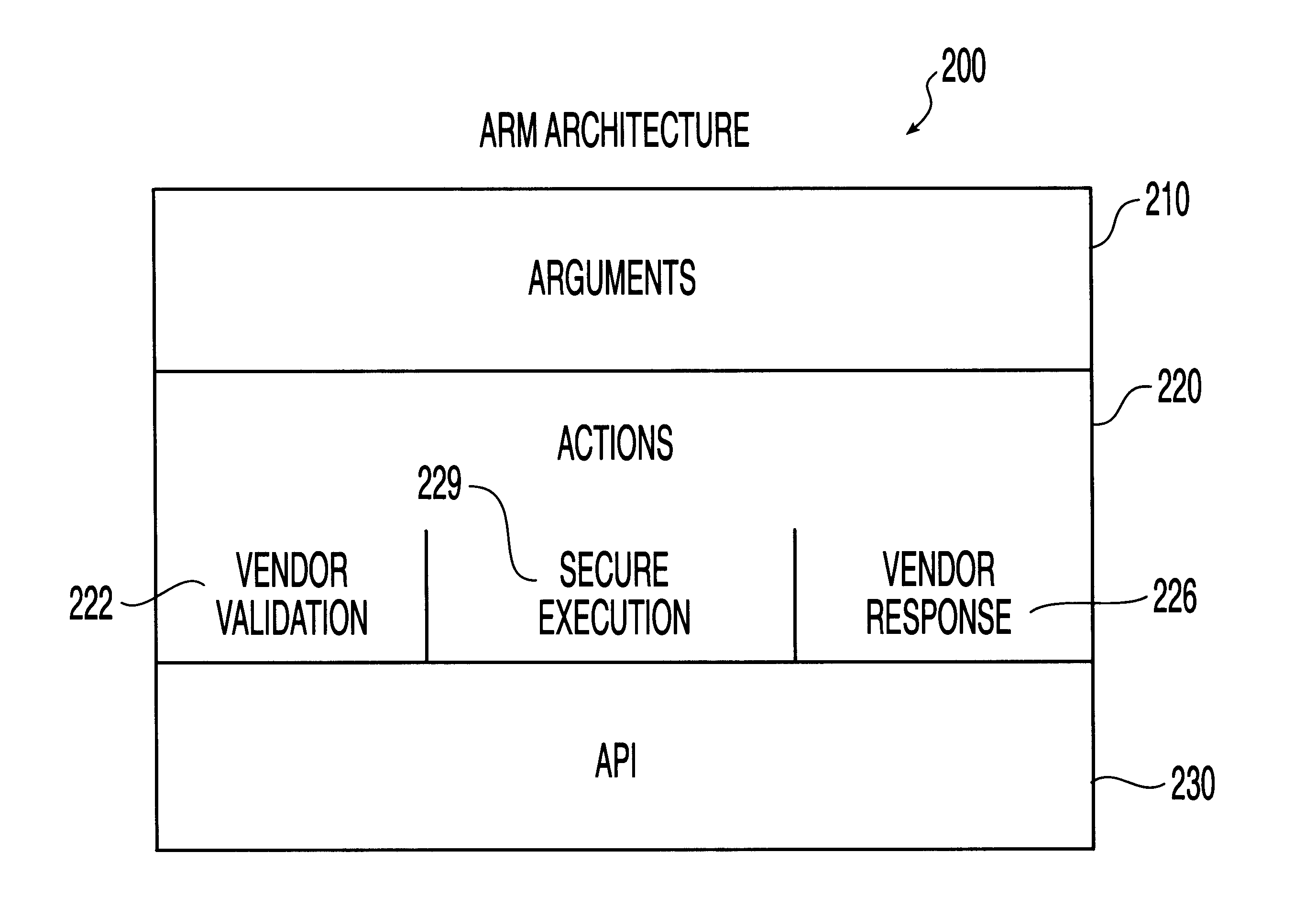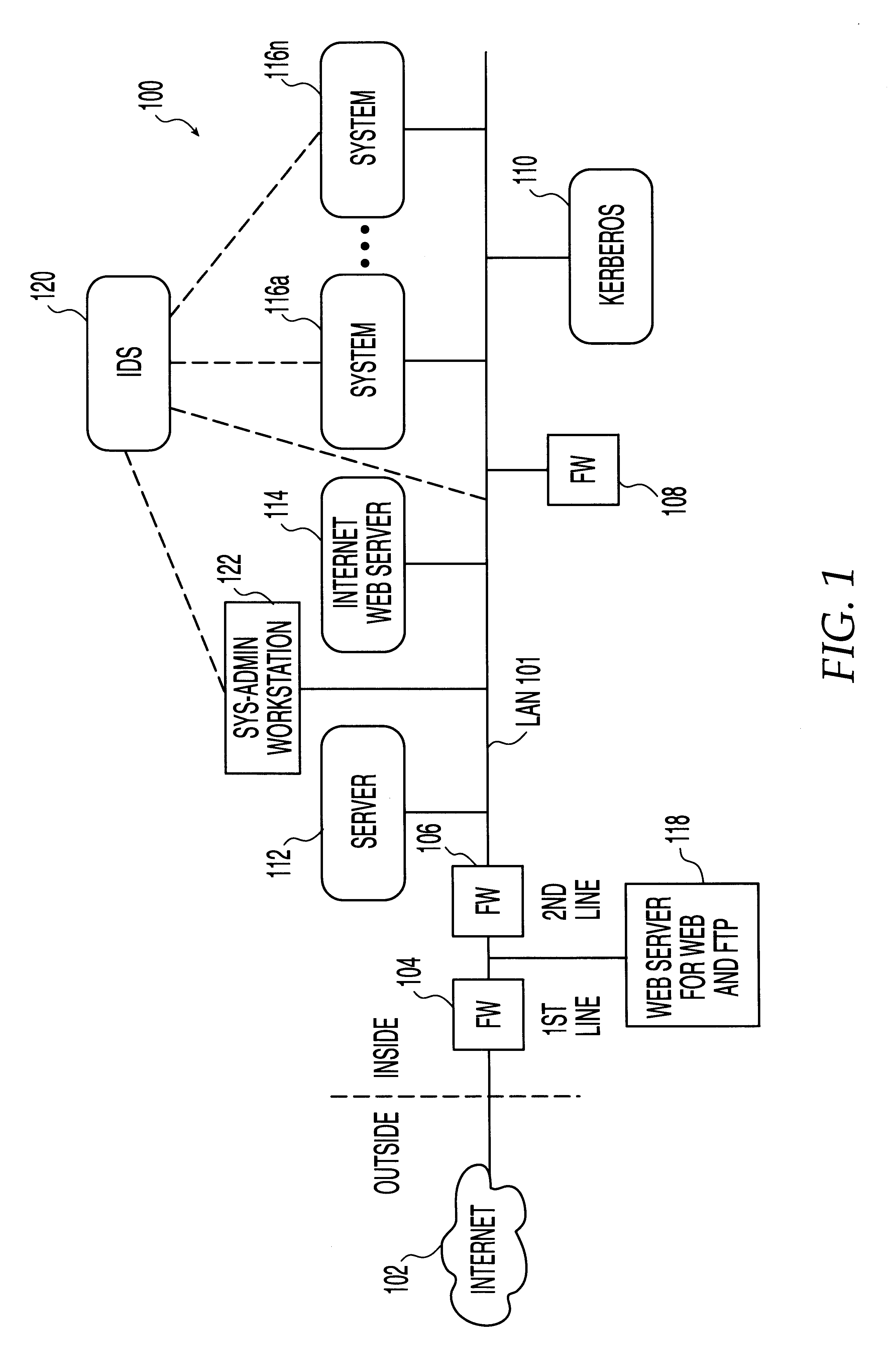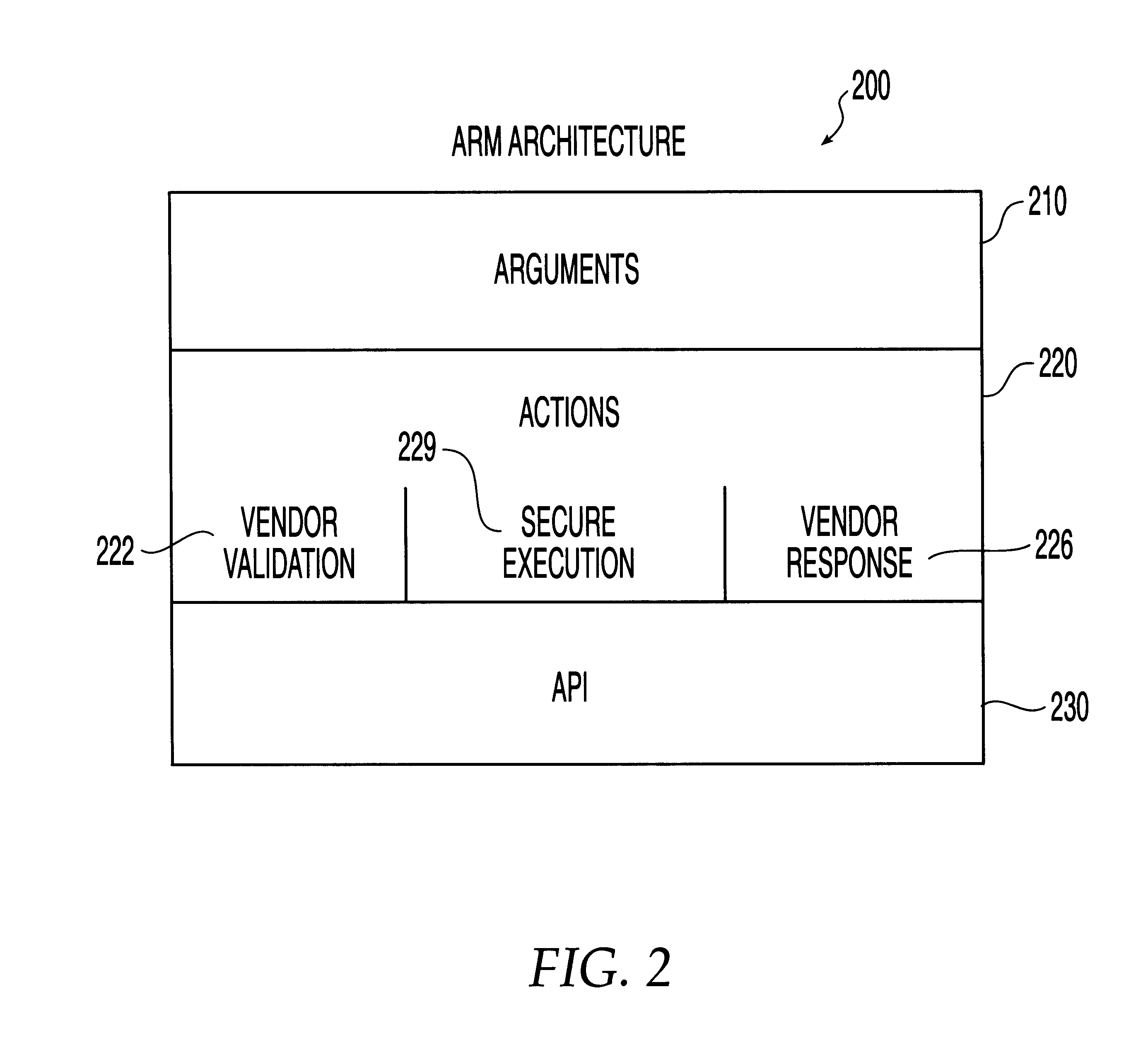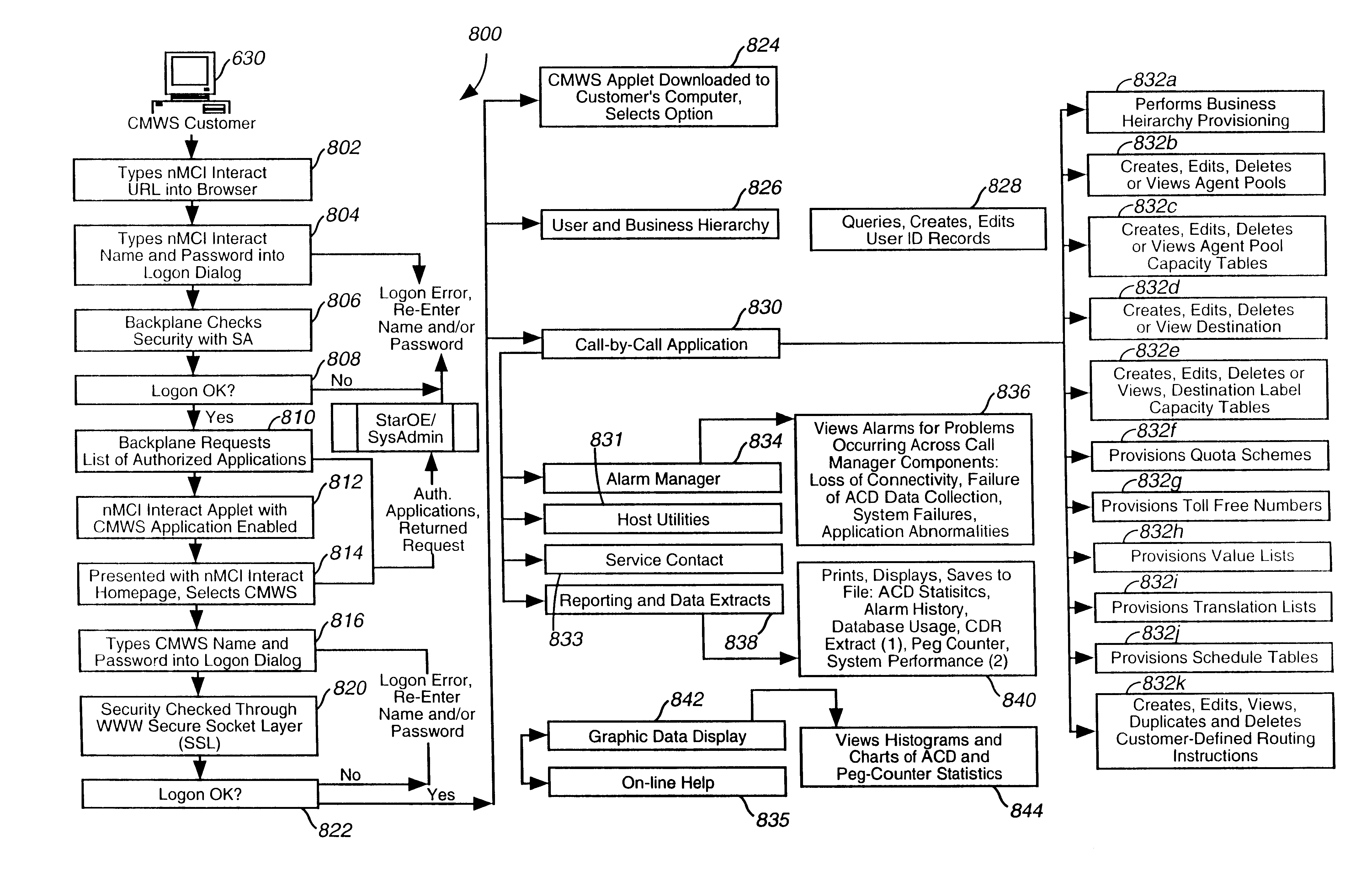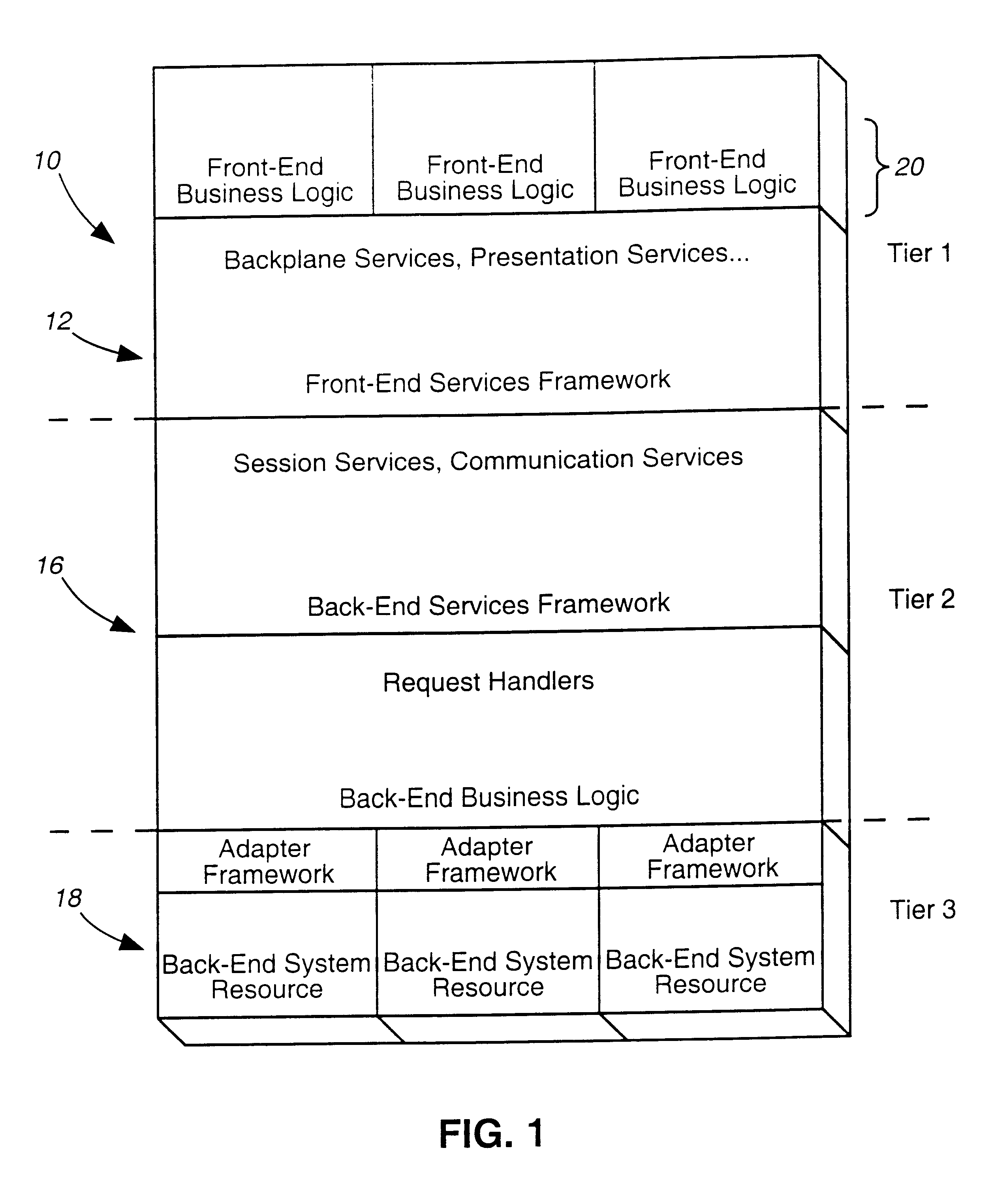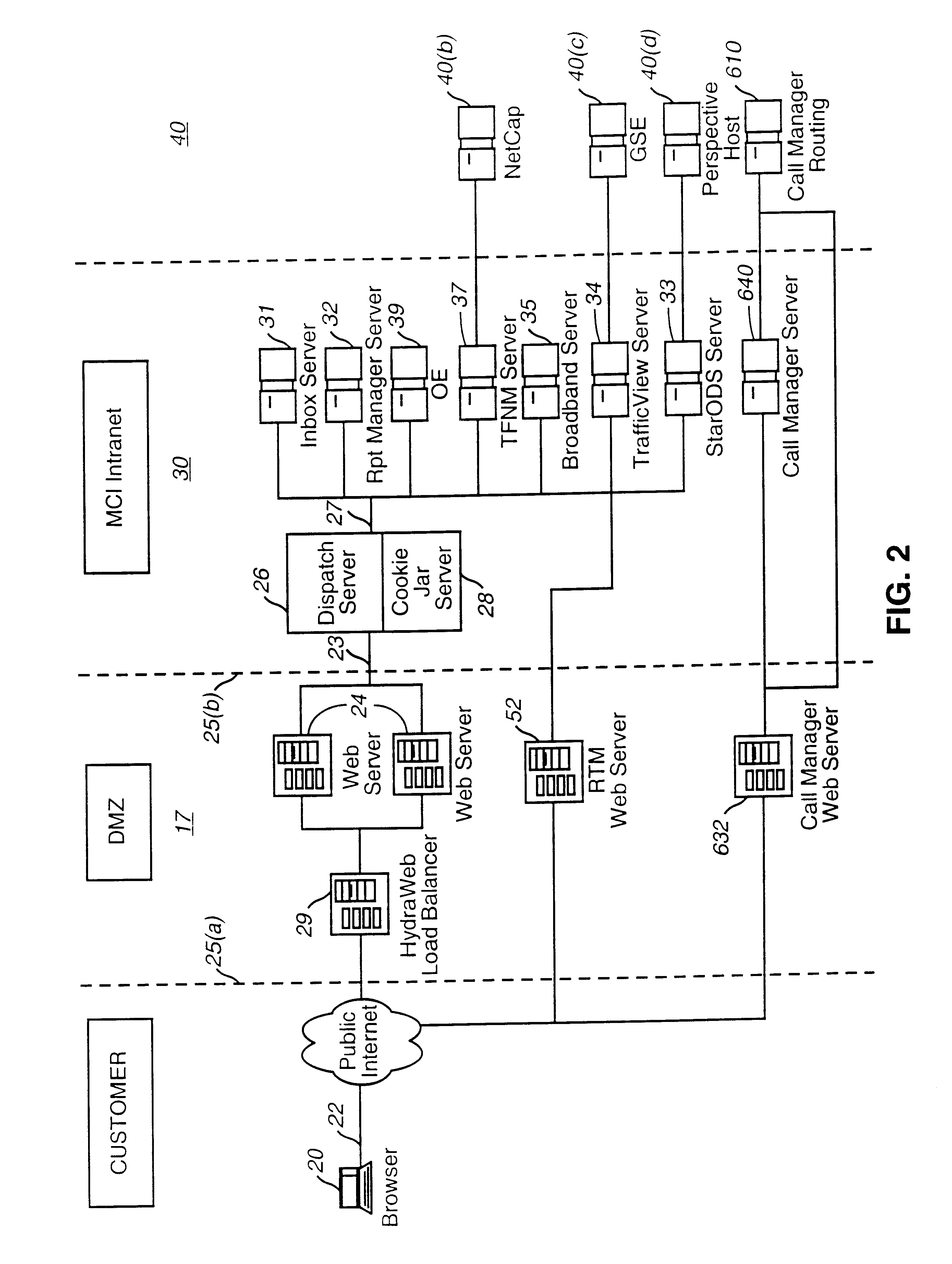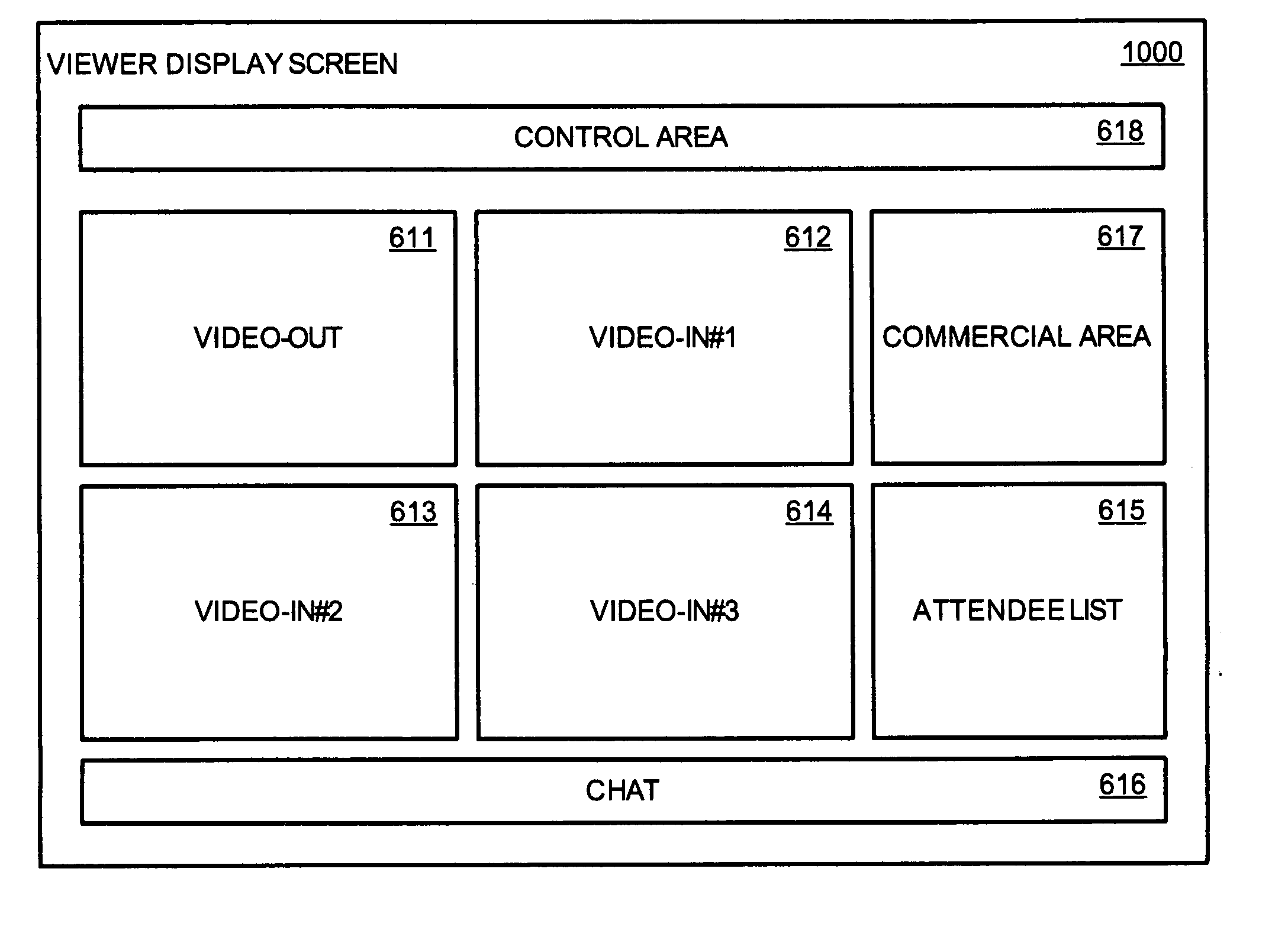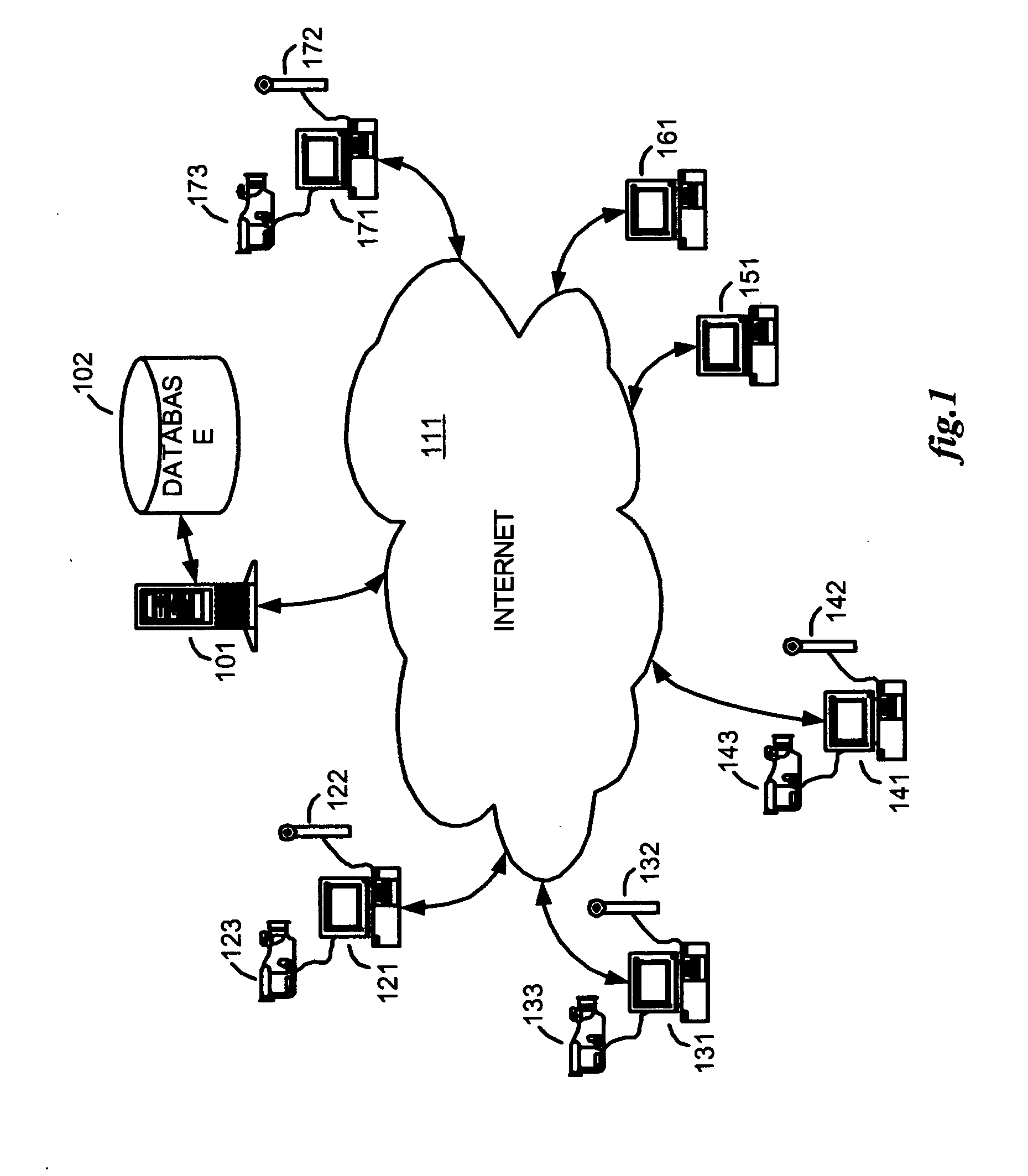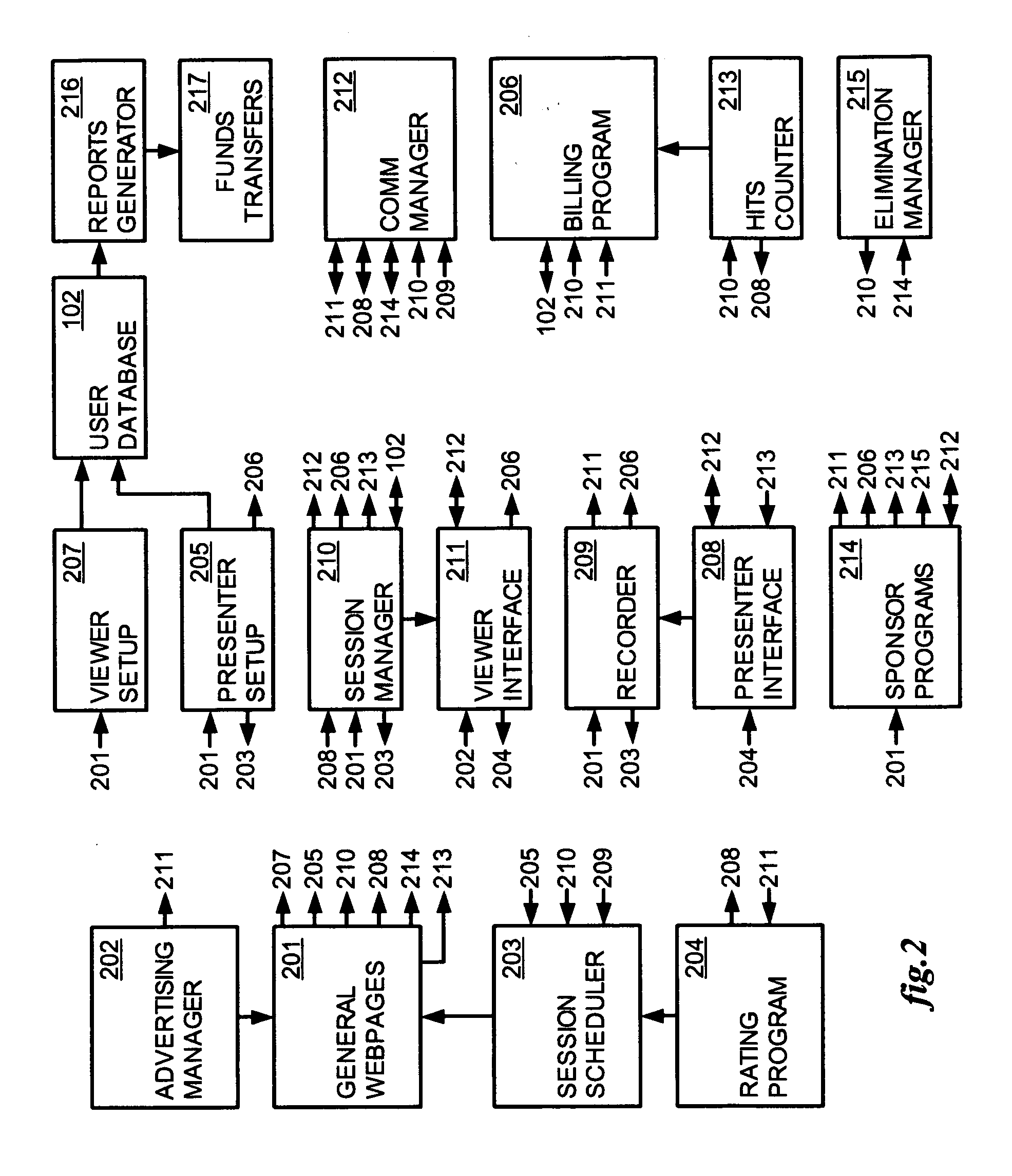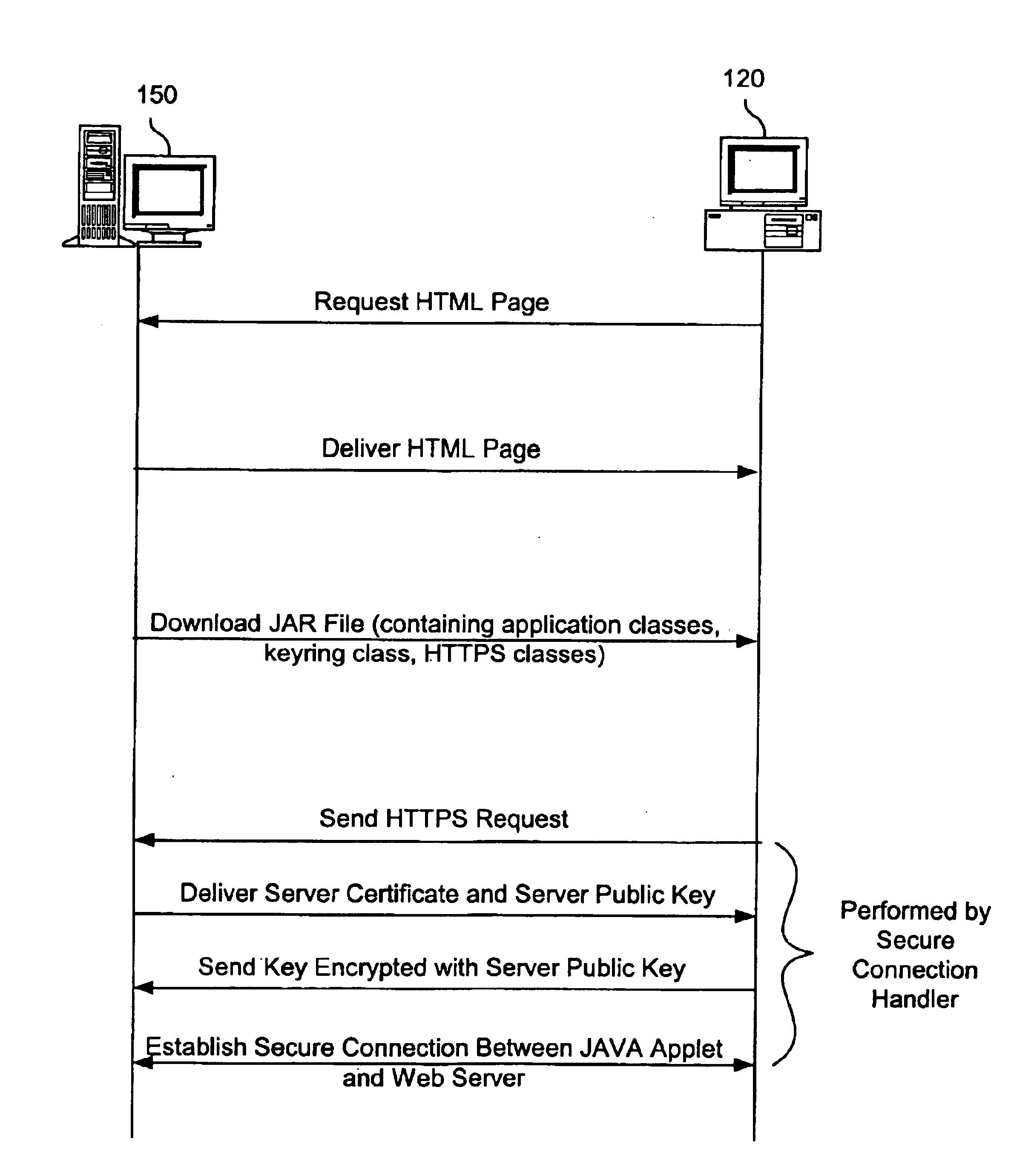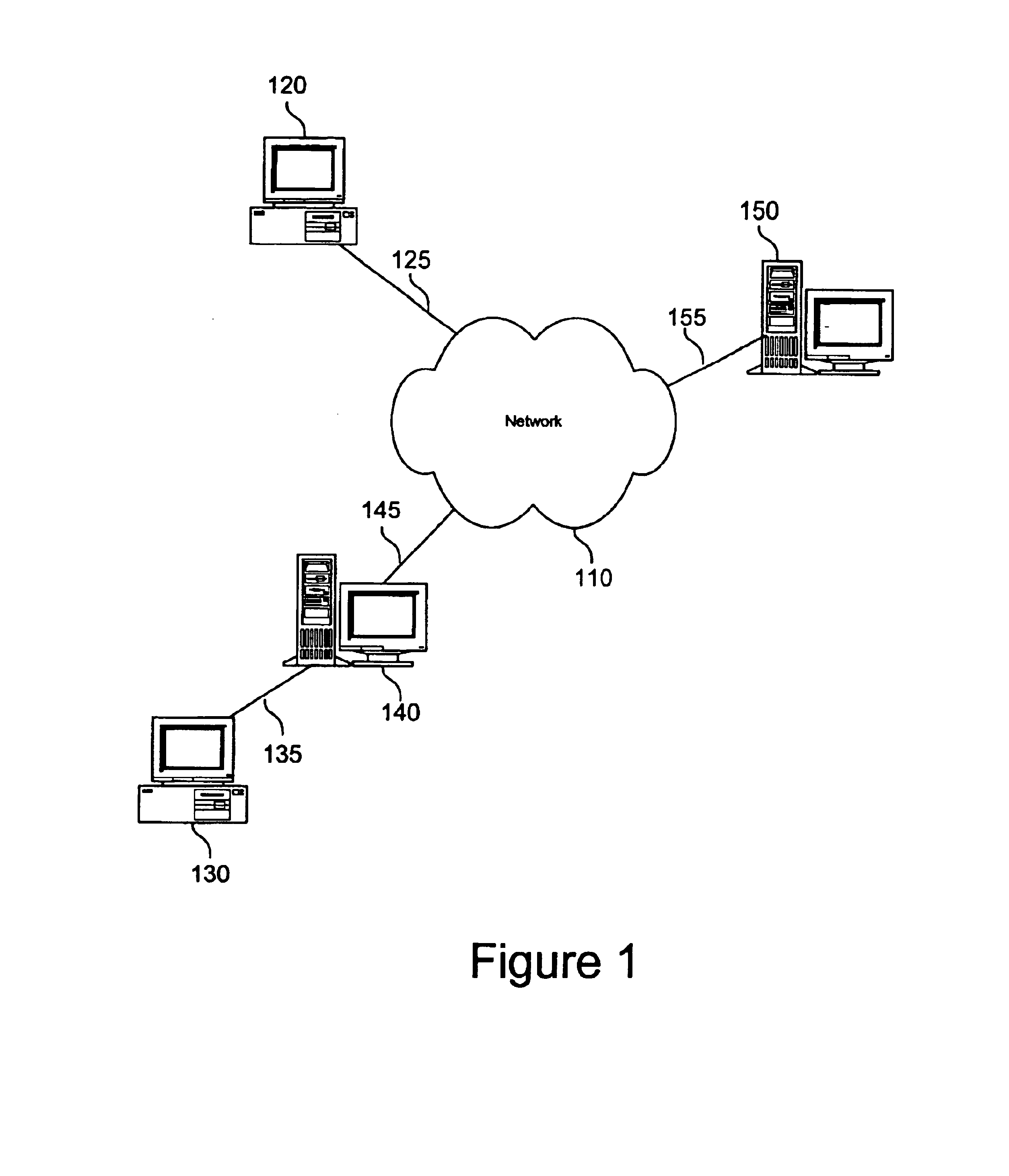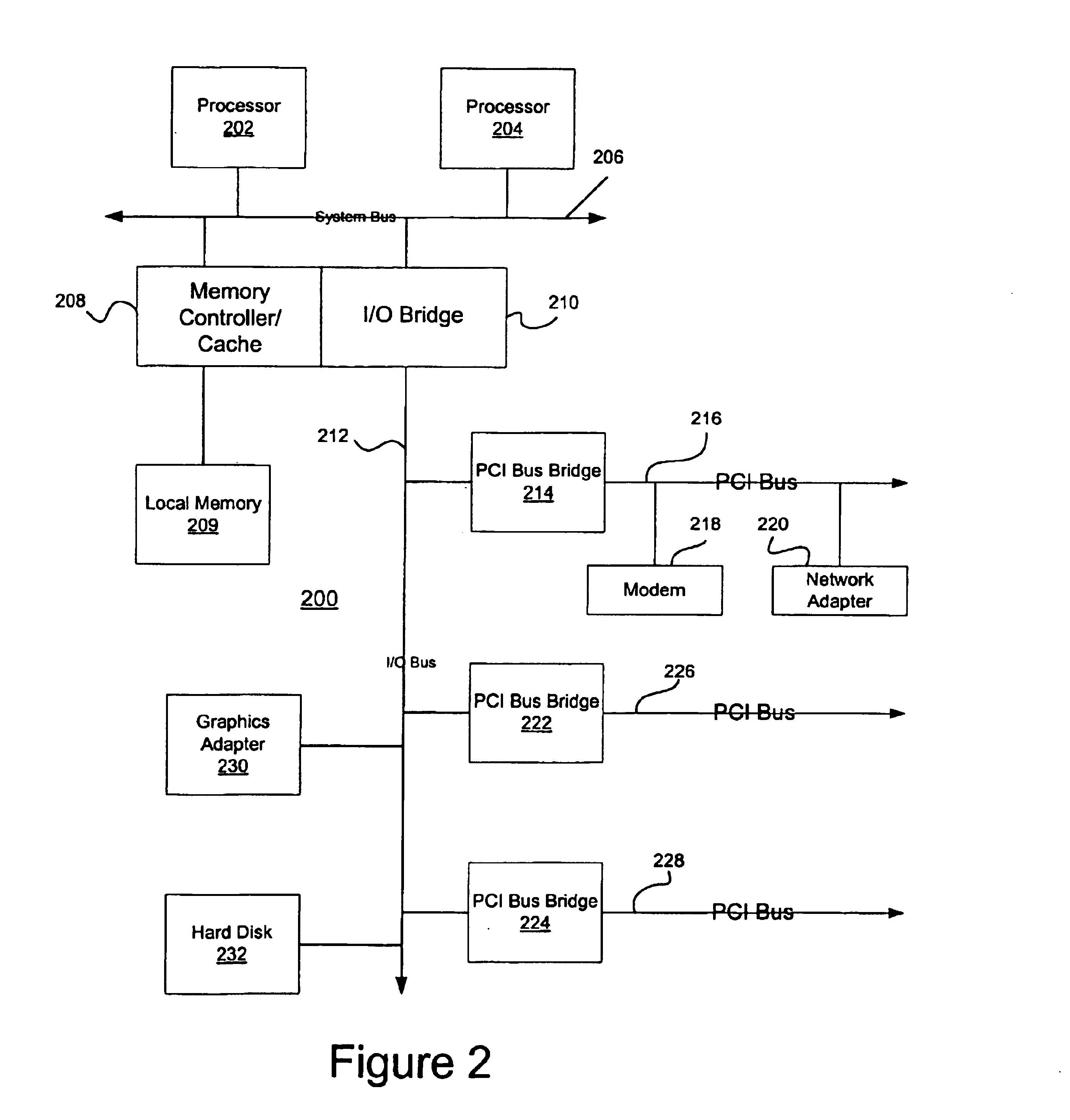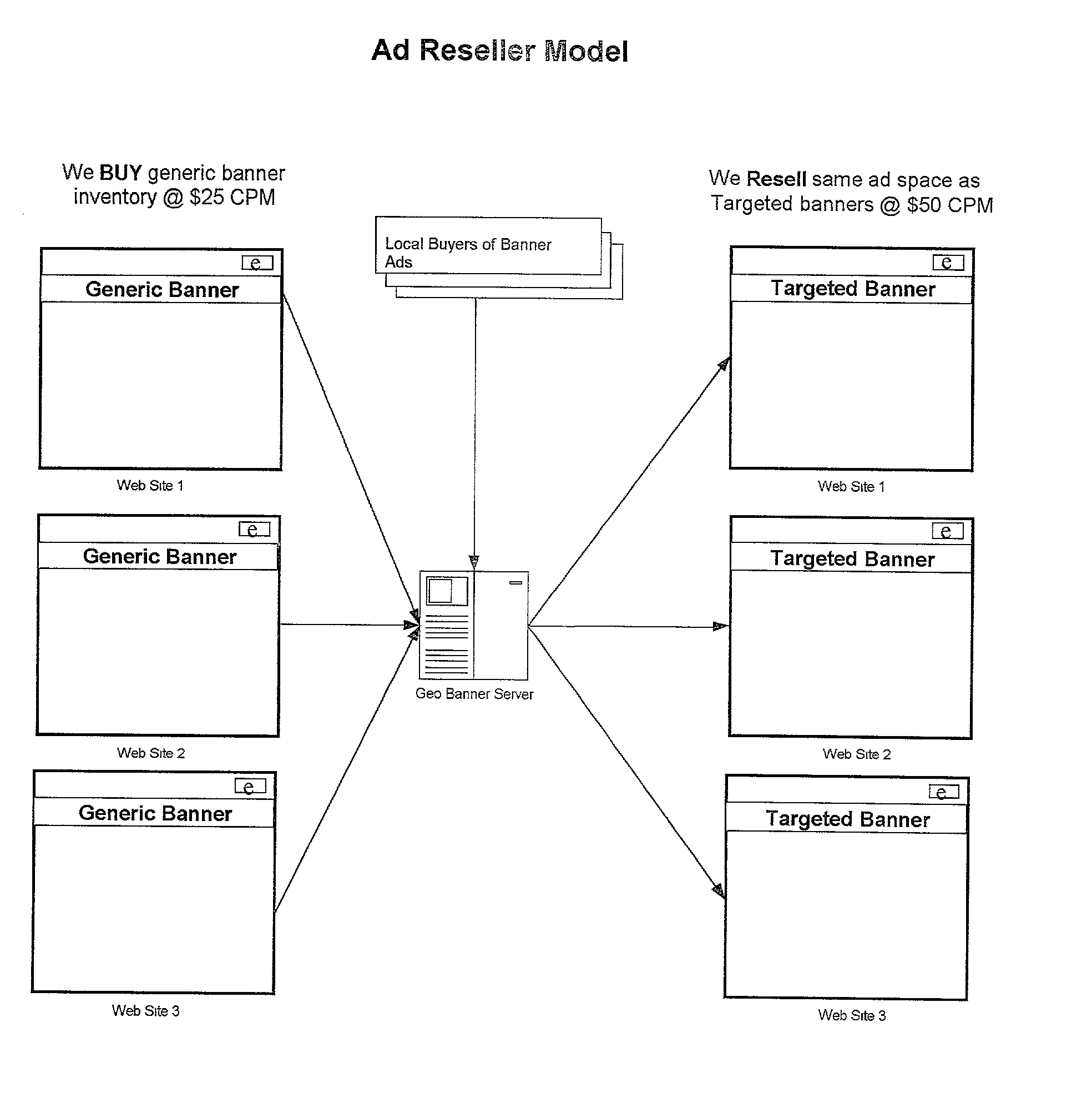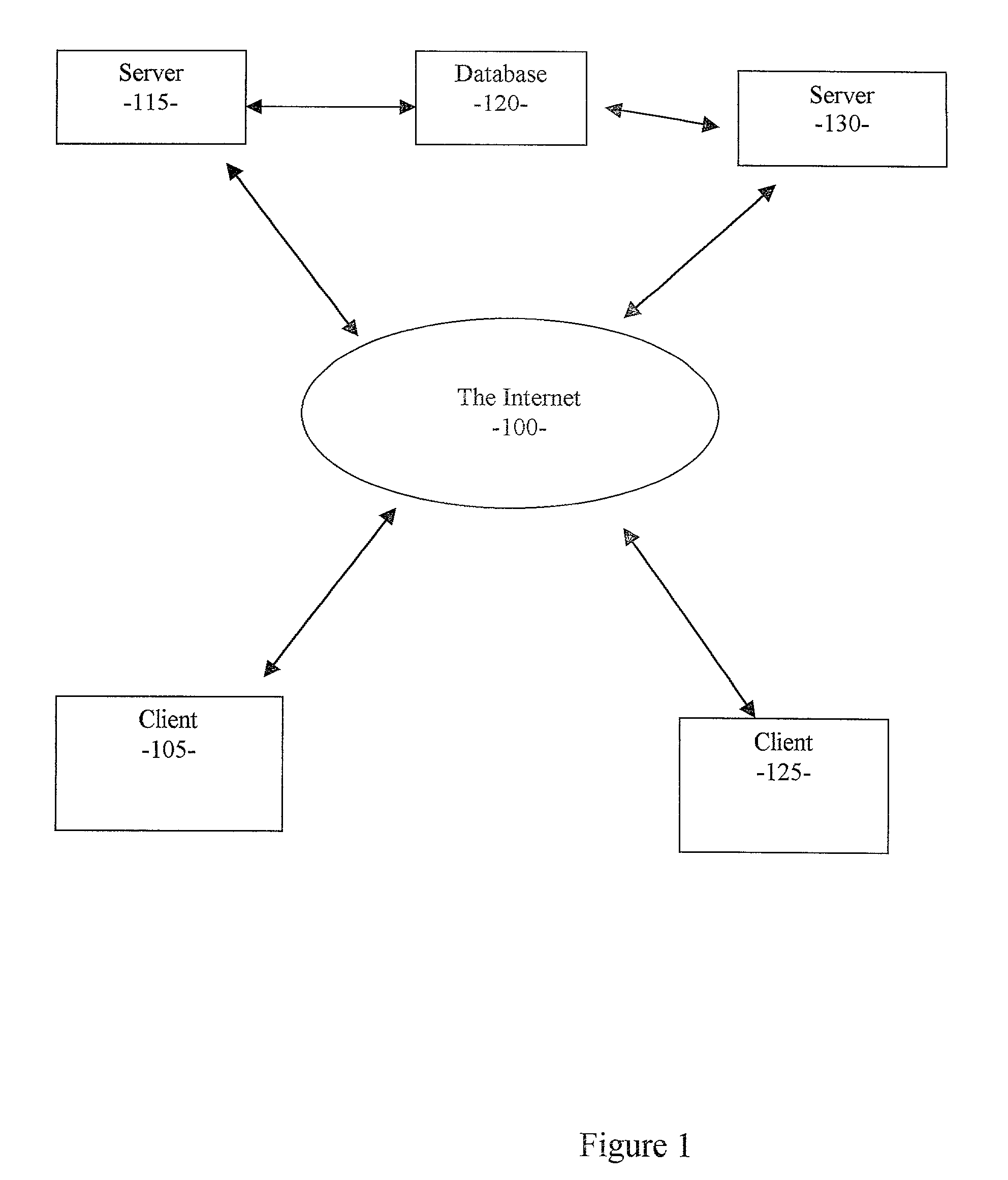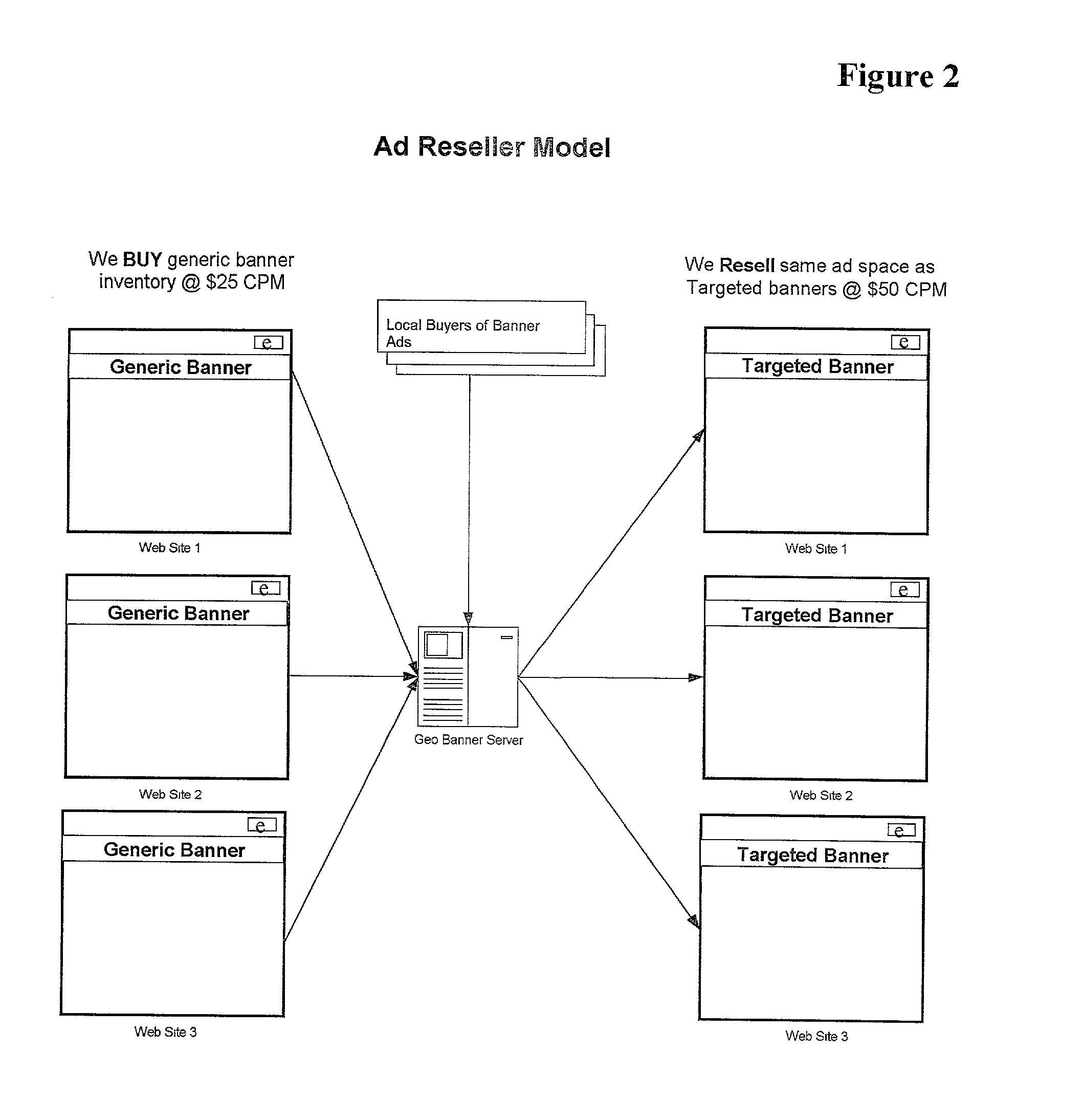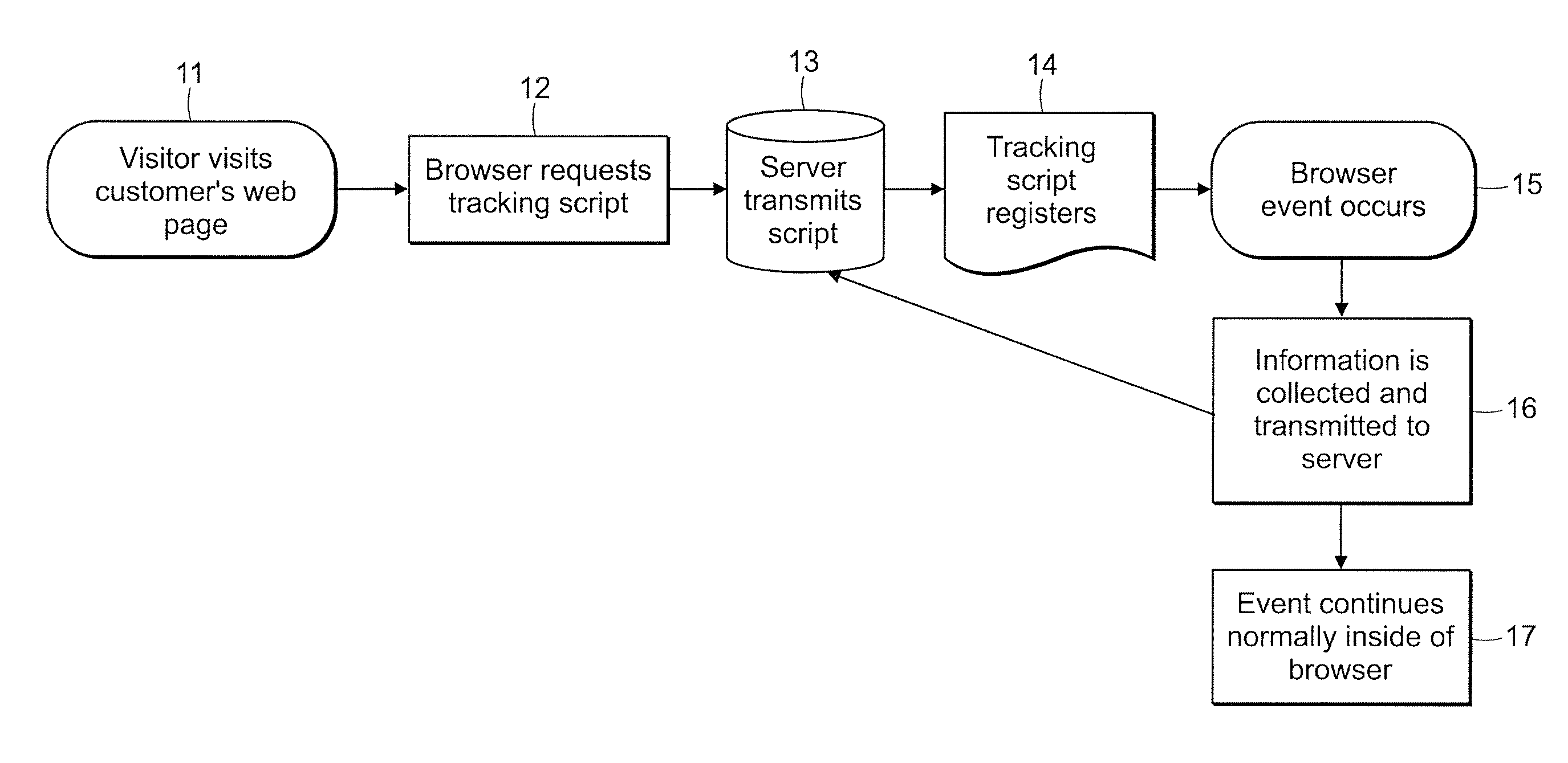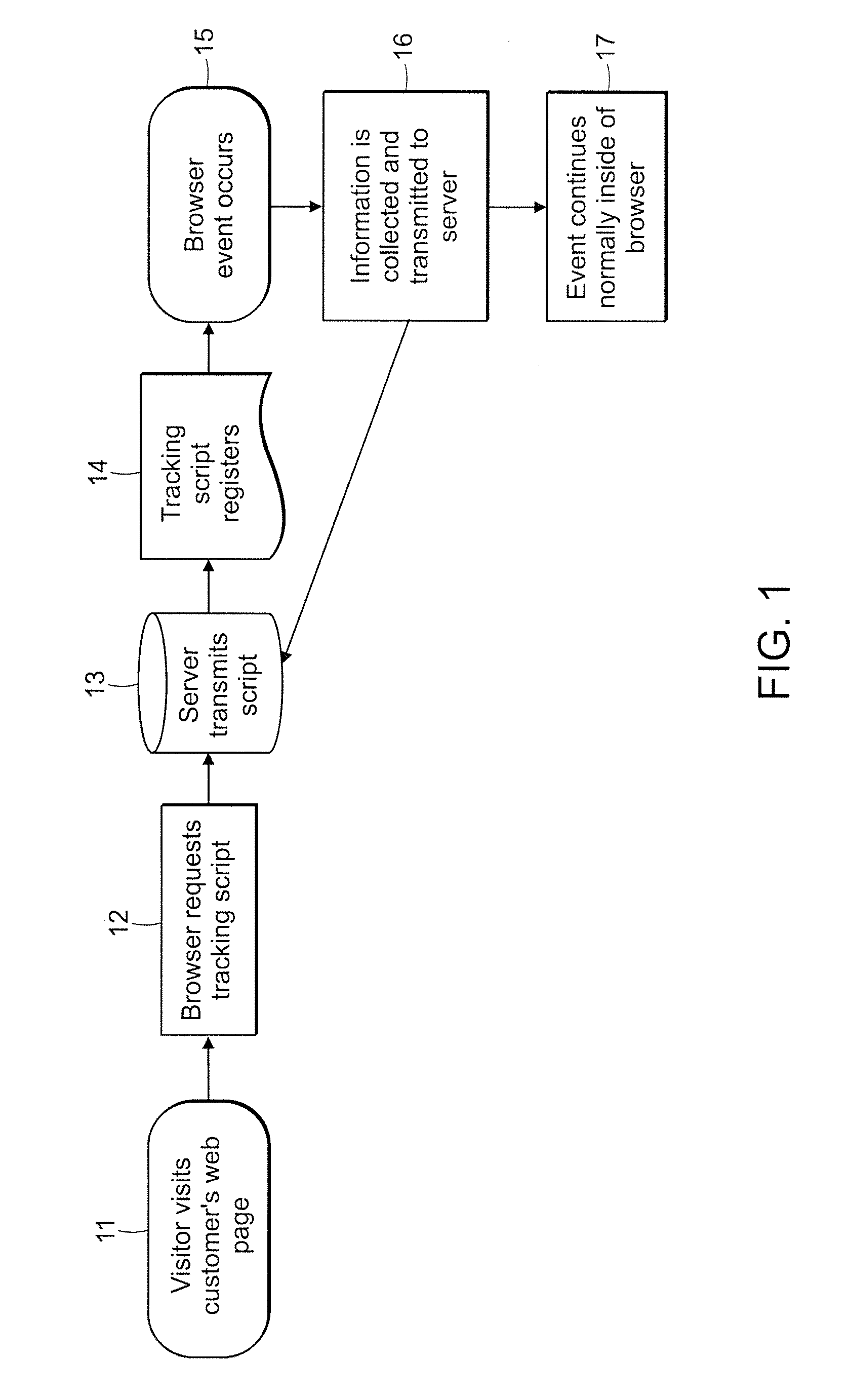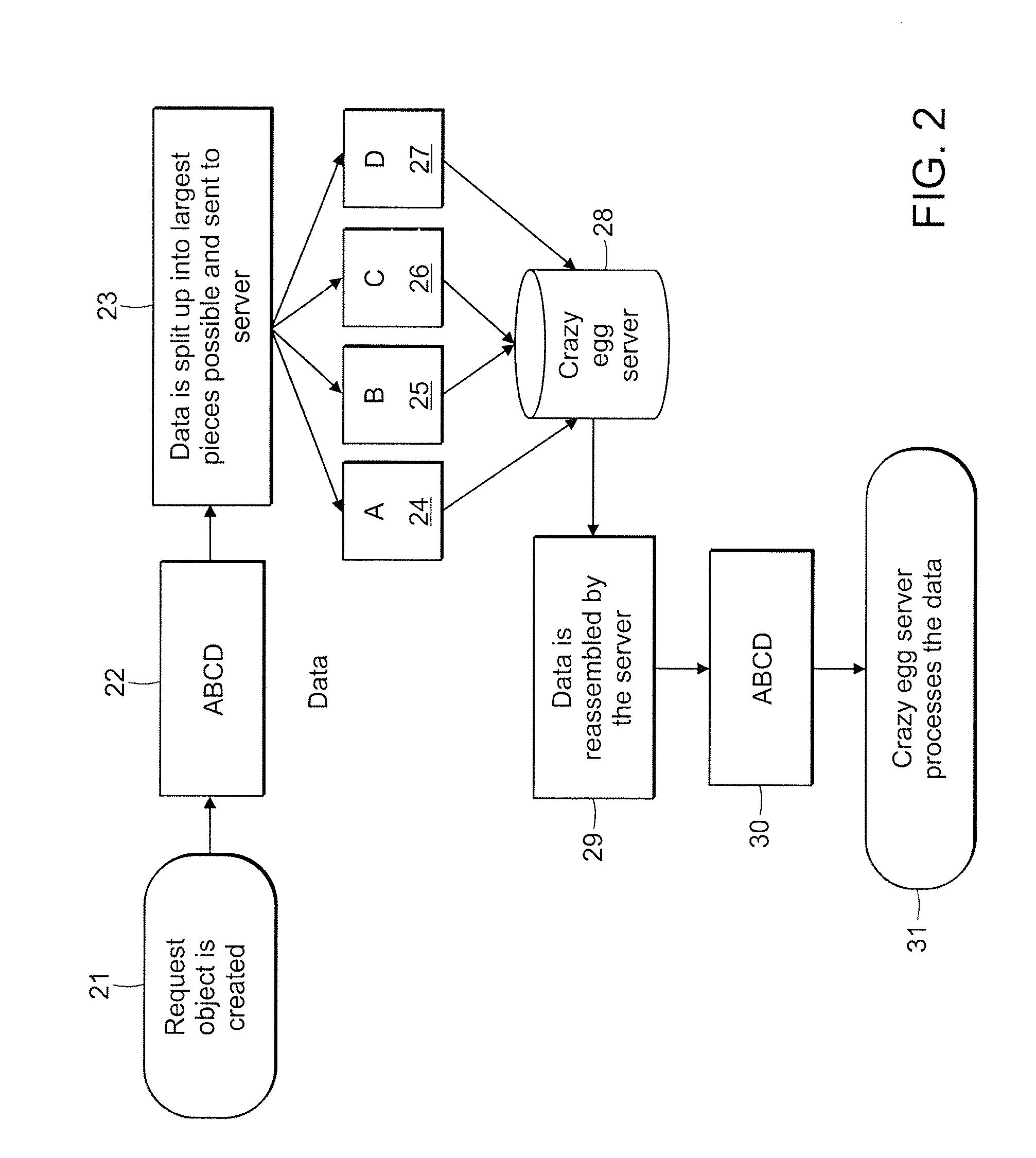Patents
Literature
9416 results about "Web server" patented technology
Efficacy Topic
Property
Owner
Technical Advancement
Application Domain
Technology Topic
Technology Field Word
Patent Country/Region
Patent Type
Patent Status
Application Year
Inventor
A web server is server software, or hardware dedicated to running said software, that can satisfy World Wide Web client requests. A web server can, in general, contain one or more websites. A web server processes incoming network requests over HTTP and several other related protocols.
System and method for generating, capturing, and managing customer lead information over a computer network
A customer lead management system that relates to a system and method for collecting and organizing customer-marketing data, which is then made available to business representatives to assess. Specifically, using a computer network, and data on a potential customer's Budget, Authority, Needs, Timeframe, and other related customer data is collected. While this data is being collected, the customer lead management system stores the customer lead data in real-time instantly, automatically ranking the viability of the customer lead on the interest level of the customer lead and other variable criteria used in the web-based algorithm calculation, and automatically electronically notifies the appropriate company and / or company representative about the customer lead. The resulting customer lead profile record is located in a web server database, and can be accessed and undated in real-time by a portable computer or electronic device that has been web-enabled. The customer lead data is then capable of being accessed via a computer network by various companies that have goods / services that satisfy the needs and requirements of the customer lead. A company representative can be automatically notified when a customer lead profile has been updated.
Owner:CXT SYST INC
Internet profiling
InactiveUS6839680B1Quick applicationEasy to shareMarket predictionsSpecial data processing applicationsWeb serviceStandardization
A system, method, and various software products provide for consistent identification of web users across multiple web sites, servers and domains, monitoring and capture of data describing the users' web activities, categorization of the web activity data, aggregation of the data into time dependent models describing interest of users and groups over time. Categorization is made with respect to a category tree which may be standardized or customized for each web site. User groups may be defined based on membership rules for category interest information and demographics. Individual user profiles are then created for users automatically based on satisfaction of the user group membership rules. As new data is collected on a user over time, the category interest information extracted from the user's web activity is updated to form a current model of the user's interests relative to the various categories. This information is also used to automatically update group membership and user profile information. Identification of users across multiple sites is provided by a global service that recognizes each user and provides a globally unique identifier to a requesting web server, which can use the identifier to accumulate activity data for the user. Client side user identification is provided to track user activity data on web servers that do not communicate with the global service and do not process activity for category information. User profiles may be shared among web sites that form alliances. User activity data may be aggregated along various dimensions including users / user groups, categorization, and time to provide robust models of interest at any desired time scale.
Owner:FUJITSU LTD
Dynamically matching users for group communications based on a threshold degree of matching of sender and recipient predetermined acceptance criteria
InactiveUS6480885B1Quality of communicationReduce in quantitySpecial service provision for substationMultiprogramming arrangementsPersonalizationWeb service
A method for enabling users to exchange group electronic mail by establishing individual profiles and criteria, for determining personalized subsets within a group. Users establish subscriptions to an electronic mailing list by specifying user profile data and acceptance criteria data to screen other users. When a user subscribes, a web server establishes and stores an individualized recipient list including each matching subscriber and their degree of one-way or mutual match with the user. When the user then sends a message to the mailing list, an email server retrieves 100% her matches and then optionally filters her recipient list down to a message distribution list using each recipient's message criteria. The message is then distributed to matching users. Additionally, email archives and information contributions from users are stored in a database. A web server creates an individualized set of web pages for a user from the database, containing contributions only from users in his recipient list. In other embodiments, users apply one-way or mutual criteria matching and message profile criteria to other group forums, such as web-based discussion boards, chat, online clubs, USENET newsgroups, voicemail, instant messaging, web browsing side channel communities, and online gaming rendezvous.
Owner:TUMBLEWEED HLDG LLC
Content-management system for user behavior targeting
ActiveUS20060020596A1Digital data information retrievalDigital data processing detailsWeb serviceUser profile
A system including a plurality of web servers configured to serve base content and relevant content to a user system; a set of additional-content servers configured to serve the relevant content to the web servers if units in the user profile match units associated with the relevant content; a parsing server configured to extract the units in the user profile from the base content requested by the user and generate a ranked list of the units in the user profile; and a unit-matching module configured to determine whether the units in the user profile match units associated with the relevant content if the user requests the base content, wherein the web servers are configured to serve the base content and the relevant content if the units in the user profile match units associated with the relevant content.
Owner:R2 SOLUTIONS
Integrated systems for providing communications network management services and interactive generating invoice documents
InactiveUS7225249B1Easy and convenient accessTelephonic communicationCathode-ray tube indicatorsWeb serviceInvoice
A integrated customer interface for providing telecommunications management to a customer at a browser involves a web server and a client application. The web server manages a client session supports communication of request messages received from the browser to a network management resource. The client application is integrated for use within the browser, downloadable from the web server in accordance with a predetermined customer entitlement, and programmed to be in interactive communications with the network management resource.
Owner:VERIZON PATENT & LICENSING INC
Secure interactive electronic account statement delivery system
InactiveUS6285991B1Good flexibilityBilling is thereby complicatedFinanceUser identity/authority verificationDigital dataNetwork communication
The present invention consists of a secure interactive electronic account statement delivery system suitable for use over open networks such as the Internet. The invention utilizes a certification hierarchy to insure that electronic bills, invoices, and other account statements can be securely sent over open networks. The participants in the system are a certification authority, certificated banks, billers, and customers. The certification authority grants digital certificates to the certificated banks, which in turn grant digital certificates to billers and customers. Digital certificates form the basis for encryption and authentication of network communications, using public and private keys. The certificates associate a customer and biller with a certificated bank and with the electronic billing system, much like payment cards associate a customer with a payment card issuer and a particular payment card system. Digital signatures are used for authentication and non-repudiation. The certificates may be stored as digital data on storage media of a customer's or biller's computer system, or may be contained in integrated circuit or chip cards physically issued to billers and customers. The electronic bill itself may be a simple text message containing the equivalent of summary information for the bill, or may be more elaborate. In one embodiment of the invention, the electronic bill contains a number of embedded links, for example an embedded URL of a biller's world wide web server that allows the customer to interactively bring up detailed billing information by activating the link. The e-mail message may also include links to third party websites.
Owner:VISA INT SERVICE ASSOC
Method and apparatus for web-site-independent personalization from multiple sites having user-determined extraction functionality
InactiveUS6976210B1Digital data information retrievalMultiple digital computer combinationsWeb sitePersonalization
Owner:PIECE FUTURE PTE LTD
Delivering and processing multimedia bookmark
InactiveUS20050210145A1Easy to moveEasy detectionPulse modulation television signal transmissionDigital data information retrievalWeb browserMedia server
A multimedia bookmark (VMark) bulletin board service (BBS) system comprises: a web host comprising storage for messages, a web server, and a VMark BBS server; a media host comprising storage for audiovisual (AV) files, and a streaming server; a client comprising storage for VMark, a web browser, a media player and a VMark client; and a VMark server located at the media host or at the client; a communication network connecting the web host, the media host and the client. A method of performing a multimedia bookmark bulletin board service (BBS) comprises: creating a message including a multimedia bookmark for an AV file; and posting the message into the multimedia bookmark BBS. A method of sending multimedia bookmark (VMark) between clients comprises: at a first client, making a VMark indicative of a bookmarked position in an AV program; sending the VMark from the first client to a second client; and playing the program at the second client from the bookmarked position. A system for sharing multimedia content comprises: a multimedia bookmark bulletin board system (BBS); and means for posting a multimedia bookmark to the BBS.
Owner:VIVCOM INC
Access system interface
InactiveUS20030074580A1Easy mappingEasy to useDigital data processing detailsUser identity/authority verificationWeb serviceApplication software
An access system provides identity management and / or access management services for a network An application program interface for the access system enables an application without a web agent front end to read and use contents of an existing encrypted cookie to bypass authentication and proceed to authorization. A web agent is a component (usually software, but can be hardware or a combination of hardware and software) that plugs into (or otherwise integrates with) a web server (or equivalent) in order to participate in providing access services.
Owner:ORACLE INT CORP
Smart Device User Authentication
InactiveUS20110219427A1Little and no burdenImprove securityDigital data processing detailsComputer security arrangementsUser deviceWeb service
Techniques for simplifying an authentication process from the viewpoint of a user while providing improved security to the many users currently employing no or weak security techniques. In logging into a web site hosted by a web server, a session begins by a user connecting and logging in with a device, such as a personal computer. Rather than a user name and password approach which is presently typical, the personal computer communicates with another user device, such as a smart phone. In one approach, an encoded acoustic signal is employed for this communication. The smart phone securely communicates with an authentication server which informs the web server whether the user has been authenticated or not.
Owner:RSSBUS
Scaleable web server and method of efficiently managing multiple servers
InactiveUS6330602B1Improve performanceEfficient managementData switching by path configurationMultiple digital computer combinationsInformation resourceWeb service
A client-server architecture includes a plurality of clients and a plurality of servers. Information resources are replicated among the servers. According to one aspect, the invention includes an intermediary device called a "depot" sitting transparently between a client and a pool of servers which have the replicated information resources. The depot dynamically distributes multiple sessions contained in a client request among the servers. This architecture realizes a good granular scaleability of servers, and improved server throughput with a good response time. Multiple depots also realize robustness.
Owner:AVAYA INC
Scalable system for monitoring network system and components and methodology therefore
InactiveUS20020078382A1Memory loss protectionDigital computer detailsScalable systemSecurity software
The present invention is a security software methodology and system that takes an internal approach to mitigating security risks from authorized and unauthorized users. The security software system uses the methodology of monitoring, in great detail, any configuration changes made to information systems within a network. These systems and applications include web servers, firewalls, proxy servers, log servers, intrusion detection software systems, routers and any other device or application which can be considered a part of the enterprise information system infrastructure.
Owner:SECURITY & INTRUSION DETECTION RES LABS
Message publishing system and method
InactiveUS7032030B1Easy to publishEasy and secure and economicalData processing applicationsUser identity/authority verificationWeb browserWeb service
A Message Publishing System (MPS) and method is disclosed. The MPS publishes a message, preferably on the Internet, that can be simultaneously reviewed by a mass audience. A user of the MPS sends the message to be published to the MPS. The MPS verifies that the sender of the message is an authorized user of the MPS before publishing the message. The MPS converts the received message into one or more formats, preferably webpage(s) for display on the Internet. The message is stored in a network storage area, preferably on an Internet web server. When the MPS receives a request for the message, it retrieves the requested message from the storage area and sends it to the requestor for review, preferably using a web browser.
Owner:EASYWEB INNOVATIONS
Mobile robot with wireless location sensing apparatus
InactiveUS20070061041A1Simple methodBroaden their knowledgeProgramme controlVehicle position/course/altitude controlWeb browserInternet network
A robotic navigation system for computerized mobile robot. Typically the robot, which may be in an unknown location, will have an onboard internet web server, a capability of establishing a first connection to a remote web browser on the internet for robotic control purposes, and a capability of establishing a second short range bi-directional digital radio connection to one or more nearby computerized digital radio equipped devices external to the robot. Typically at least some of these nearby digital radio equipped devices will have a known location. The robot can exchange short-range bidirectional digital radio signals with nearby devices that have a known location, and obtain location data to determine it's position. This location information can be used to assist in robotic navigation. The robot can also navigate to other objects, which also may have an unknown location, using a similar technique in which the object with an unknown location exchanges short range bidirectional digital radio signals with either the robot itself, or other digital radio linked devices with a known location (which then relay the object's location to the robot).
Owner:ZWEIG STEPHEN ELIOT
Automatic selection of content-delivery provider using link mapping database
InactiveUS20050021862A1Reduce the possibility of errorPossibility of errorMultiple digital computer combinationsSpecial data processing applicationsNetwork conditionsClient-side
A link-modifying web server automatically modifies links in each web page as it is served to a client browser. The web page is parsed for links, and the links are looked up in a link mapping database. A replacement field is read from the database. A link modifier alters the link using the replacement field to point to a different server at one of several content delivery providers. One of several replacement links can be selected from the link mapping database depending on network conditions and user account data. A replacement link to one content delivery provider can be chosen rather than another replacement link to a different content delivery provider when one provider's network is responding more quickly or has a lower cost. A provider monitor continuously checks provider performance at each of the content delivery providers. When one provider's network is slow or fails, the provider monitor instructs a delivery rule processor to choose link replacements at other content delivery providers. Thus the links in the web page served to the client are modified to point away from slow or failed providers.
Owner:DICKENS COAL
Systems and methods for providing a media playback in a networked environment
Described herein are systems and methods for providing media playback in a networked environment. In one embodiment, a networked media playback device is configured to provide a web server for delivering data indicative of a browser-renderable control interface for the networked media playback device, or for a related networked media playback system. In overview, the user of a networked device, such as a wireless web enabled device, is able to render the control interface in a web browser, and in this manner control playback of digital media via the networked media playback device or networked media playback system.
Owner:D & M HOLDINGS INC
Web server apparatus and method for virus checking
InactiveUS6785732B1Eliminate needPrevent proliferationMemory loss protectionDigital data processing detailsWeb serviceUniform resource locator
A web server computer system includes a virus checker and mechanisms for checking e-mails and their attachments, downloaded files, and web sites for possible viruses. When an e-mail message contains a detected virus, the message is discarded, and both the sender and recipient are informed via e-mail that the message contained a virus. When an e-mail attachment contains a detected virus, the attachment is deleted, and the e-mail message without the attachment is sent to the web client, along with a message explaining that the e-mail message had an attachment that was automatically deleted because it had a virus. When a downloaded file contains a virus, the downloaded file is deleted, and an error message is sent to the web client to inform the web client that the requested file had a virus. When a requested web site (i.e., Uniform Resource Locator (or URL)) has been labeled as a source for a known virus, a message is sent to the web client stating that a virus may have been downloaded from that URL. In addition, if the requested URL has not been labeled as a source for a known virus, but it contains links that have been so labeled, the web page is processed before being sent to the user to identify those potentially dangerous links. In this manner a web server can perform virus checking of different types of information real-time as the information is requested by a web client. In addition, a web client may also request that the server perform virus checking on a particular drive on the web client. If this case, the web server may receive information from the web client drive, scan the information for viruses, and inform the web client whether any viruses were found. In the alternative, the web server may download a client virus checker to the web client and cause the client virus checker to be run on the web client. The preferred embodiments thus allow a virus checker on a web server to dynamically scan incoming data, and to scan web clients coupled to the web server, thereby eliminating the need for virus checking software to be installed on each web client.
Owner:FINJAN BLUE INC
Method and system for web page personalization
InactiveUS20020138331A1Digital data information retrievalNatural language data processingPersonalizationWeb service
The invention includes a method and system for personalizing displays of published Web pages provided by Web content providers to meet the interests of Web users accessing the pages, based on profiles of the users. The system preferably provides to the requesting user, through a proxy server, an edited version of the HTML file for the original published Web page that is served by a host Web server. The system uses user profiles that may include demographic and psychographic data to edit the requested Web page. The content of a Web page as published by a host Web server may be coded to correlate components of the Web page with demographic and psychographic data. The user profiles may then be used to filter the content of a coded Web page for delivery to a requesting user. The system may rearrange content on a published Web page so that content determined to be of higher interest to a user is more prominently featured or more easily or quickly accessible. The system may also delete content on a published Web page that is determined to be of low interest to a user. In embodiments of the invention, a single proxy server or proxy server system personalizes Web pages from multiple Web servers, using a single user profile for a user.
Owner:SEDNA PATENT SERVICES
Content delivery and global traffic management network system
InactiveUS20020052942A1Meet cutting requirementsReduce trafficMetering/charging/biilling arrangementsError preventionWeb serviceCache server
Owner:AKAMAI TECH INC
Broadband home applications gateway/residential gateway systems, methods and computer program products
A home applications gateway includes a residential gateway interface that is configured to connect to a residential gateway, and a Java Virtual Machine (JVM) that includes an Open Services Gateway initiative (OSGi) framework configured to execute OSGi Java applications that are downloaded and life cycle managed from a Web server through the residential gateway interface. The OSGi Java applications can include a video monitoring application that is configured to provide in-home and out-of-home access to Internet Protocol (IP)-based home video cameras and video files captured by the IP-based home video cameras, at a Web page. The OSGi Java applications can further include a lighting control application that is configured to control activation and deactivation of home lighting from the Web page. The OSGi Java applications can also include a home monitoring and control application that is configured to monitor home sensors and take action upon their activation.
Owner:BELLSOUTH INTPROP COR
Dialog component re-use in recognition systems
InactiveUS7552055B2Rapid designBetter equipped to handleAutomatic exchangesSpeech recognitionWeb serviceFacial recognition system
Owner:MICROSOFT TECH LICENSING LLC
Dialog component re-use in recognition systems
InactiveUS20050203747A1Rapid designBetter equipped to handleAutomatic exchangesSpeech recognitionWeb serviceFacial recognition system
Controls are provided for a web server to generate client side markups that include recognition and / or audible prompting. The controls comprise elements of a dialog such as a question, answer, confirmation, command or statement. A module forms a dialog by making use of the information carried in the controls. The dialog follows a selected order of prompting and receiving input from a user as related to the order of the controls, and departs from the selected order as a function of responses from the user. The speech controls are adapted such that elements of the speech controls can be combined or re-used.
Owner:MICROSOFT TECH LICENSING LLC
Messaging service for video game systems with buddy list that displays game being played
Owner:NINTENDO CO LTD
System, method and computer program product for automatic response to computer system misuse using active response modules
InactiveUS6275942B1Rapid responseMemory loss protectionDigital data processing detailsSoftware engineeringSecurity level
A system, method and computer program product for automatic response to computer system misuse using active response modules (ARMs). ARMs are tools that allow static intrusion detection system applications the ability to dynamically increase security levels by allowing real-time responses to detected instances of computer misuse. Several classes of ARMs exist which allow them to interface with several types of network elements found within a computing environment (e.g., firewalls, web servers, Kerberos severs, certificate authorities, etc.). The ARMs, once defined, are deployed in a "plug and play" manner into an existing intrusion detection system within a computing environment. A user (e.g., system administrator) may then configure the ARMs by linking them to specific computer misuses. Upon receipt of an instance of the computer misuse from the intrusion detection system, each ARM linked to the misuse collects pertinent data from the intrusion detection system and invokes a response specified by the ARM class and the collected pertinent data.
Owner:MCAFEE LLC +1
Methods and apparatus for downloading data between an information processing device and an external device via a wireless communications technique
InactiveUS6088730AData smoothingImposing burdenDigital data processing detailsNetwork topologiesComputer hardwareInformation processing
To provide an improved information processing apparatus and a method for controlling the same, which enables to smoothly transfer data, such as processed results obtained from execution of an application program, an HTML file acquired from a Web server in accordance with the TCP / IP protocol or the like, to an external device (PDA) by using an infrared communication function. The disclosed information processing apparatus periodically accesses a predetermined server machine (e.g., a Web server) to acquire a desired file (e.g., an HTML file). This file acquisition operation is carried out without the involvement of operations of an infrared transceiver. In other words, the information processing apparatus attempts to continually perform caching of the most recent download data. As a result, when the PDA as an external device is set into an infrared communication mode and a user simply holds the PDA to a station discoverable region of the information processing apparatus, a connection between them is established, thereby enabling the PDA to receive the most recent data.
Owner:IBM CORP
Integrated customer web station for web based call management
A Web-based call routing management workstation application which allows authorized customers to control toll free routing and monitor call center status. An architecture including one or more web servers located in a firewalled demilitarized zone (DMZ) as communications medium between the customer workstations at the customer sites and the enterprise back-end applications providing the call routing management services, provides a secure infrastructure for accessing the enterprise applications via the otherwise insecure public Internet. The present invention enables creation and management of call by call routing rules by a customer with a workstation having an Internet access and a supported Web browser. The customized rules may be tested and / or debugged via the Web-enabled workstation, using a debugger / tester which runs the routing rules under a simulated environment. In addition, customers may provision hierarchies for their business; create, modify or delete agent pools; manipulate capacity tables; and define quota schemes, value lists and schedule tables, all at the customer site via the Web-enabled workstation. The present invention also enables the customers to view near real-time displays of call center ACD statistics and peg counts based on routing rules, as well as, run provisioning and statistical reports on provisioning and statistical data and also to extract the data for further analysis. Additionally, the present invention supports foreign language and branding features on a graphical user interface. An infrastructure is provided which enables secure initiation, acquisition, and presentation of the call manager functionalities to customers from any computer workstation having a web browser and located anywhere in the world.
Owner:VERIZON PATENT & LICENSING INC
Method and apparatus for broadcasting live personal performances over the internet
InactiveUS20050138560A1Reliable and safe and purchasingEasily interfaceTelevision system detailsRecording carrier detailsPaymentWeb browser
A method and apparatus for broadcasting live personal performances over the Internet employs a web server to manage scheduling and broadcasting of the performances over the Internet, as well as collections and payments for products and services sold by presenters to viewers in conjunction with their performances. The server receives audio / video data from presenter operated computers through an uploaded presenter program, and relays the received audio / video data to viewer operated computers for viewing in media players invoked by their web browsers responding to an uploaded HTML document or JAVA applet. Viewers select performances to view from a program schedule provided on a webpage hosted by the web server. Both viewers and presenters are registered with the web server to facilitate payments for products and services, and their financial information stored in a secure user database.
Owner:ORIDUS
Method and apparatus for establishing a secure communication connection between a java application and secure server
InactiveUS6874084B1Improve portabilityIncrease flexibilityDigital computer detailsSecuring communicationSecure communicationWeb service
A method and apparatus for establishing a secure communication connection between a Java application or applet and a secure server is provided. An HTTPS handler is provided that may be used by Java applications or applets to establish secure communication connections with secure Web servers.
Owner:IBM CORP
Method and system for targeting internet advertisements and messages by geographic location
A method and system of targeting an Internet messaged to an Internet client based on geographic information of the Internet client is disclosed. The present invention first obtains IP addresses of Internet clients as they visit their web sites. The present invention then obtains addresses from the Internet clients and transforming the addresses to latitude / longitude coordinates for each of the Internet clients. A lookup table can thus be generated by correlating the IP addresses with the addresses and latitude / longitude coordinates. The information can be mined to resolve multiple entry conflicts to extract most likely position of a particular address. When an Internet client visits a web server, the IP address is collected from the Internet client to be targeted. The location of the Internet client can then be approximated by comparing the client's IP address with the lookup table. Upon approximation, a commercial message is transmitted to the Internet client, wherein the commercial message is related to the geographical location of the Internet client.
Owner:GEOMICRO
Visual web page analytics
InactiveUS20080046562A1Accurate trackingMeet needsDigital computer detailsWebsite content managementWeb browserInternet privacy
A method and system for tracking user utilization of a web page. The invention can use a tracking script, which can be a client-based Javascript code in some embodiments. The tracking script can be executed in a visitor's web browser when the customer's web page is loaded on the visitors' computer. The tracking script can be unique to each customer because it can be determined by the elements on the customer's web page and can be generated via a dynamic web server process. In at least some embodiments, when the customer's web page loads on the visitor's computer, the visitor's browser requests the tracking script from a server. The server can then transmit the tracking script to the visitor's browser and the tracking script can register itself and “passively” listens to various browser events.
Owner:CRAZY EGG
Features
- R&D
- Intellectual Property
- Life Sciences
- Materials
- Tech Scout
Why Patsnap Eureka
- Unparalleled Data Quality
- Higher Quality Content
- 60% Fewer Hallucinations
Social media
Patsnap Eureka Blog
Learn More Browse by: Latest US Patents, China's latest patents, Technical Efficacy Thesaurus, Application Domain, Technology Topic, Popular Technical Reports.
© 2025 PatSnap. All rights reserved.Legal|Privacy policy|Modern Slavery Act Transparency Statement|Sitemap|About US| Contact US: help@patsnap.com
